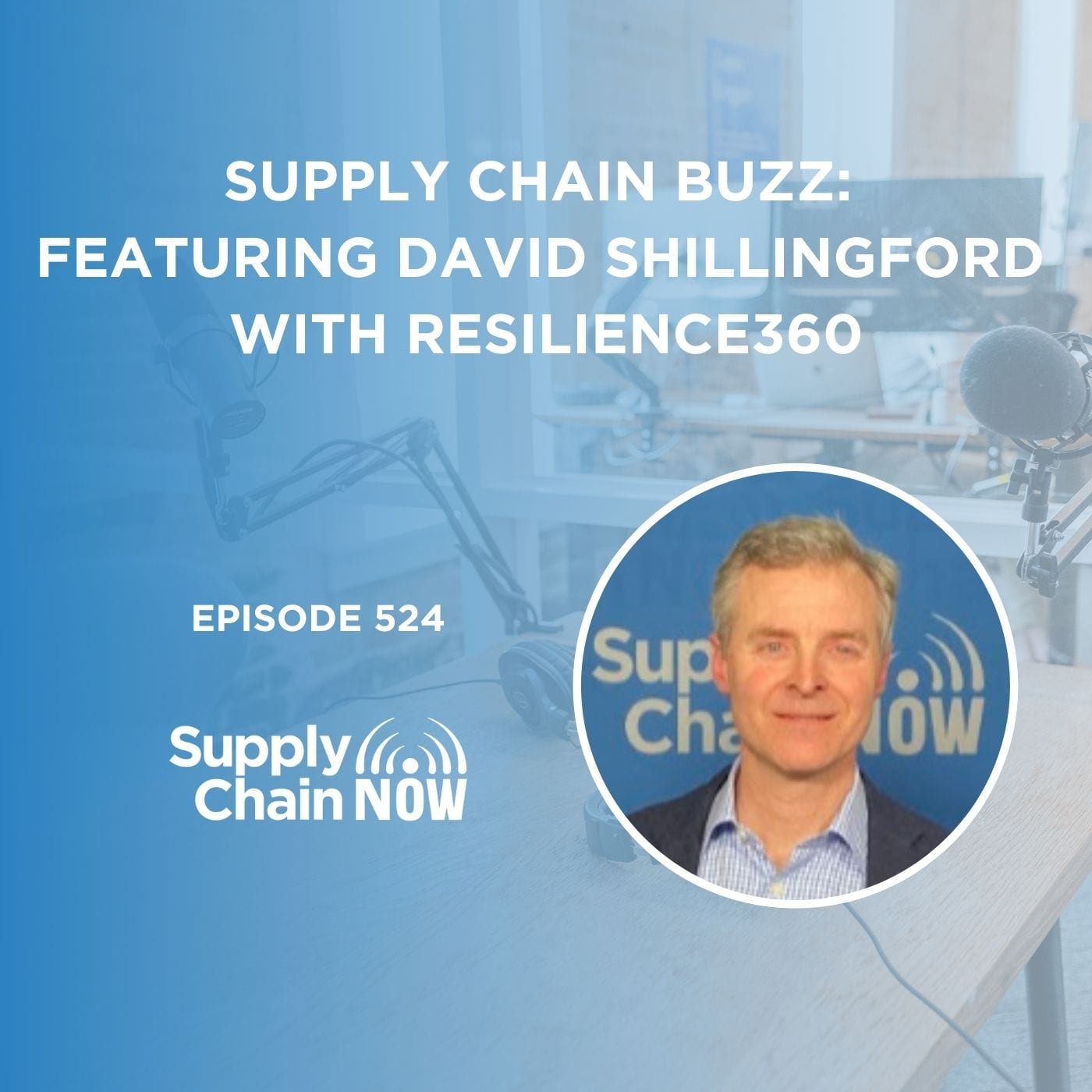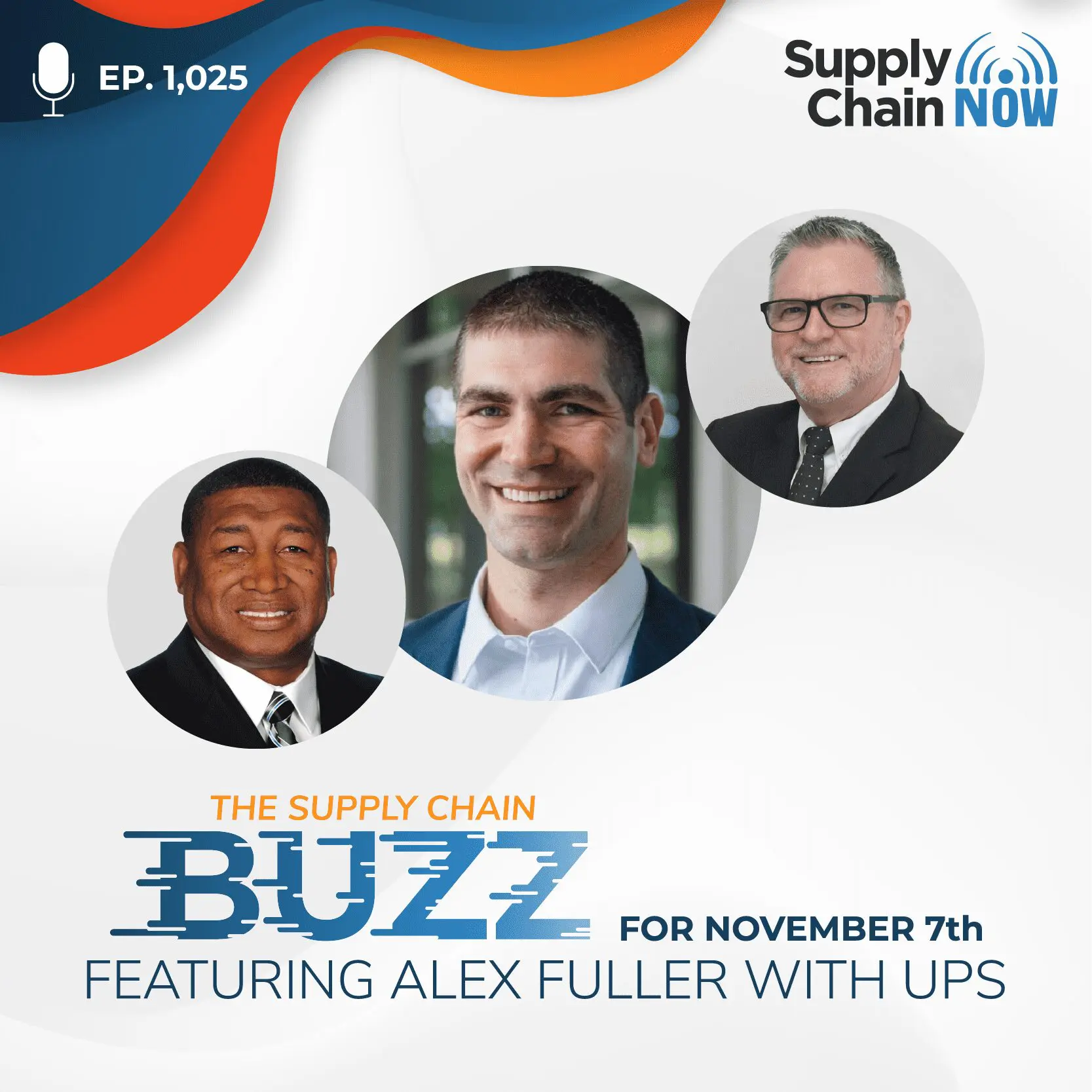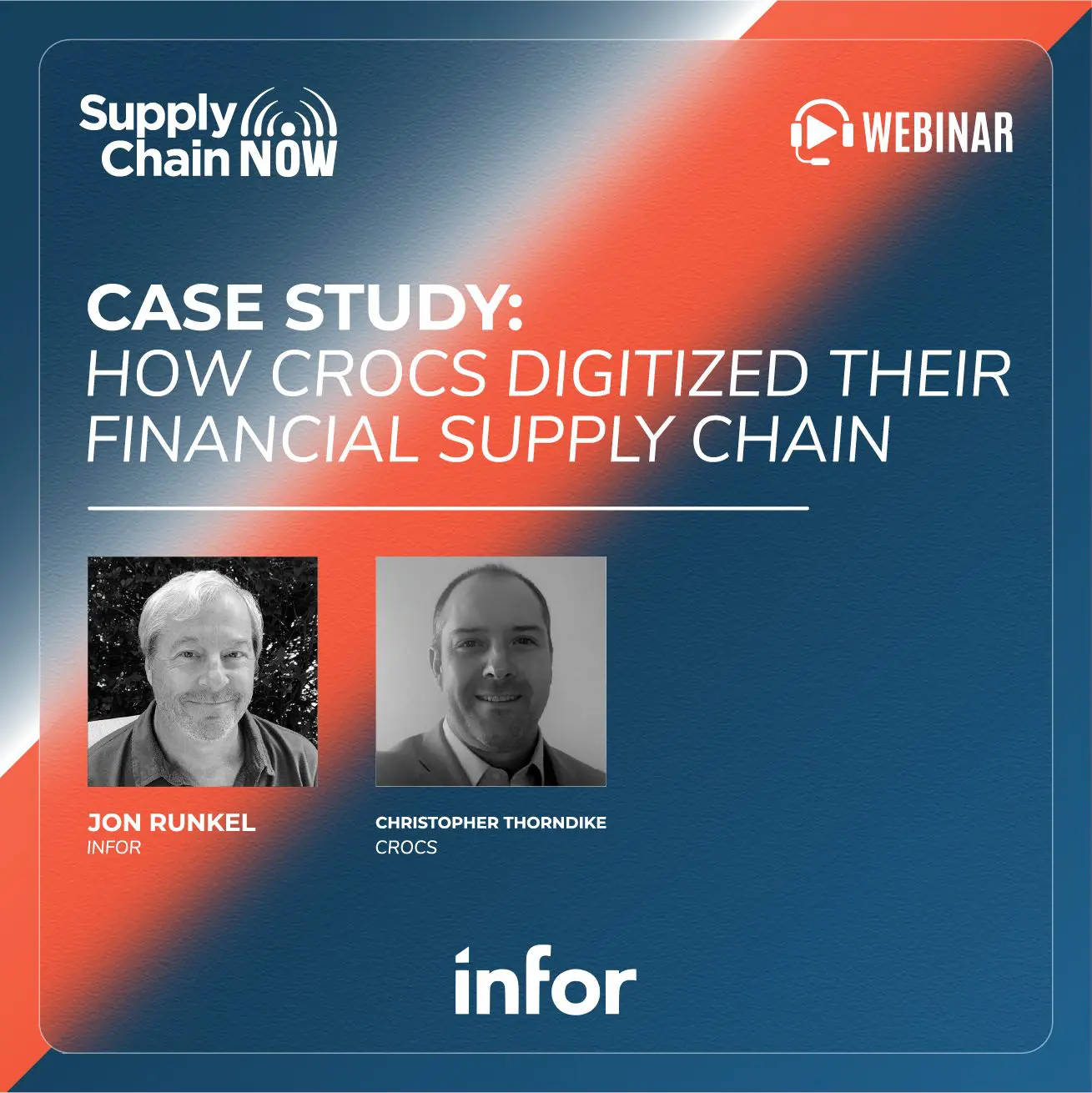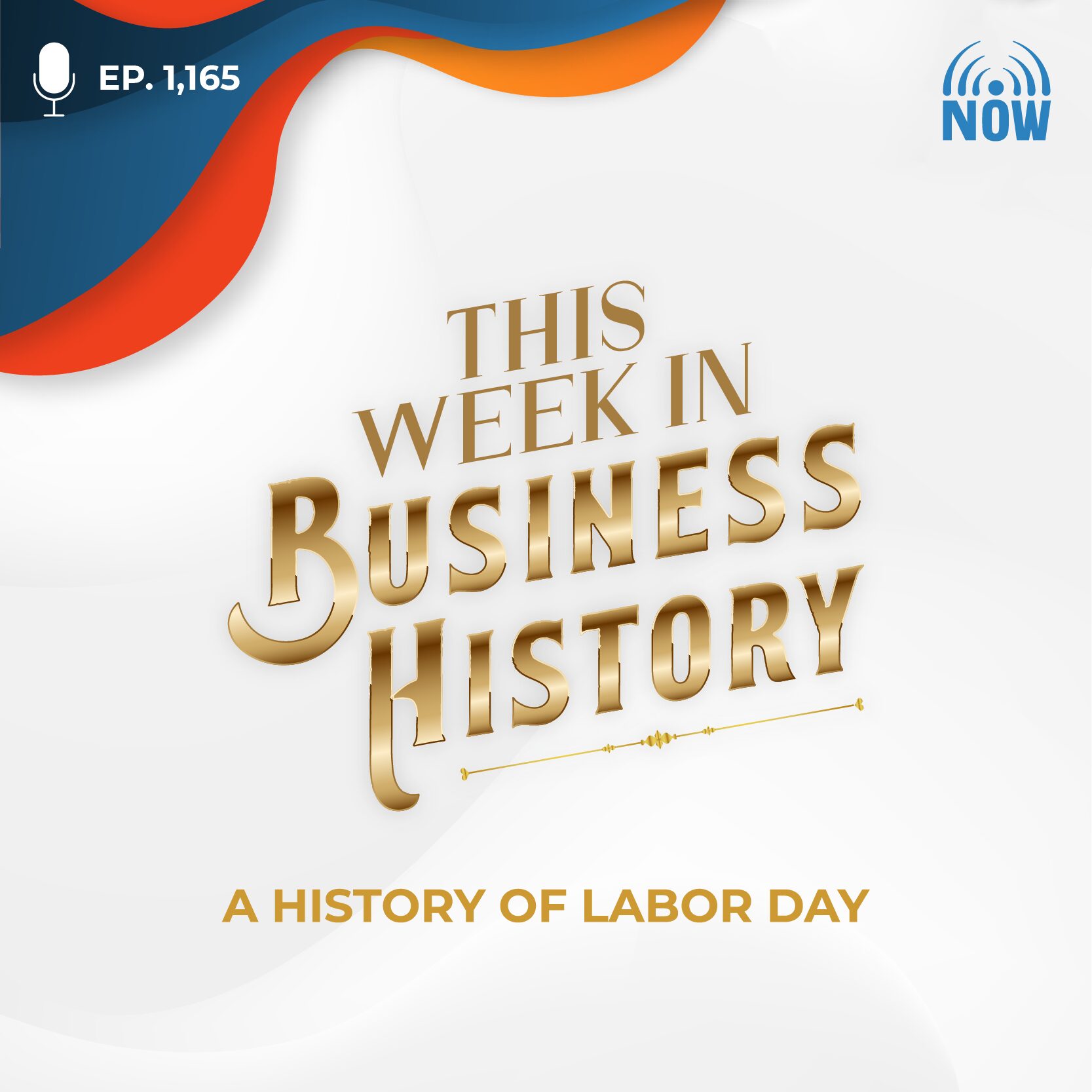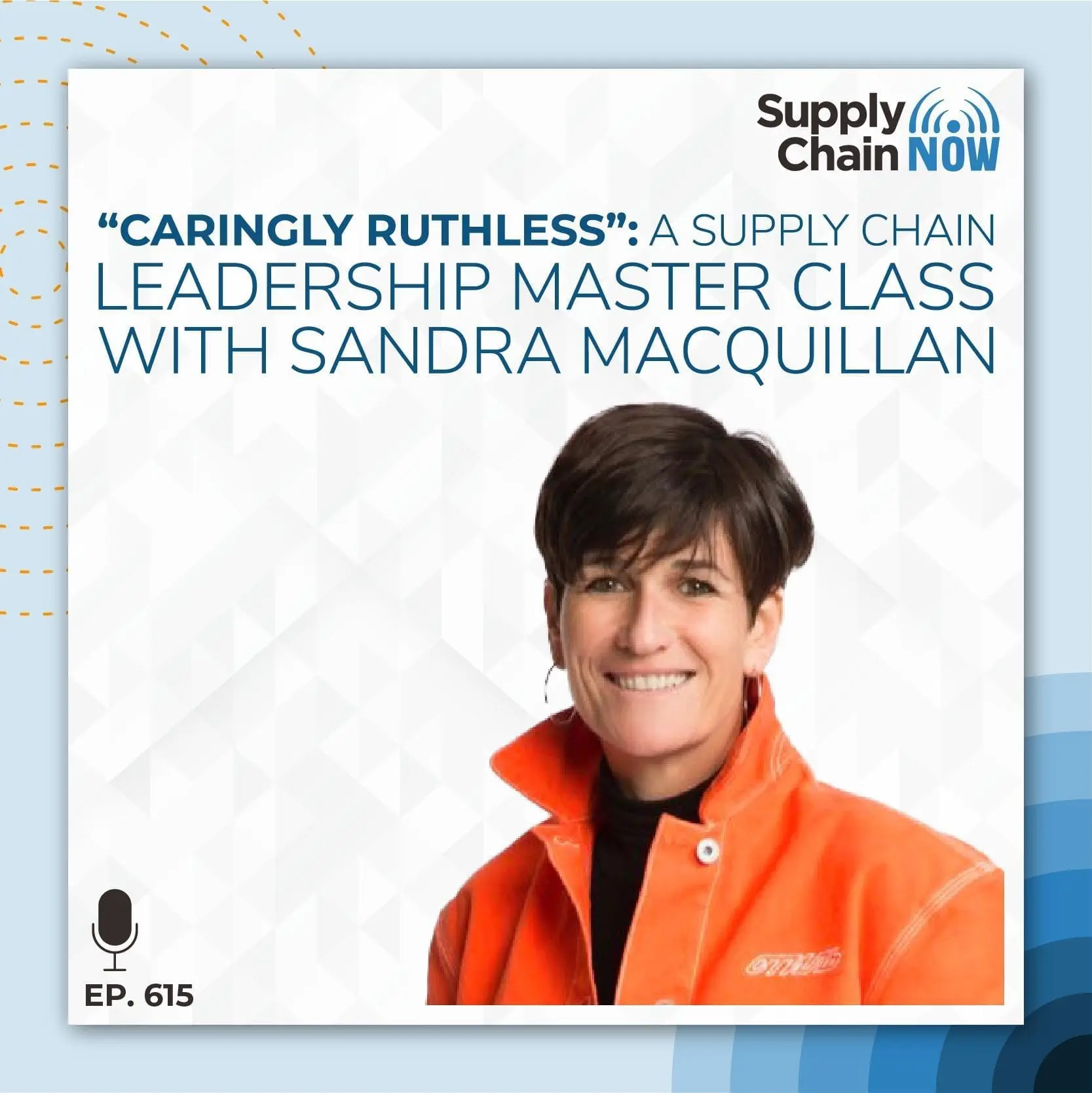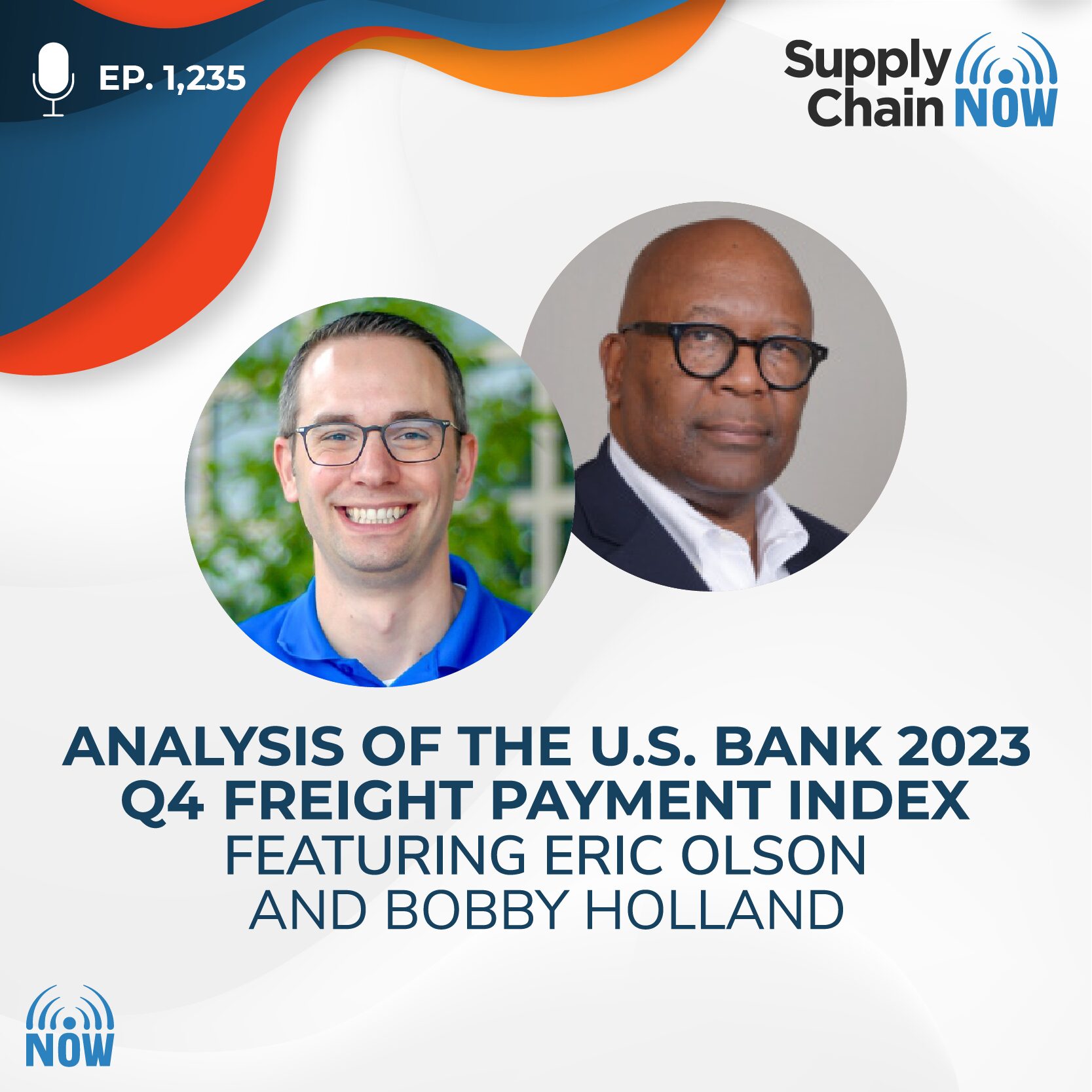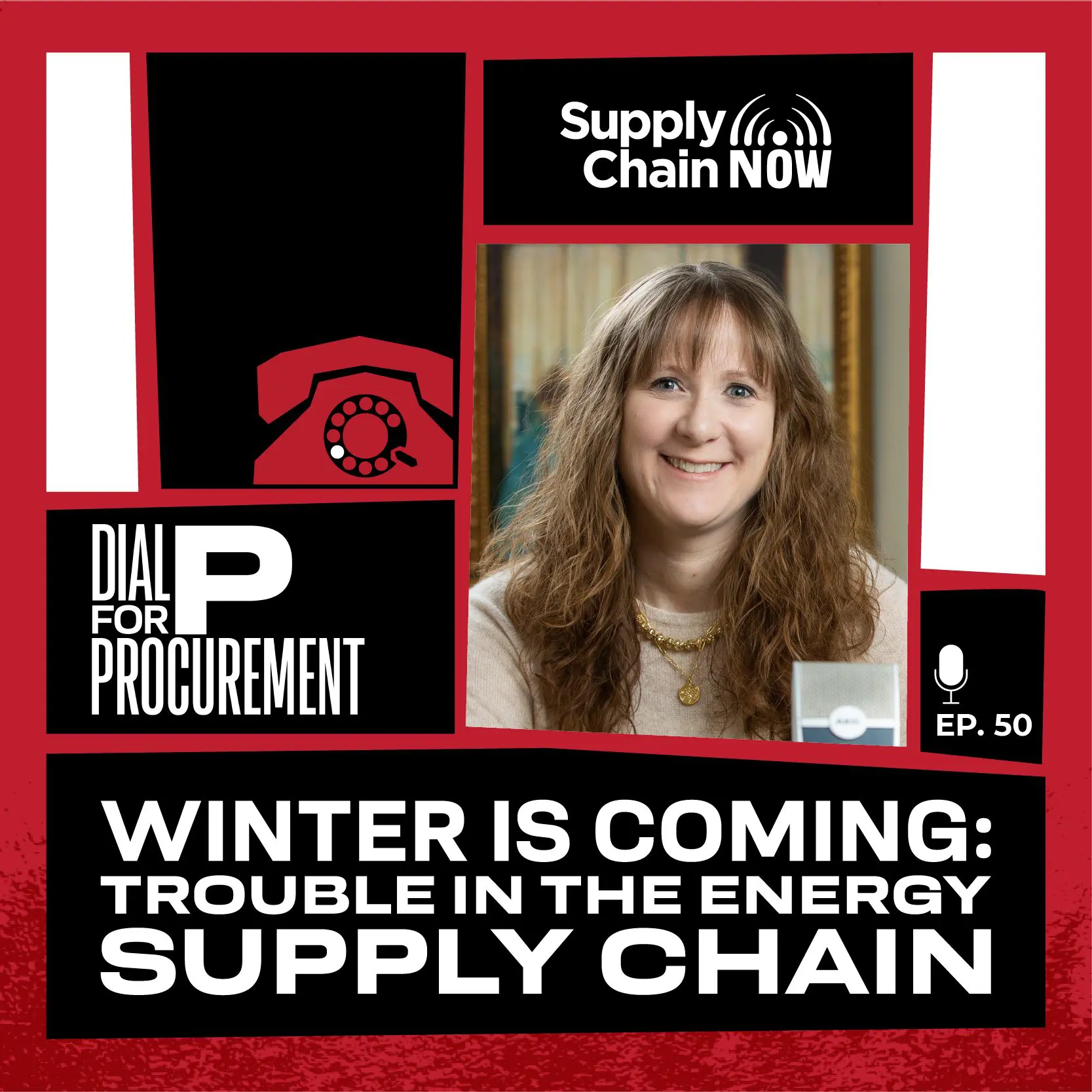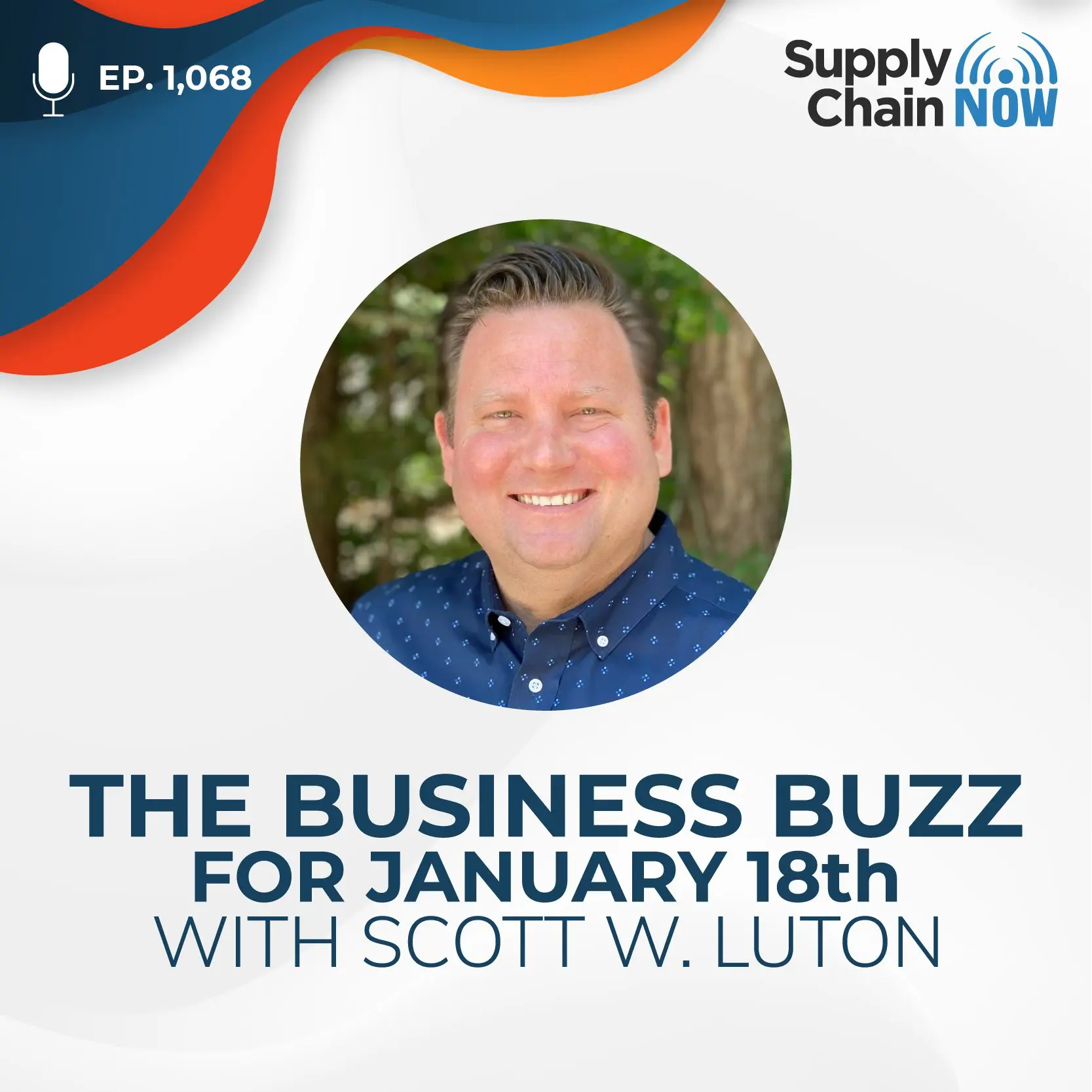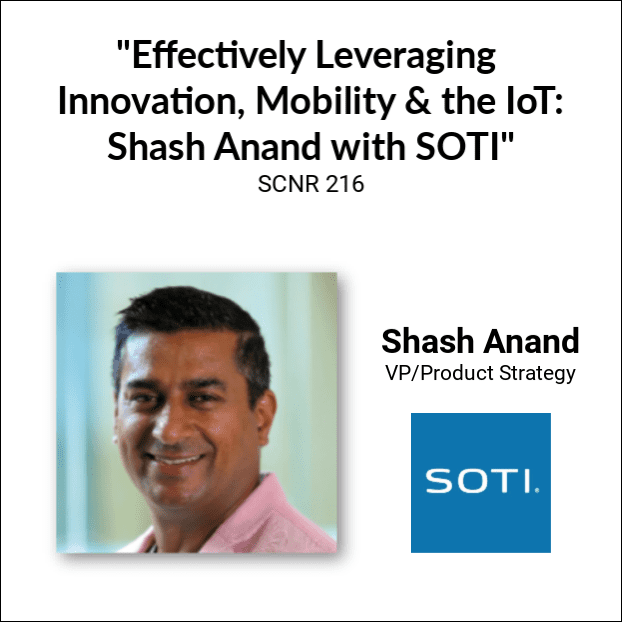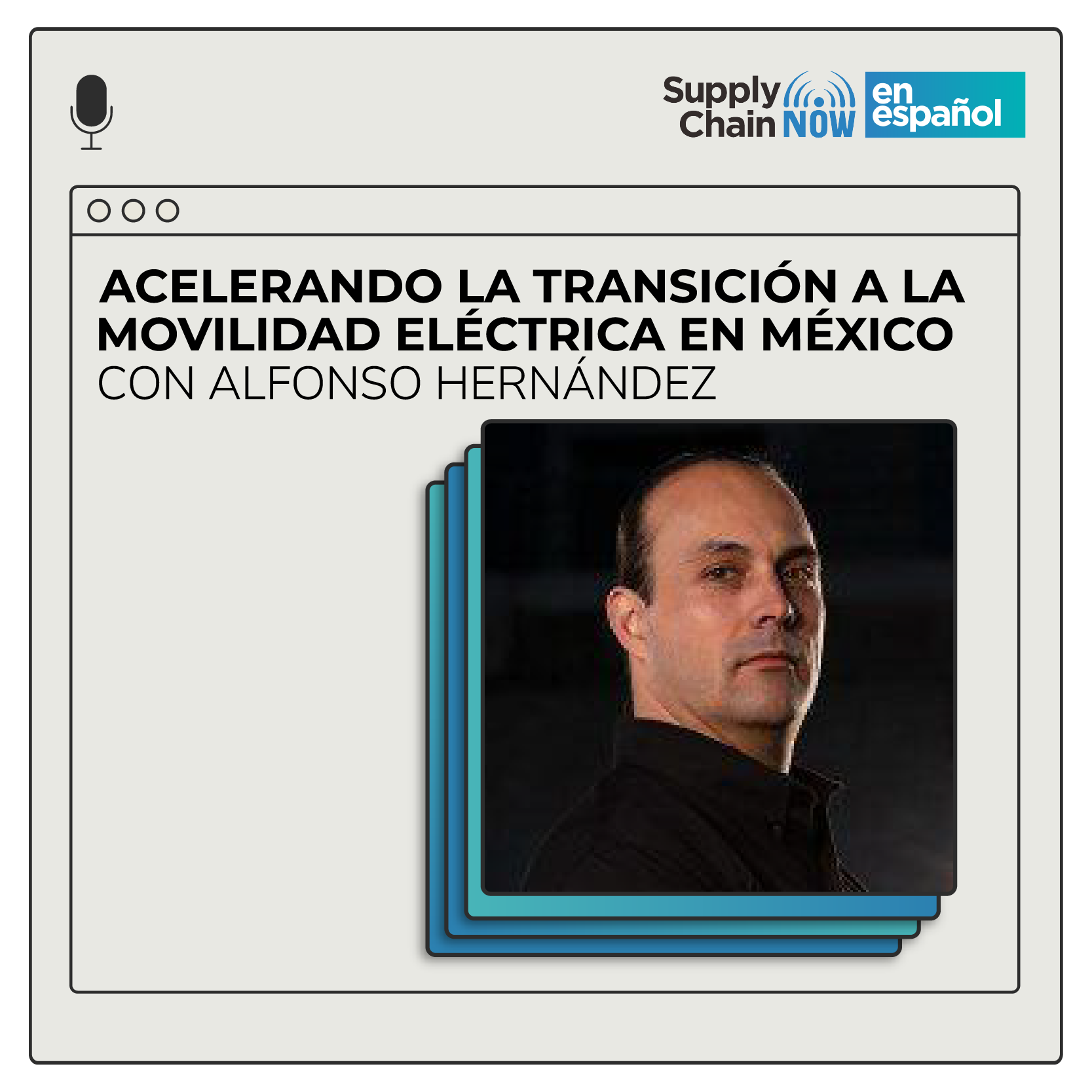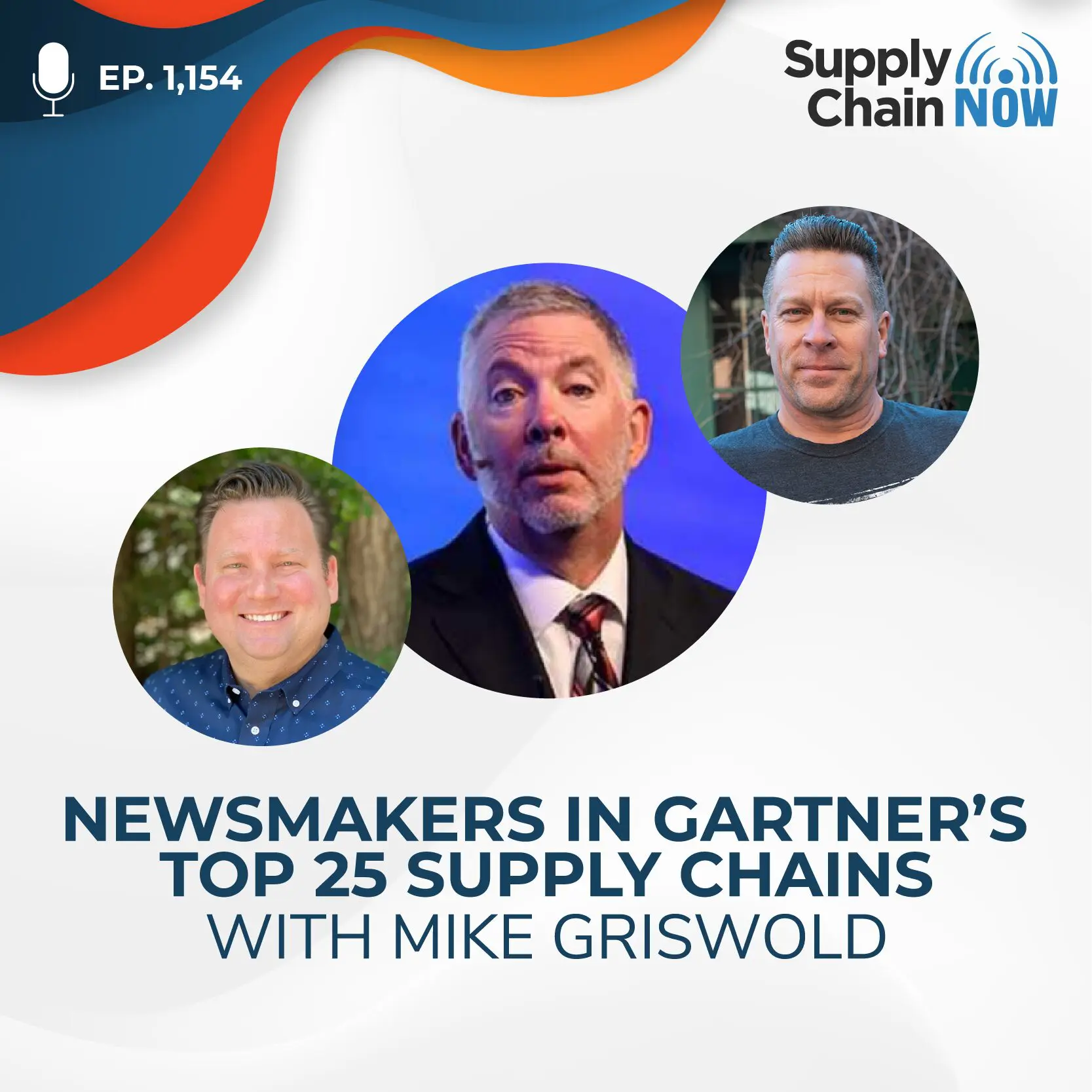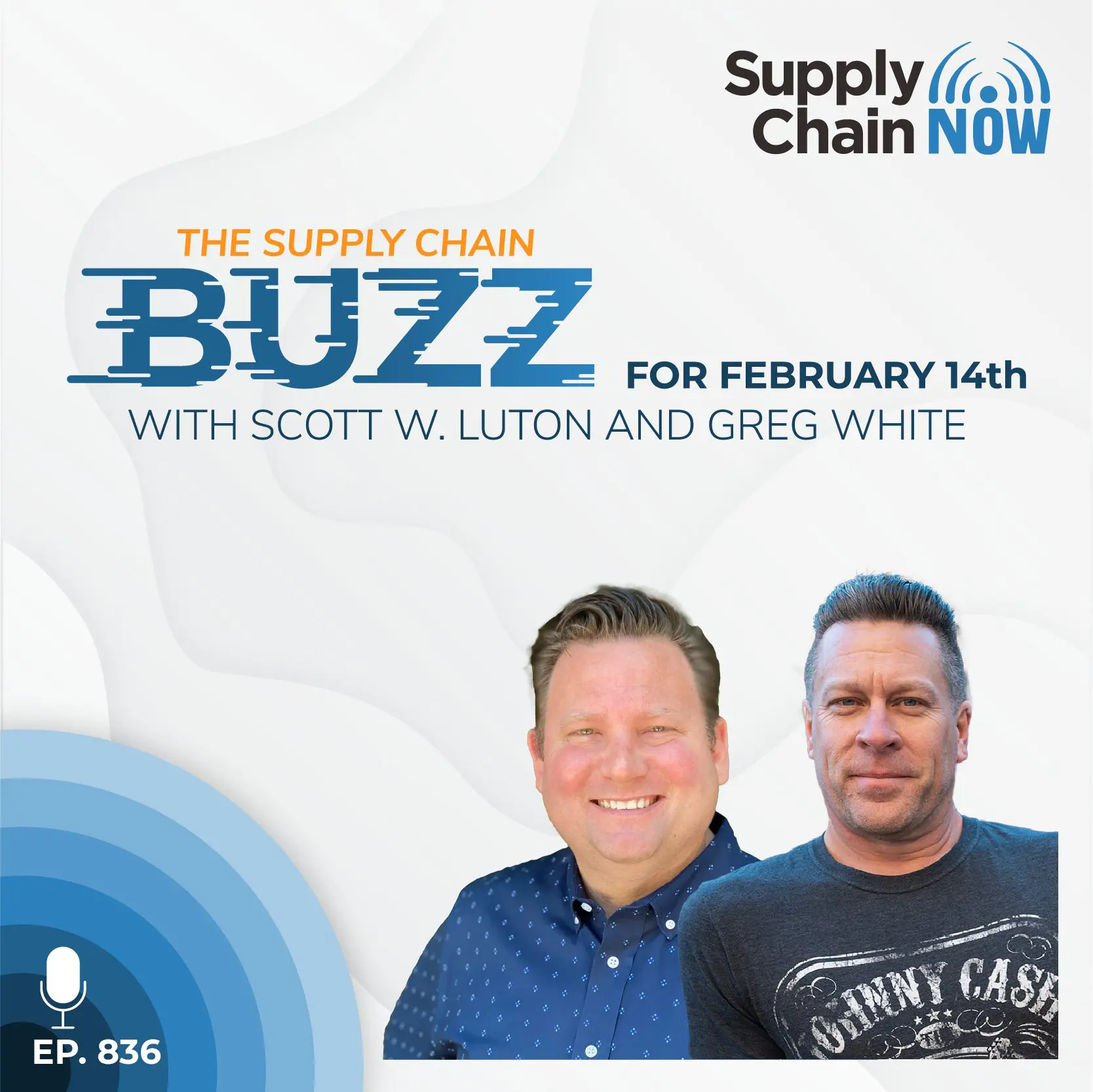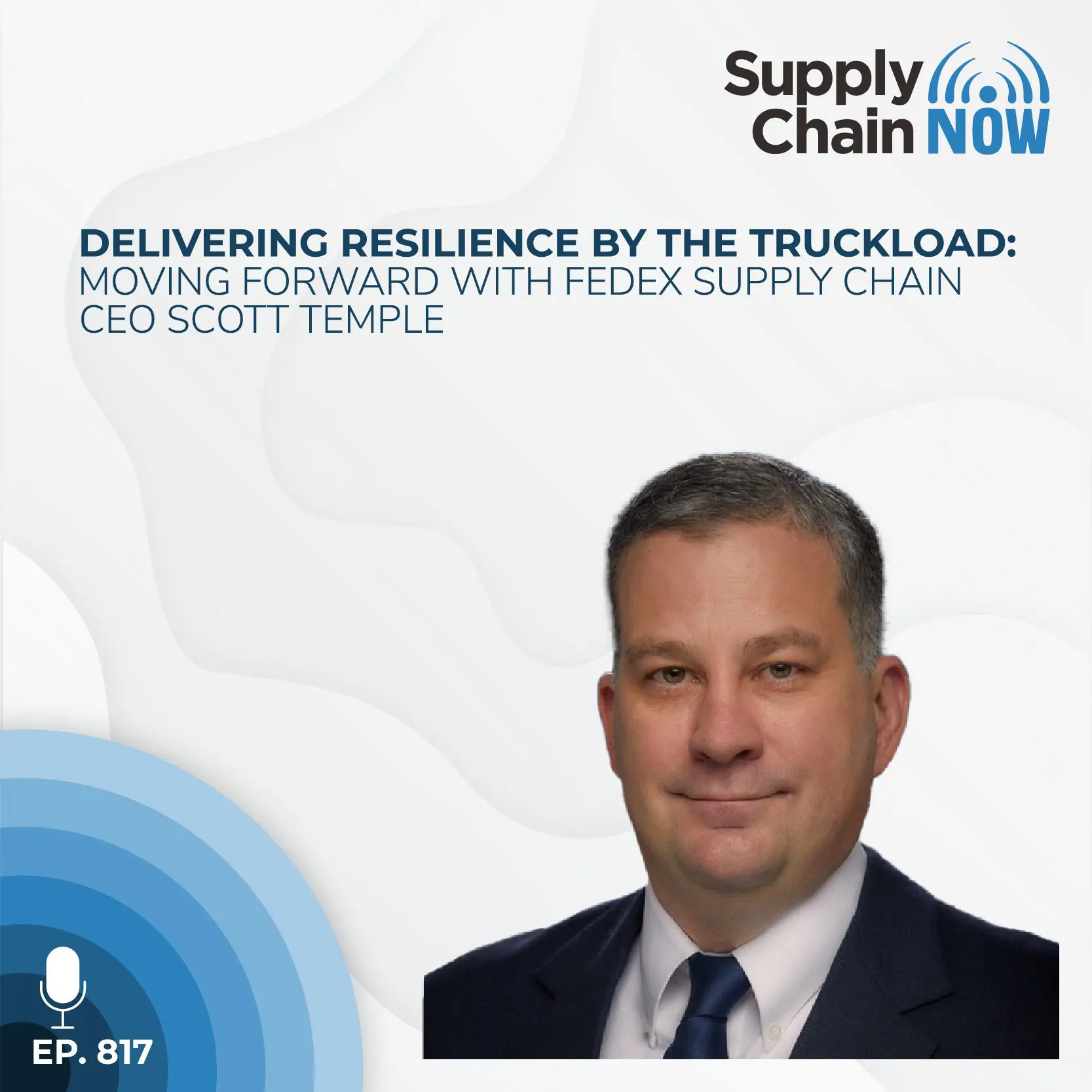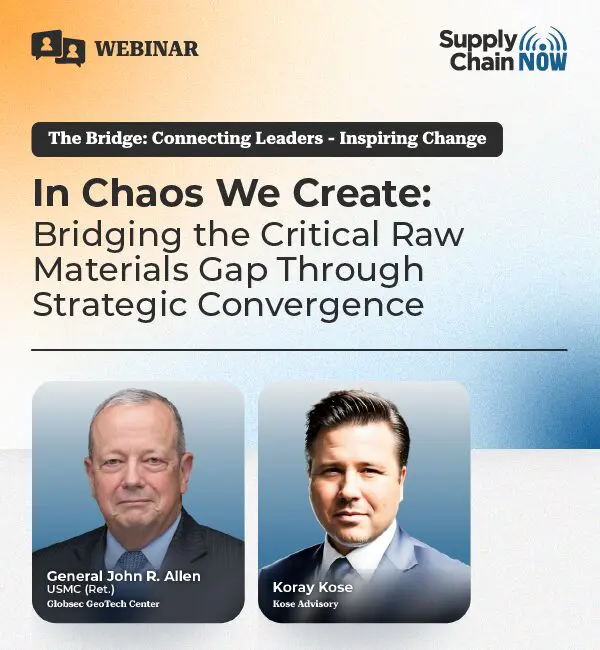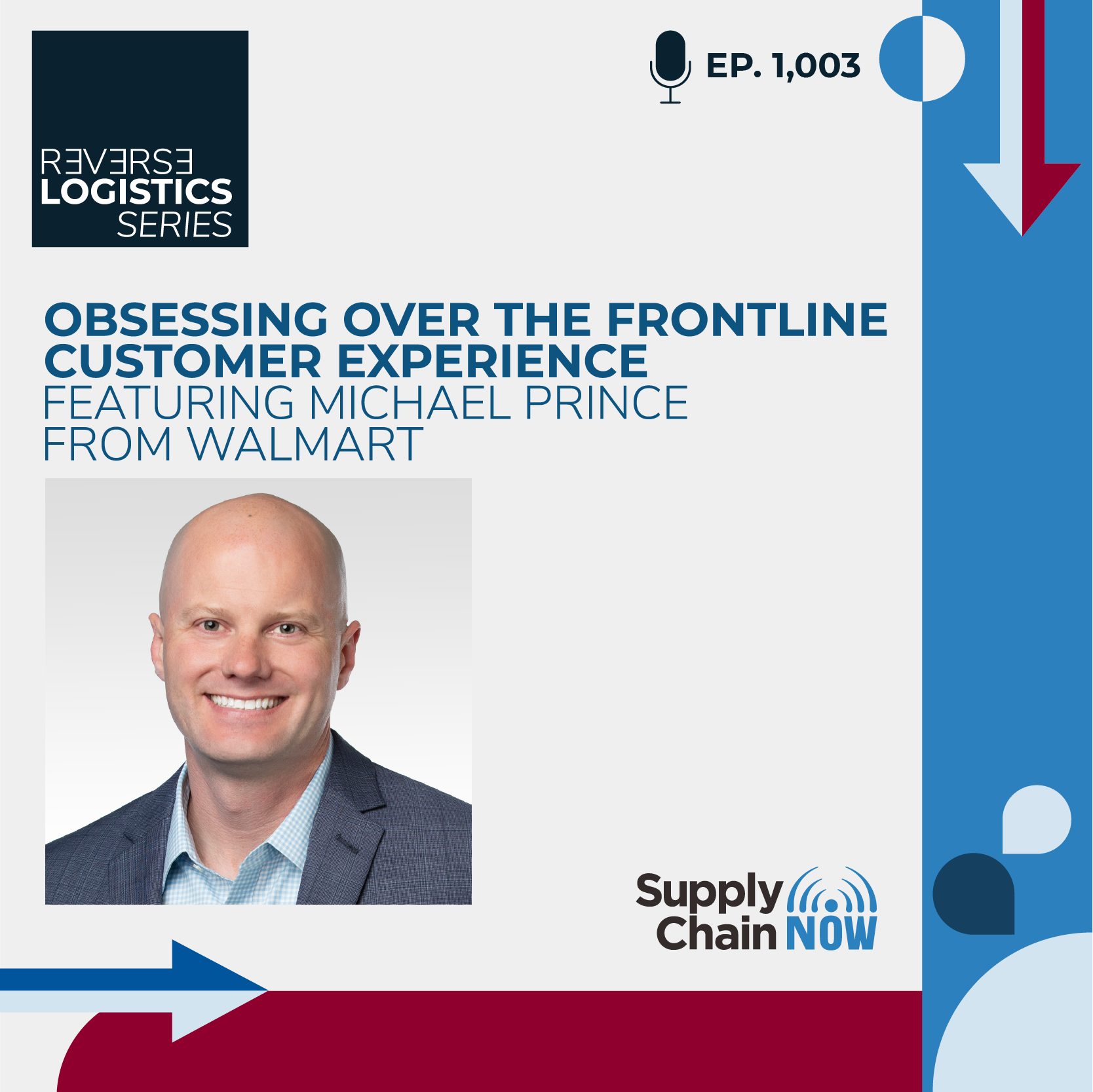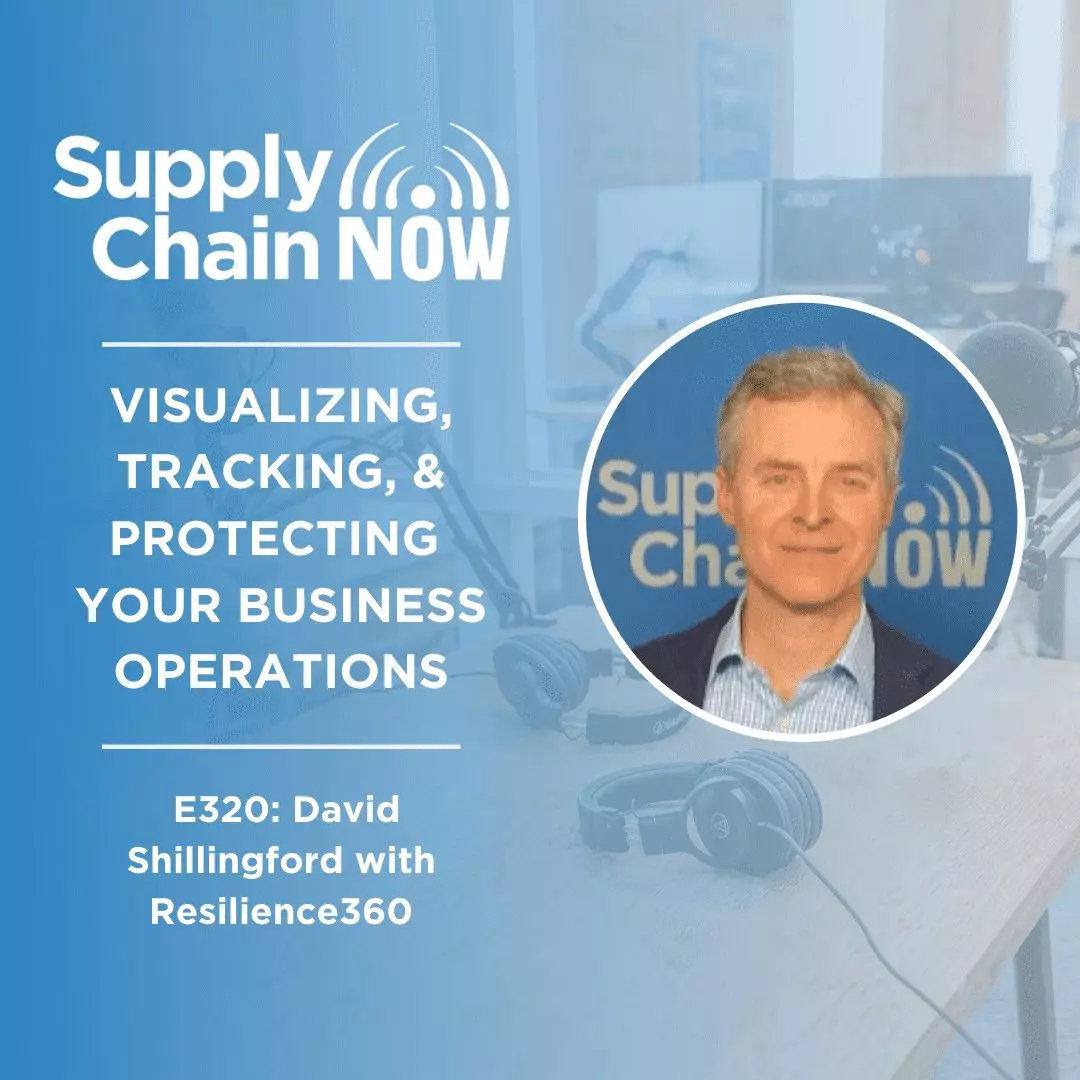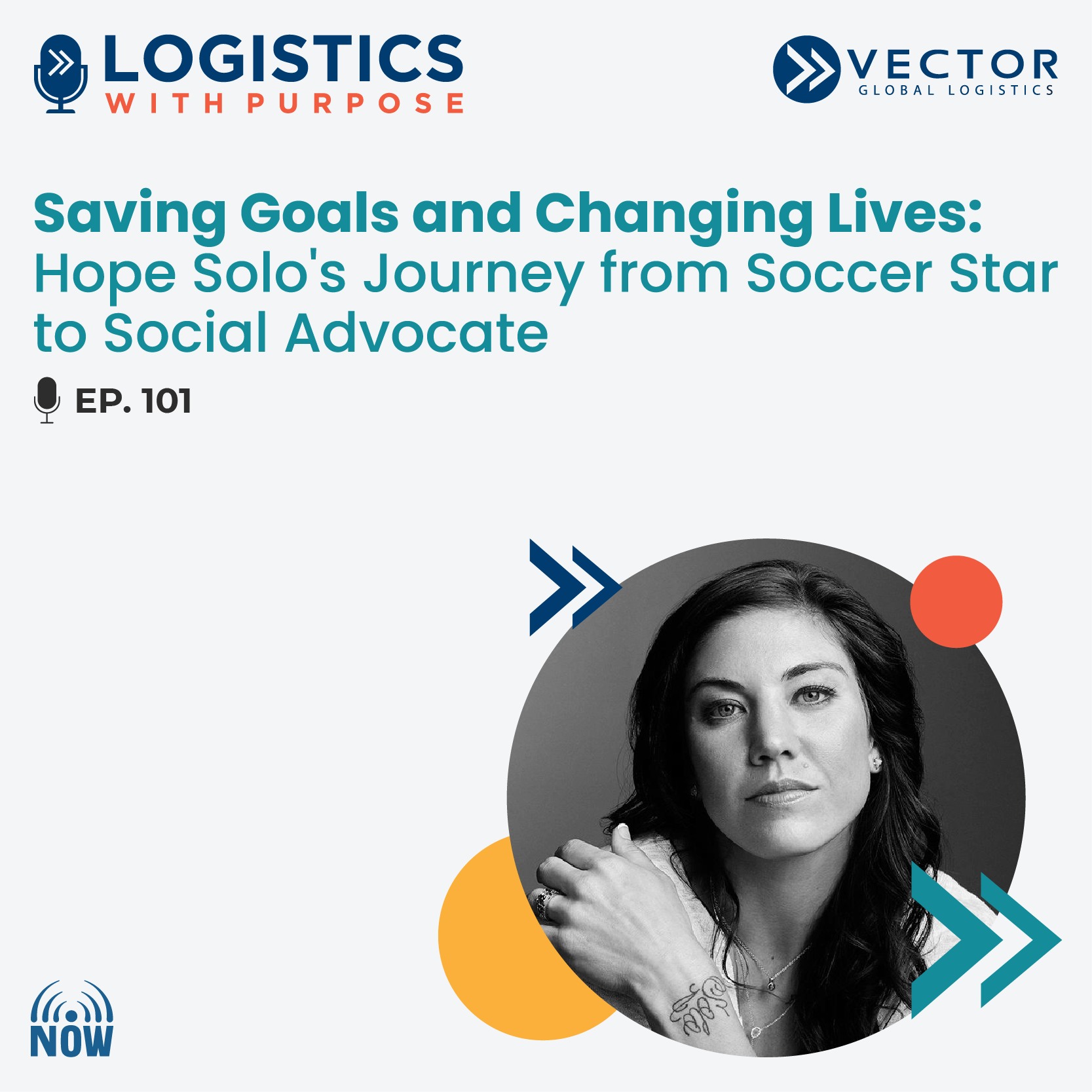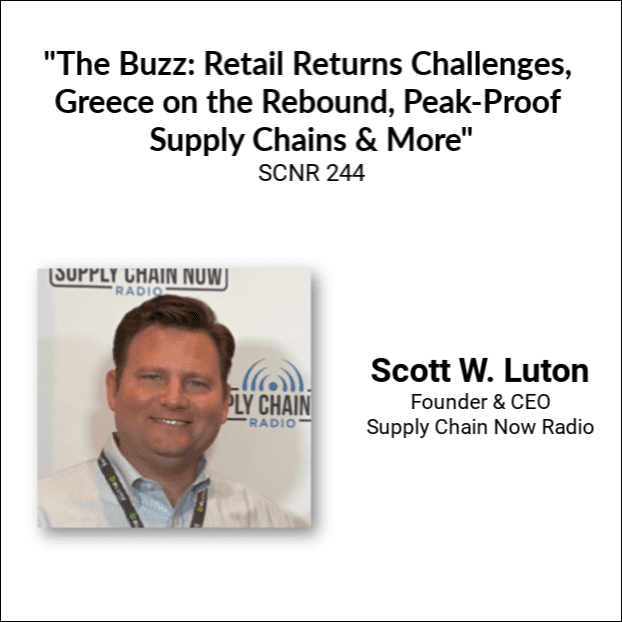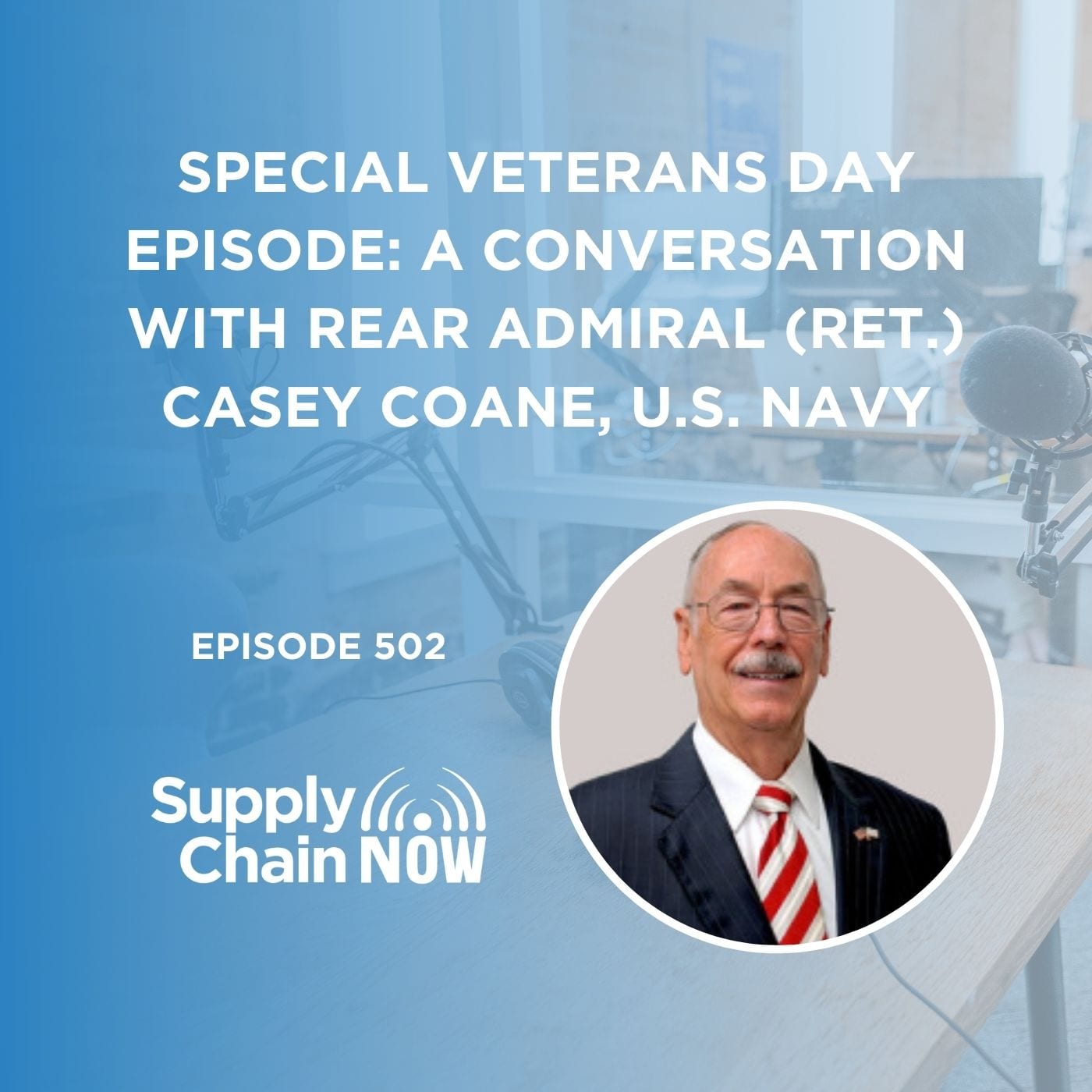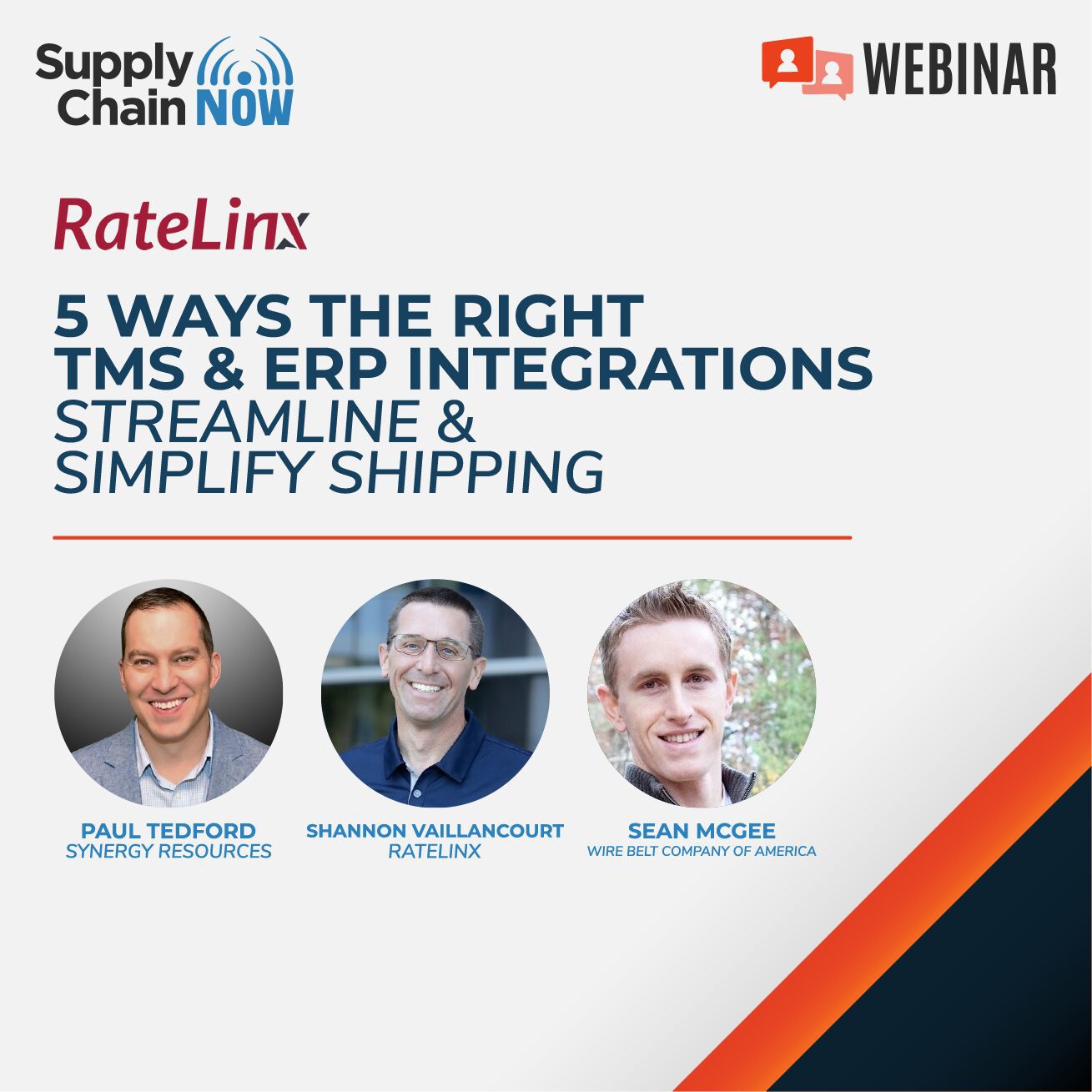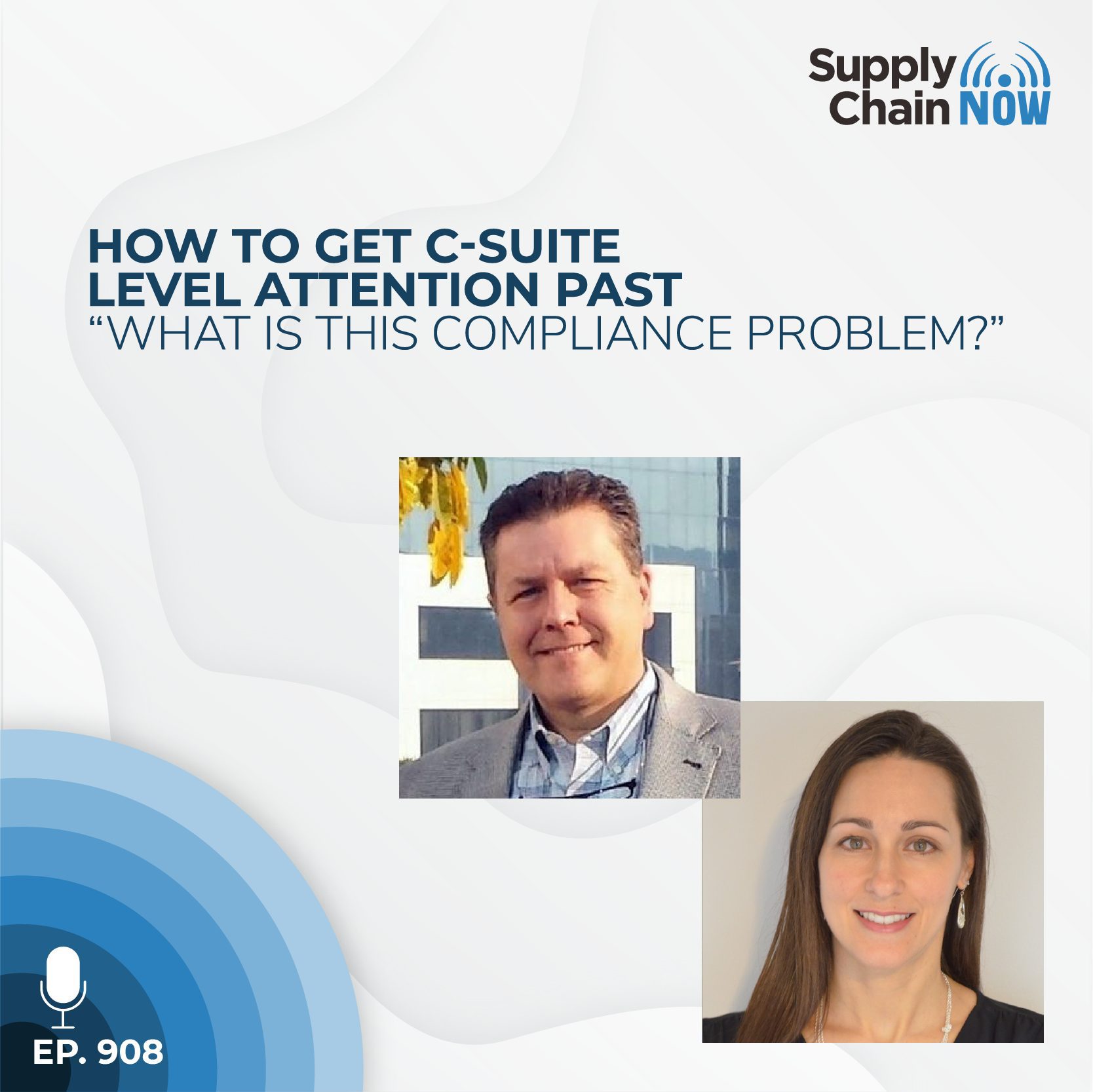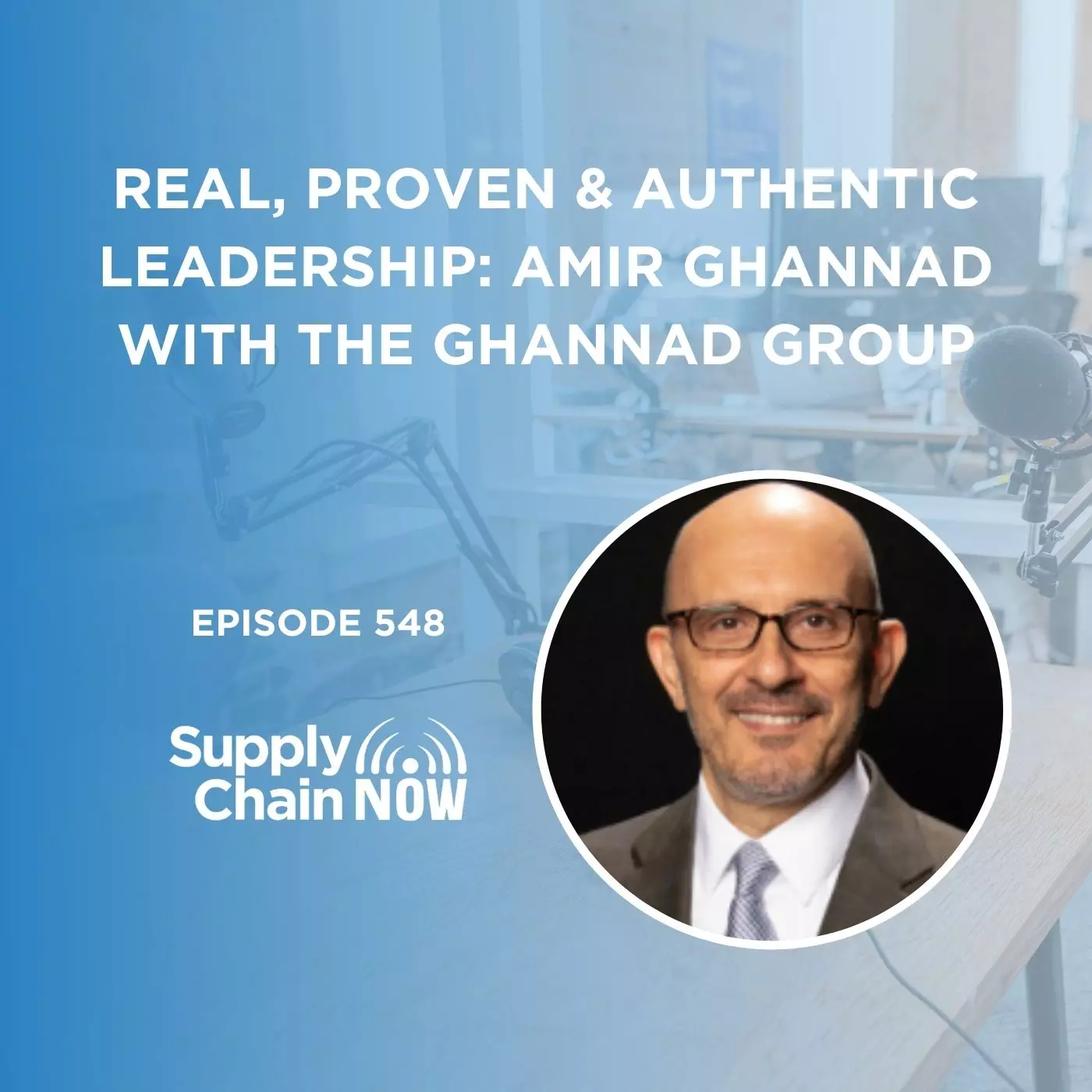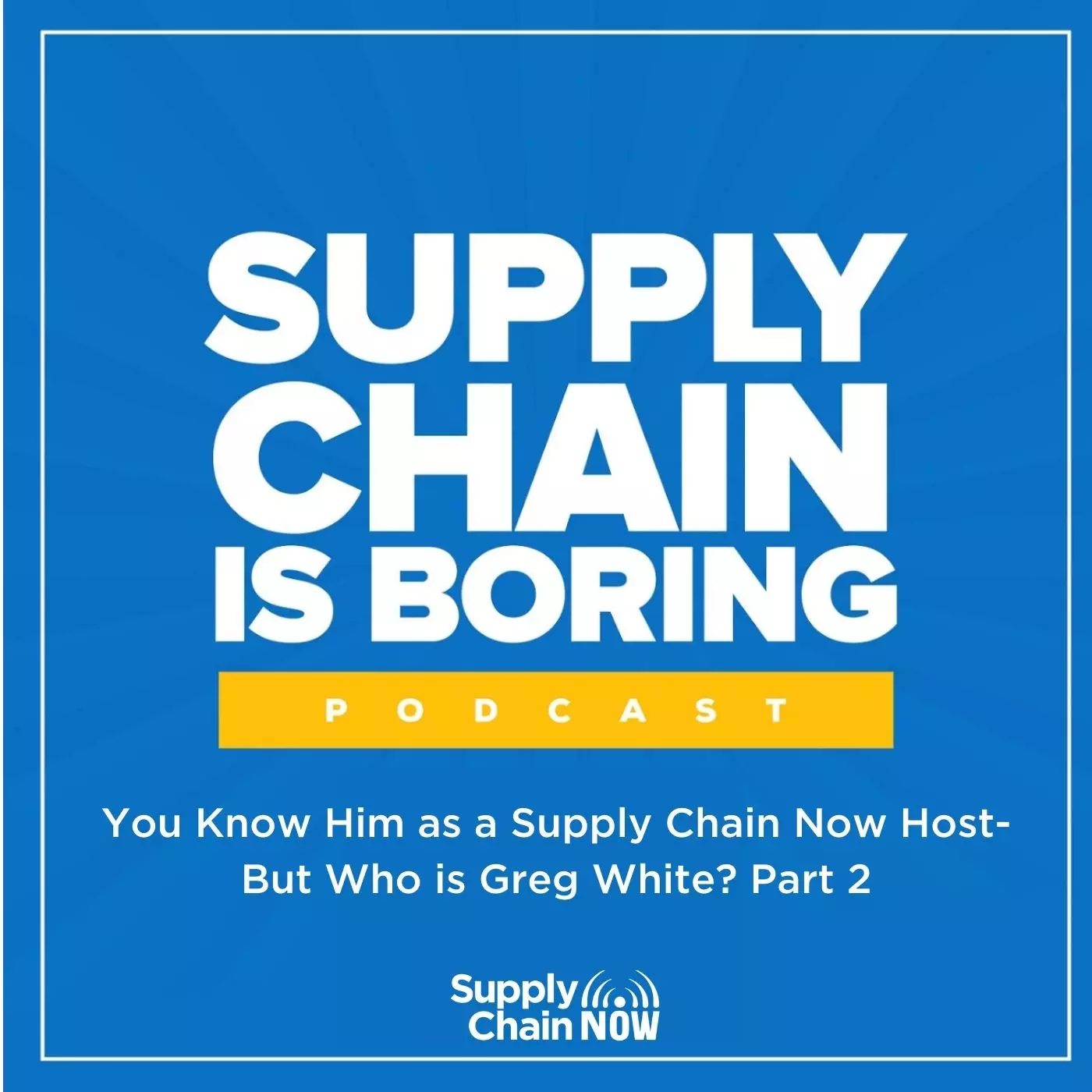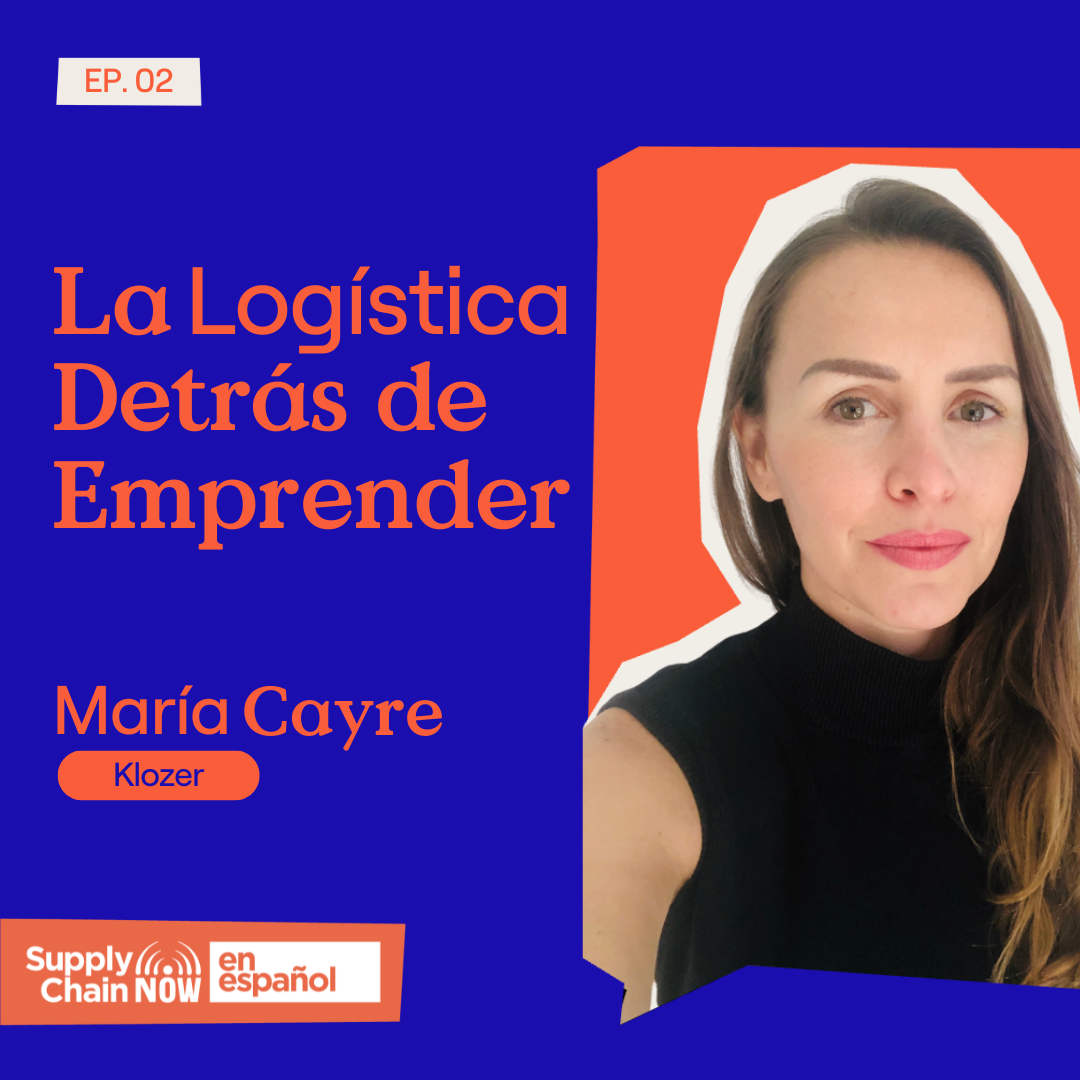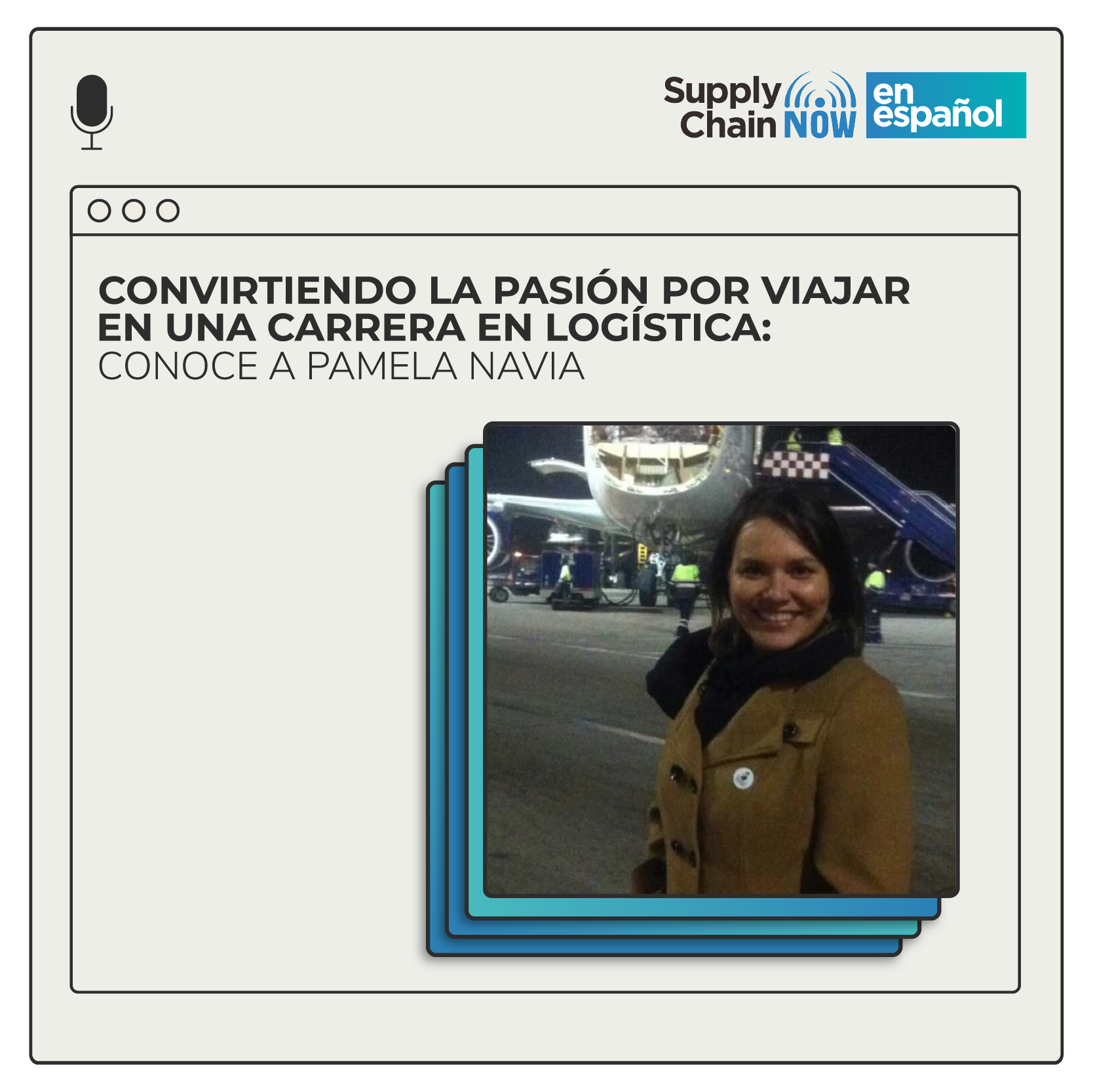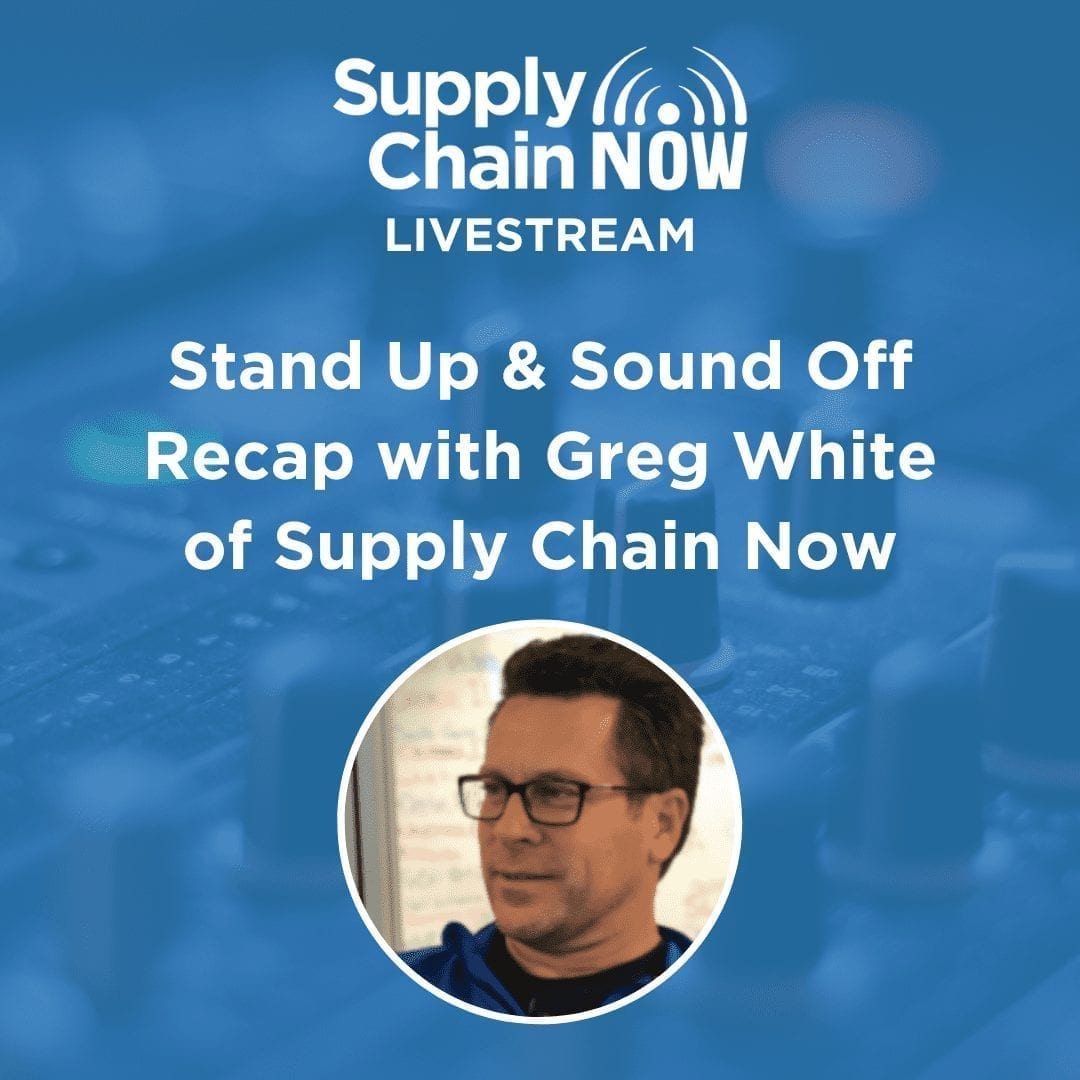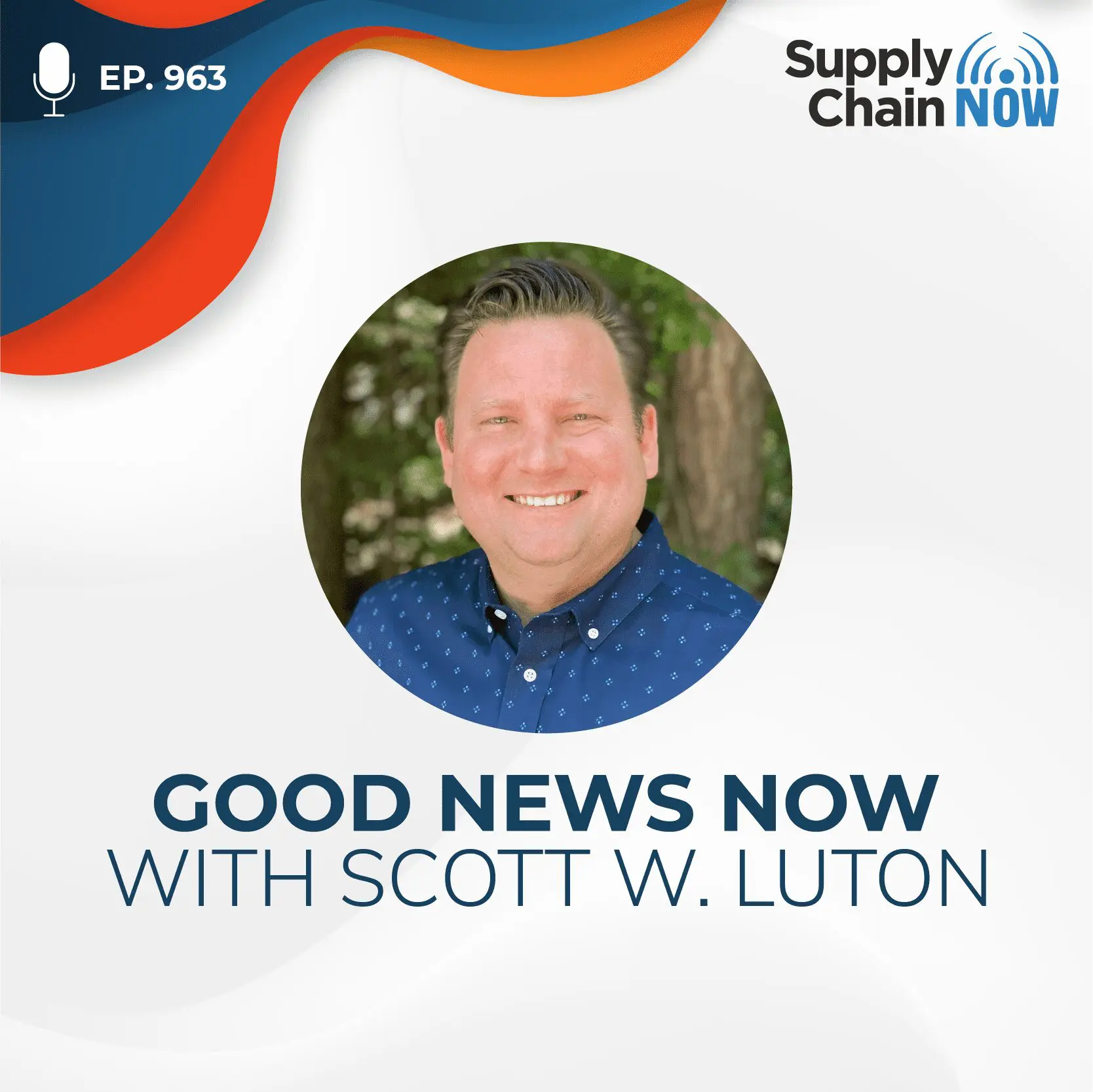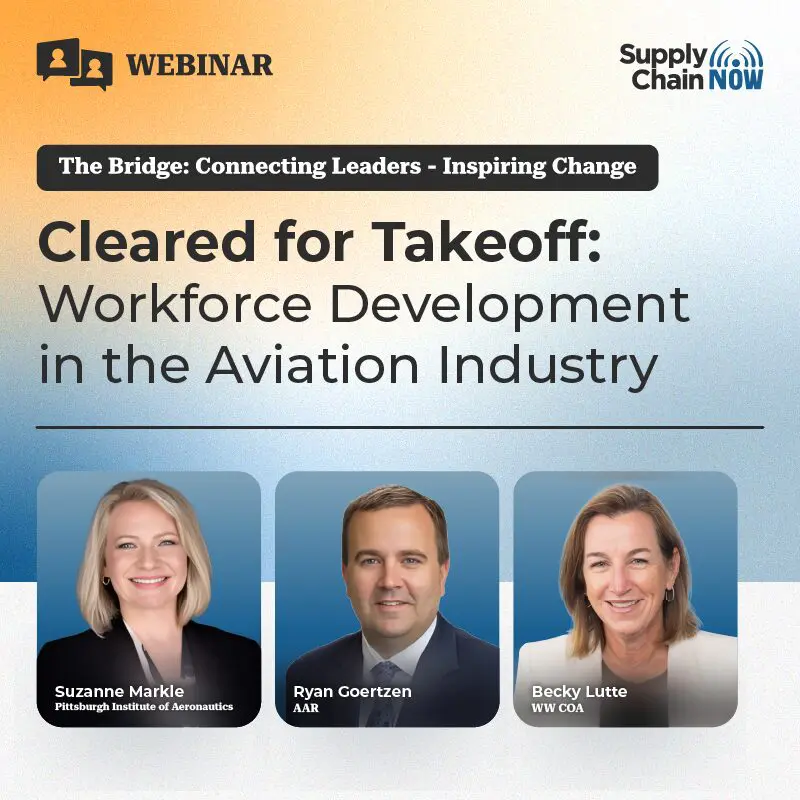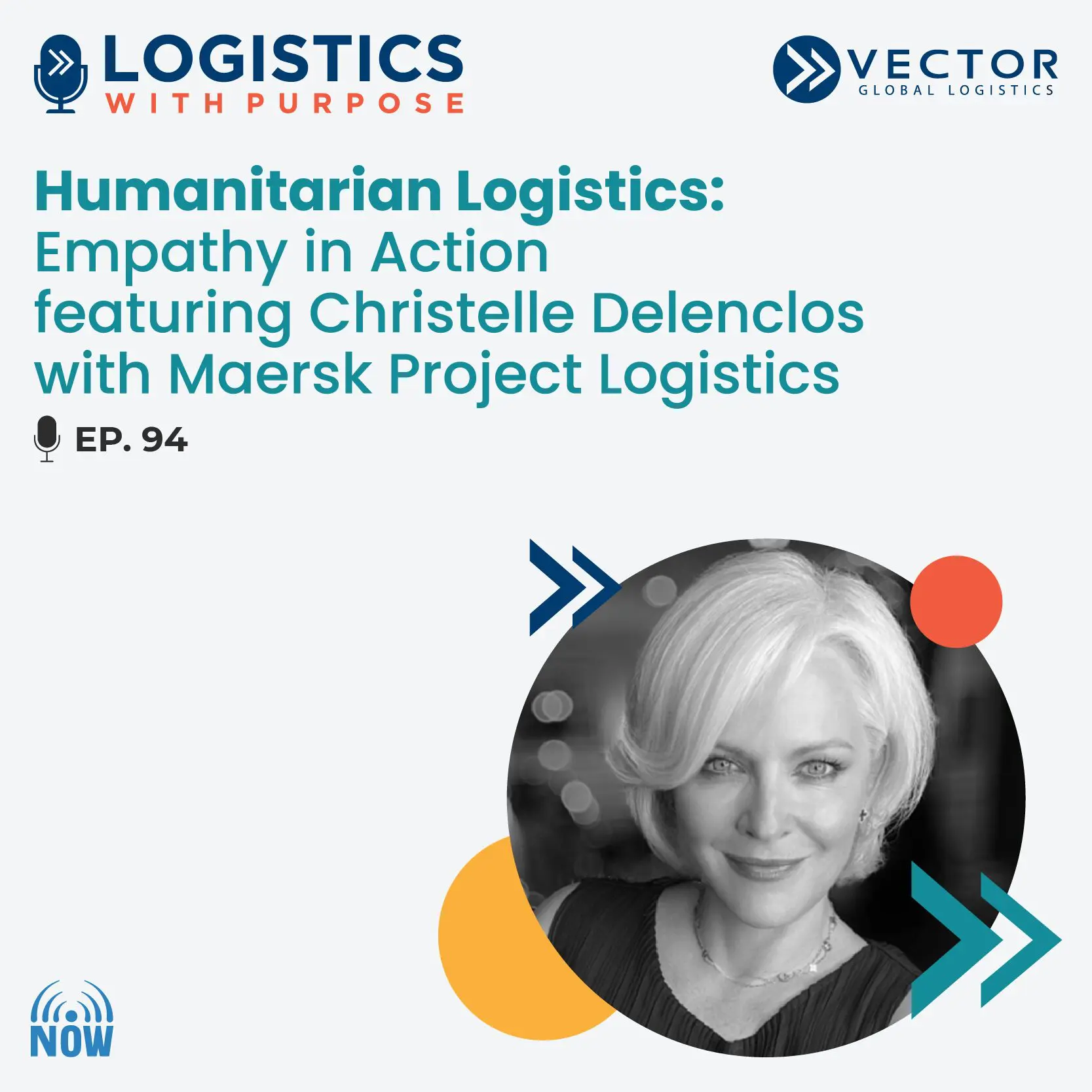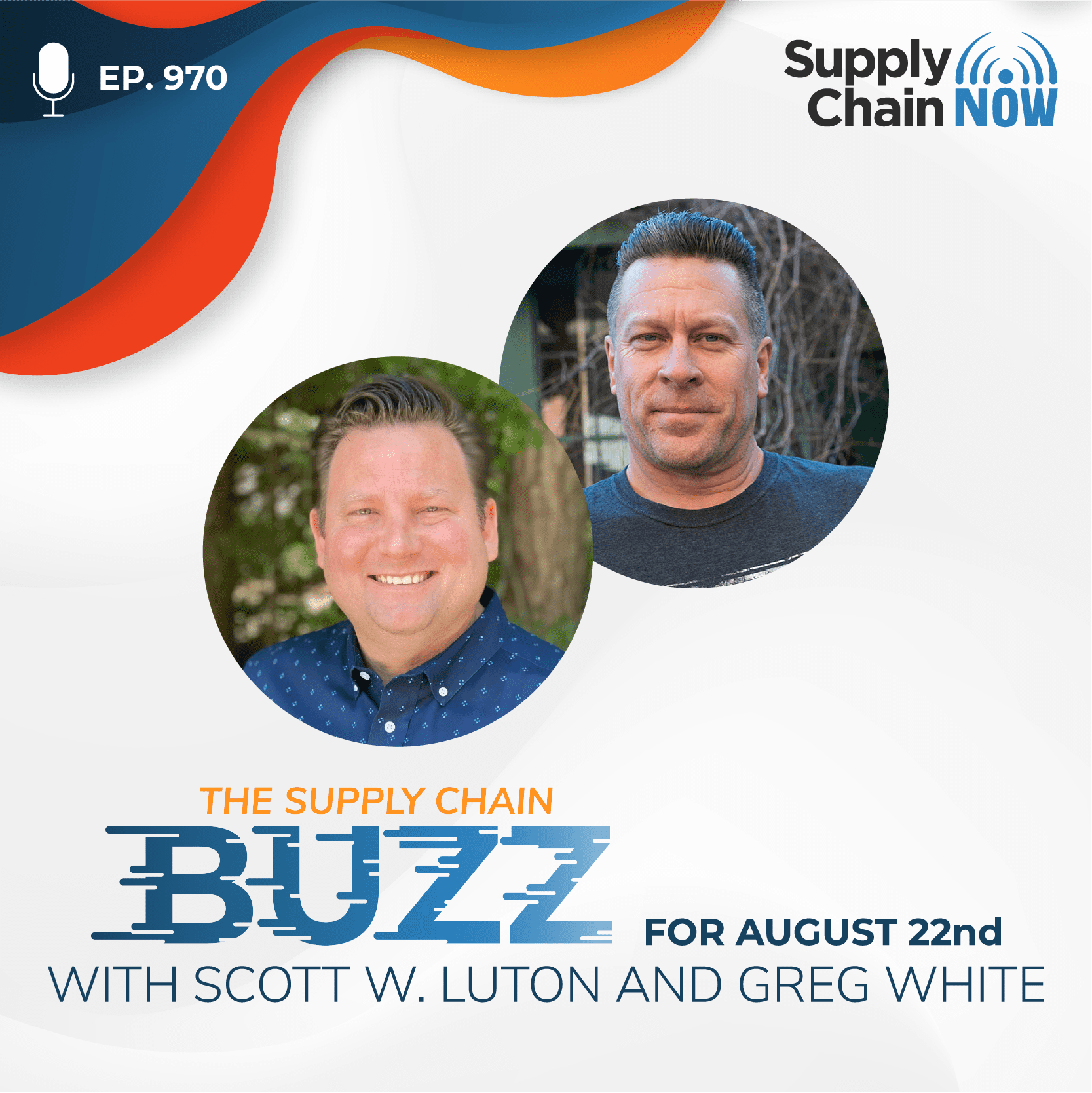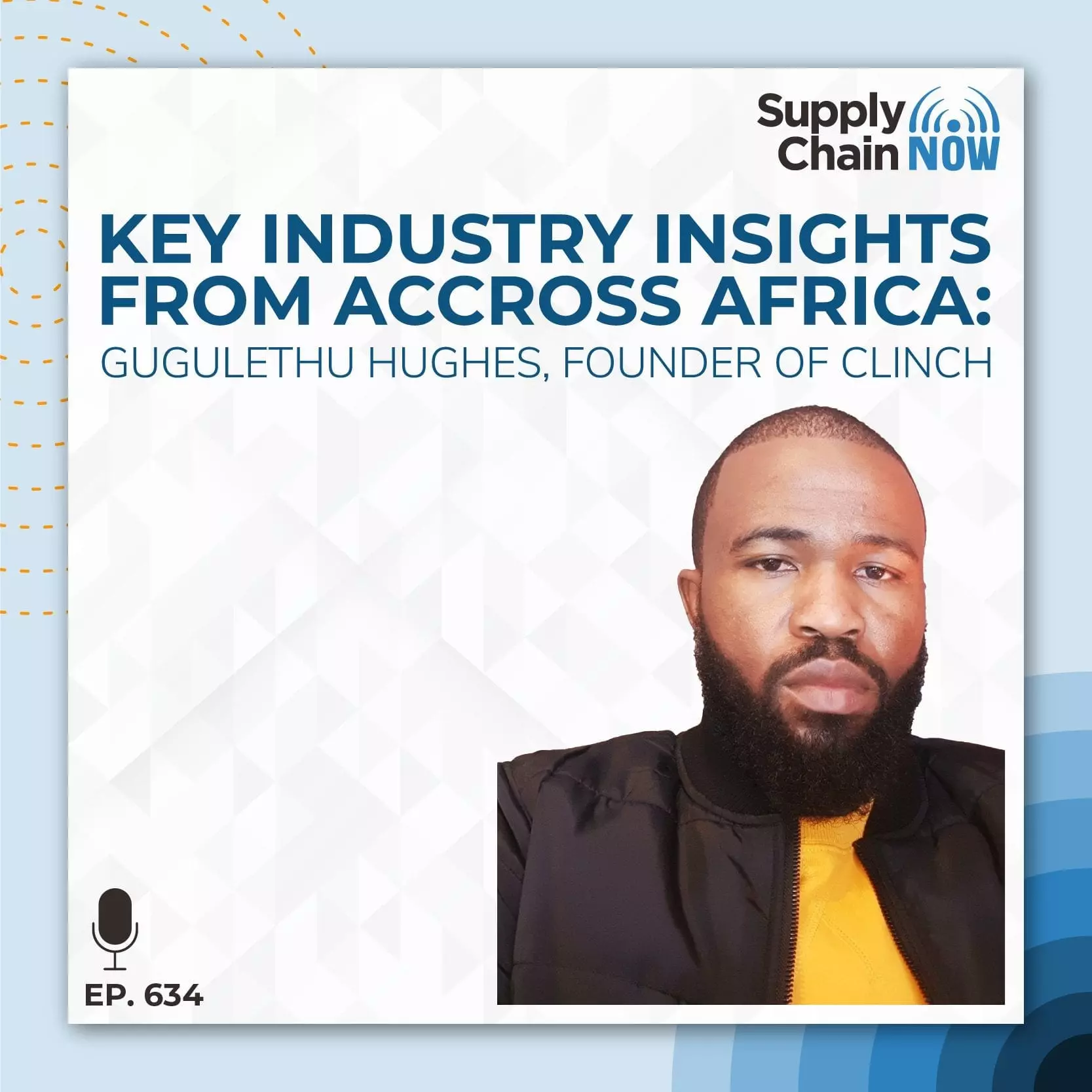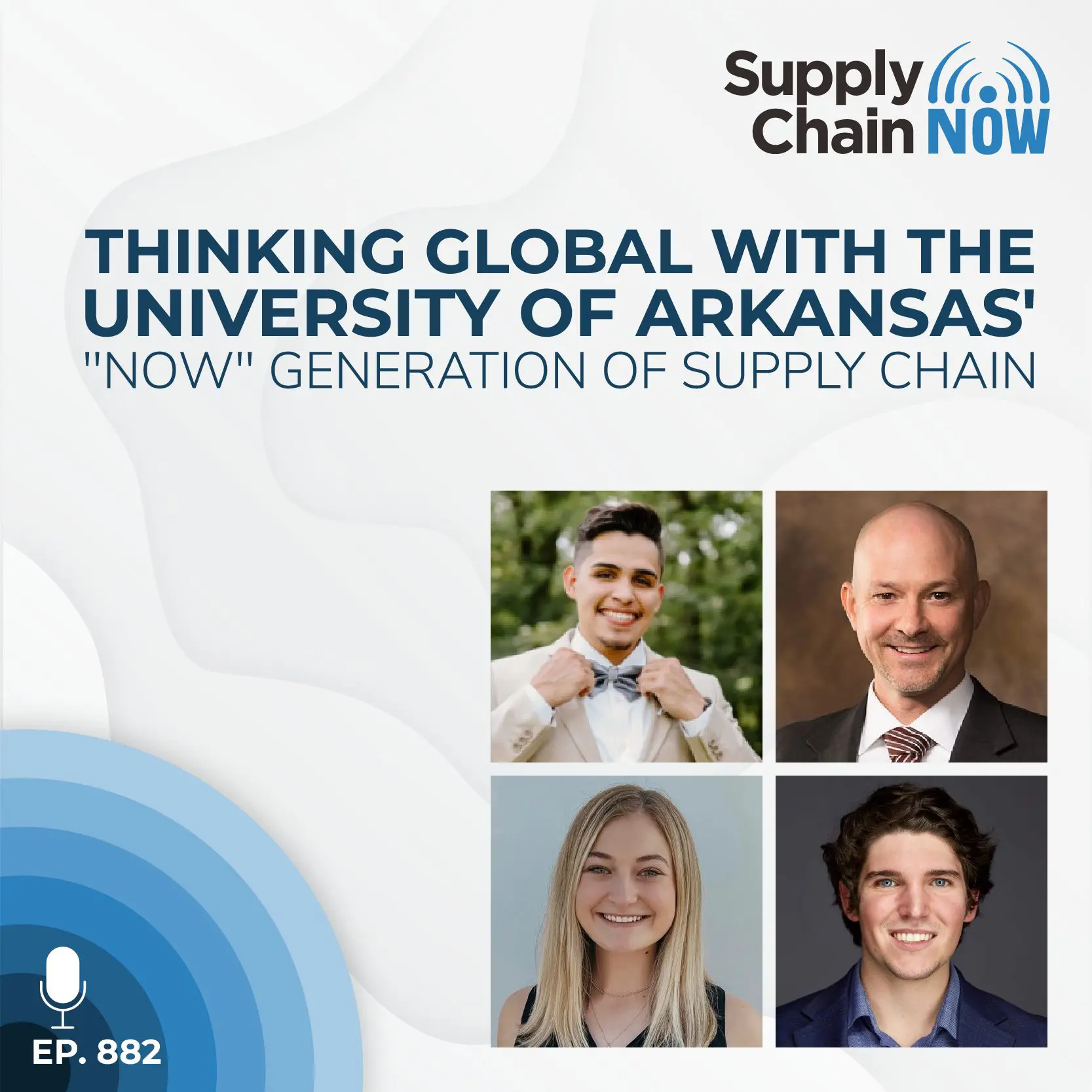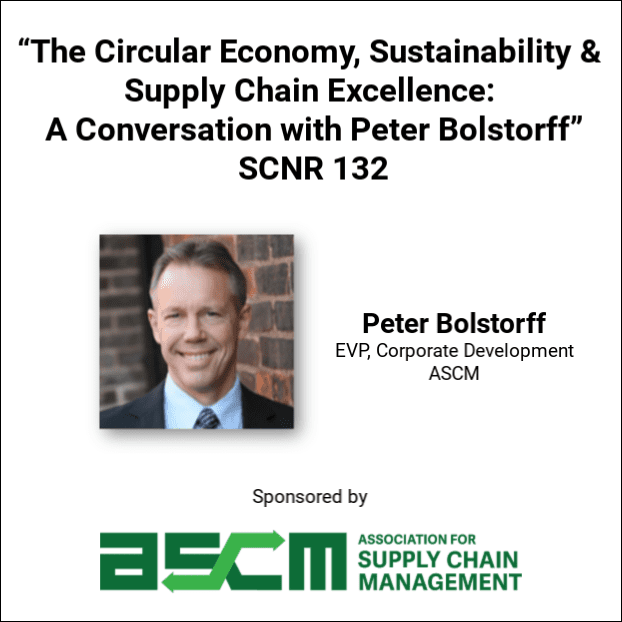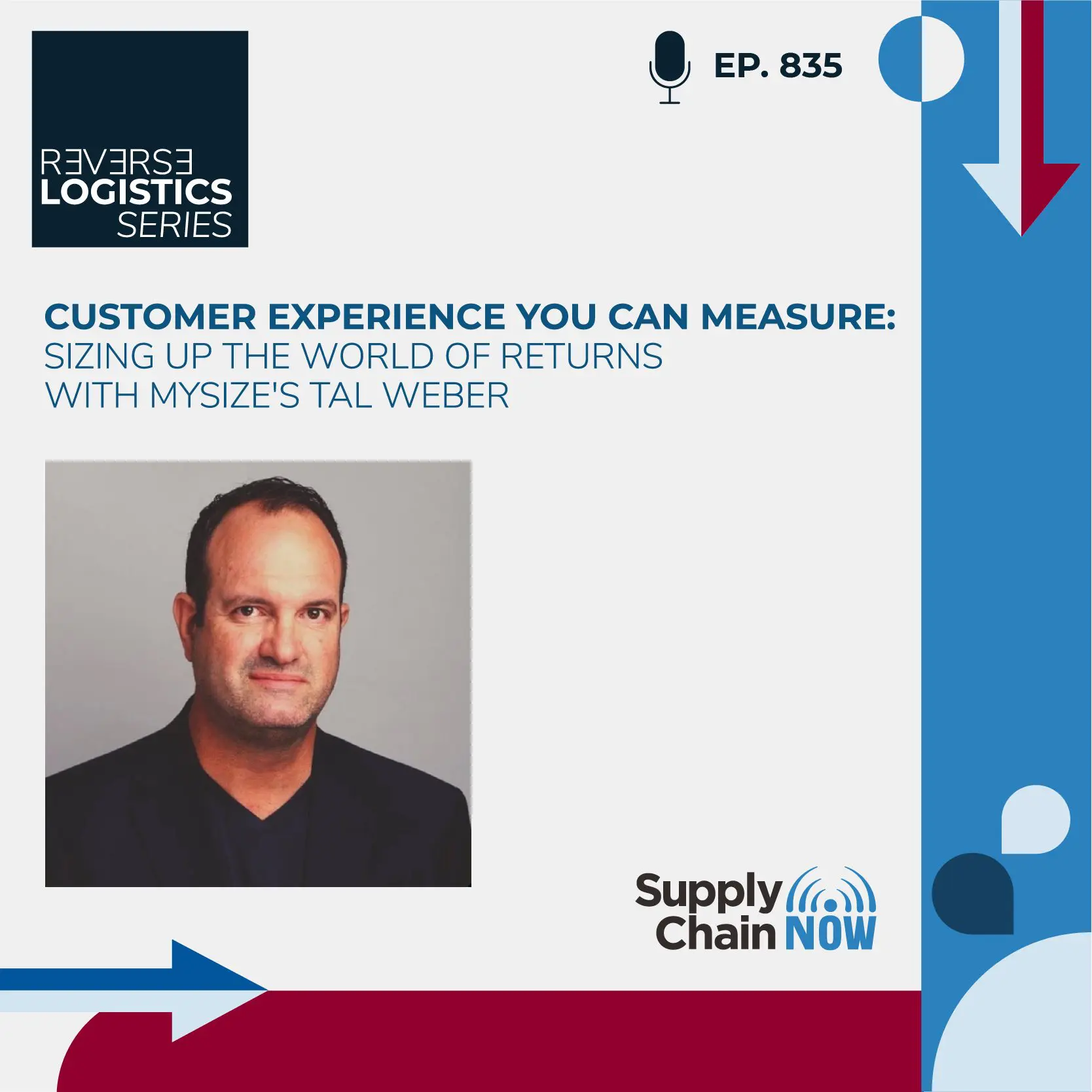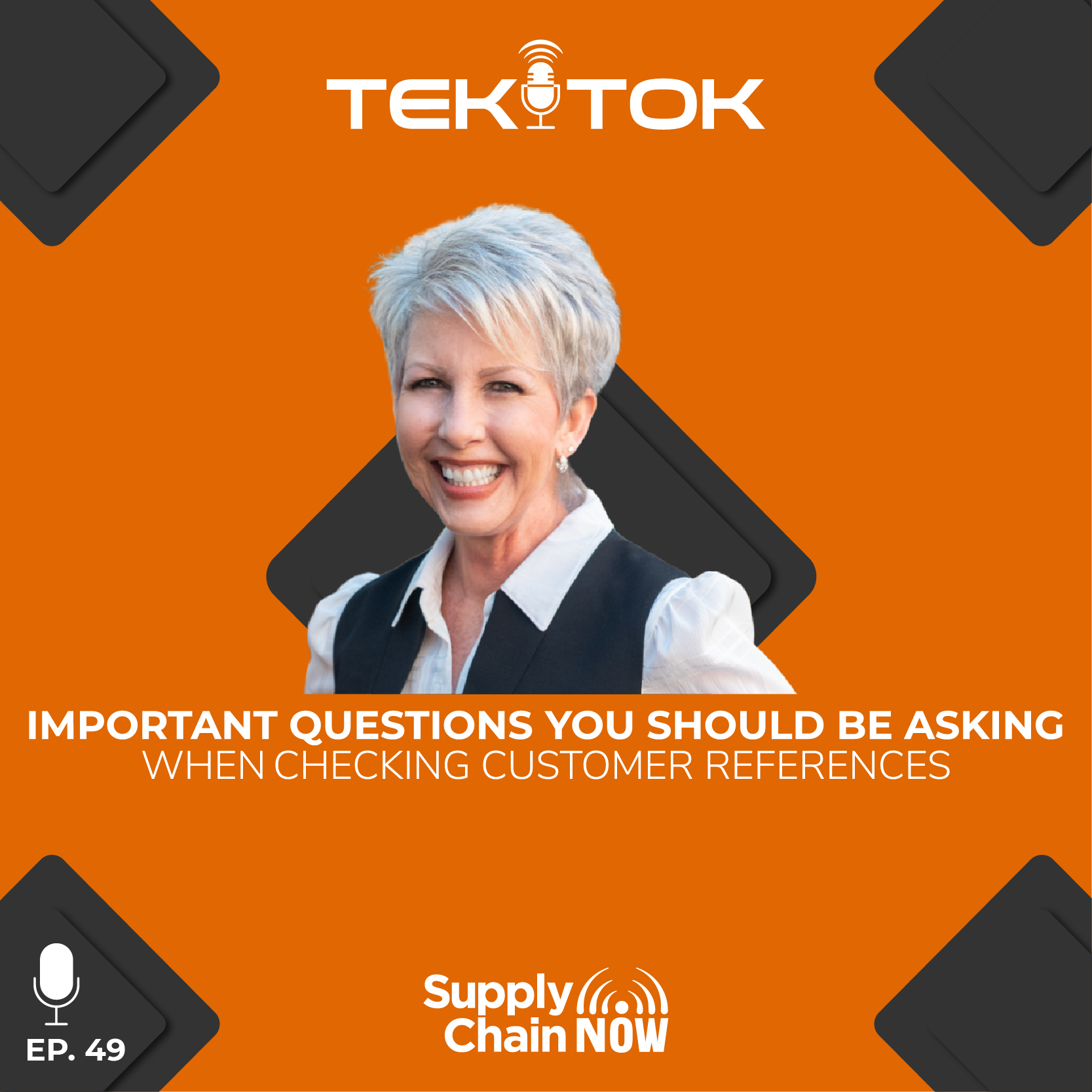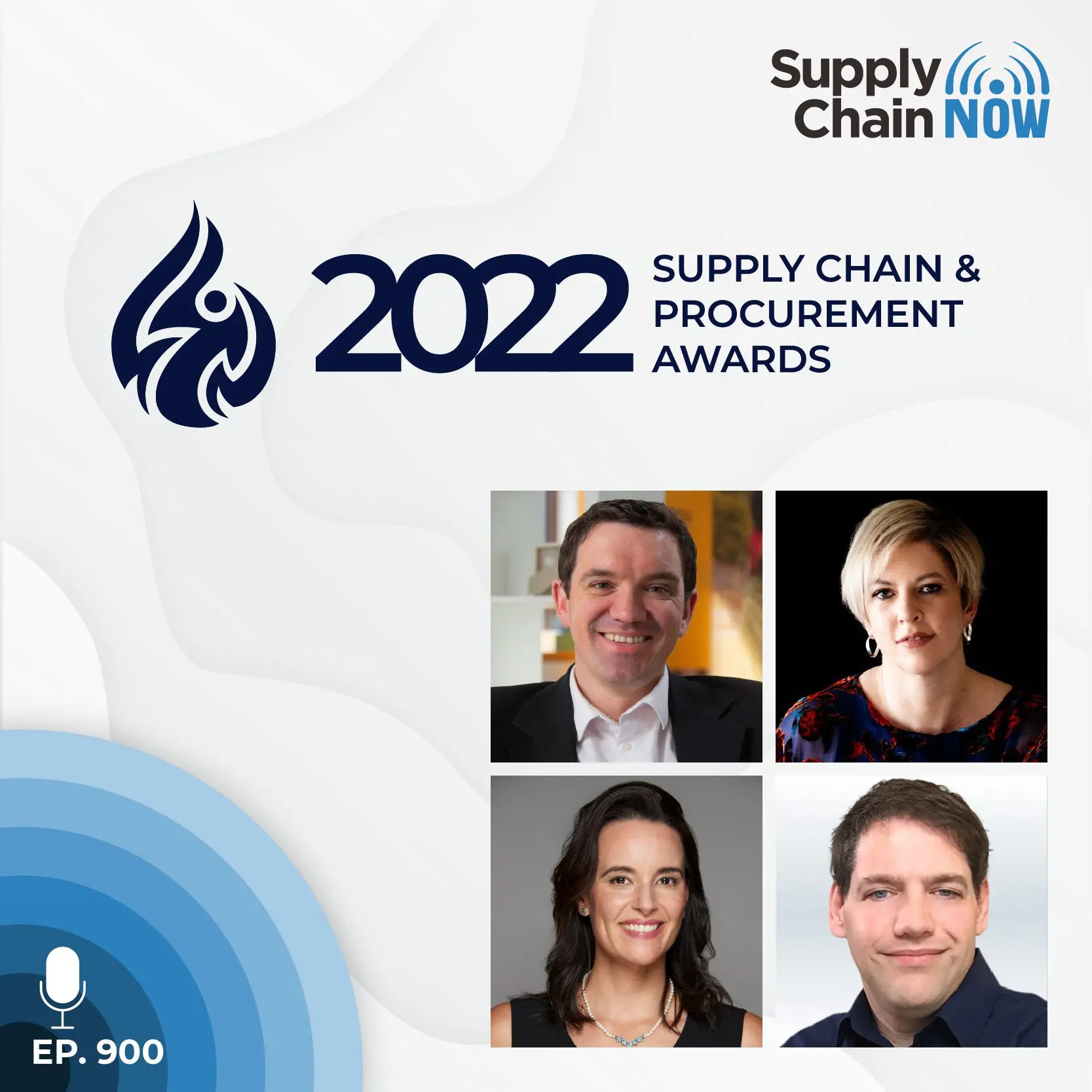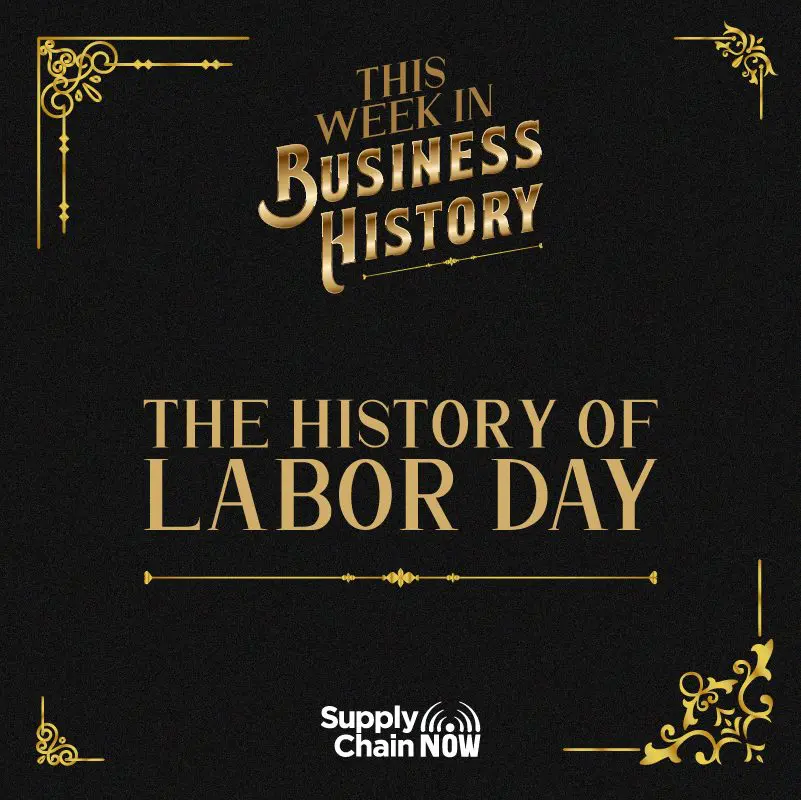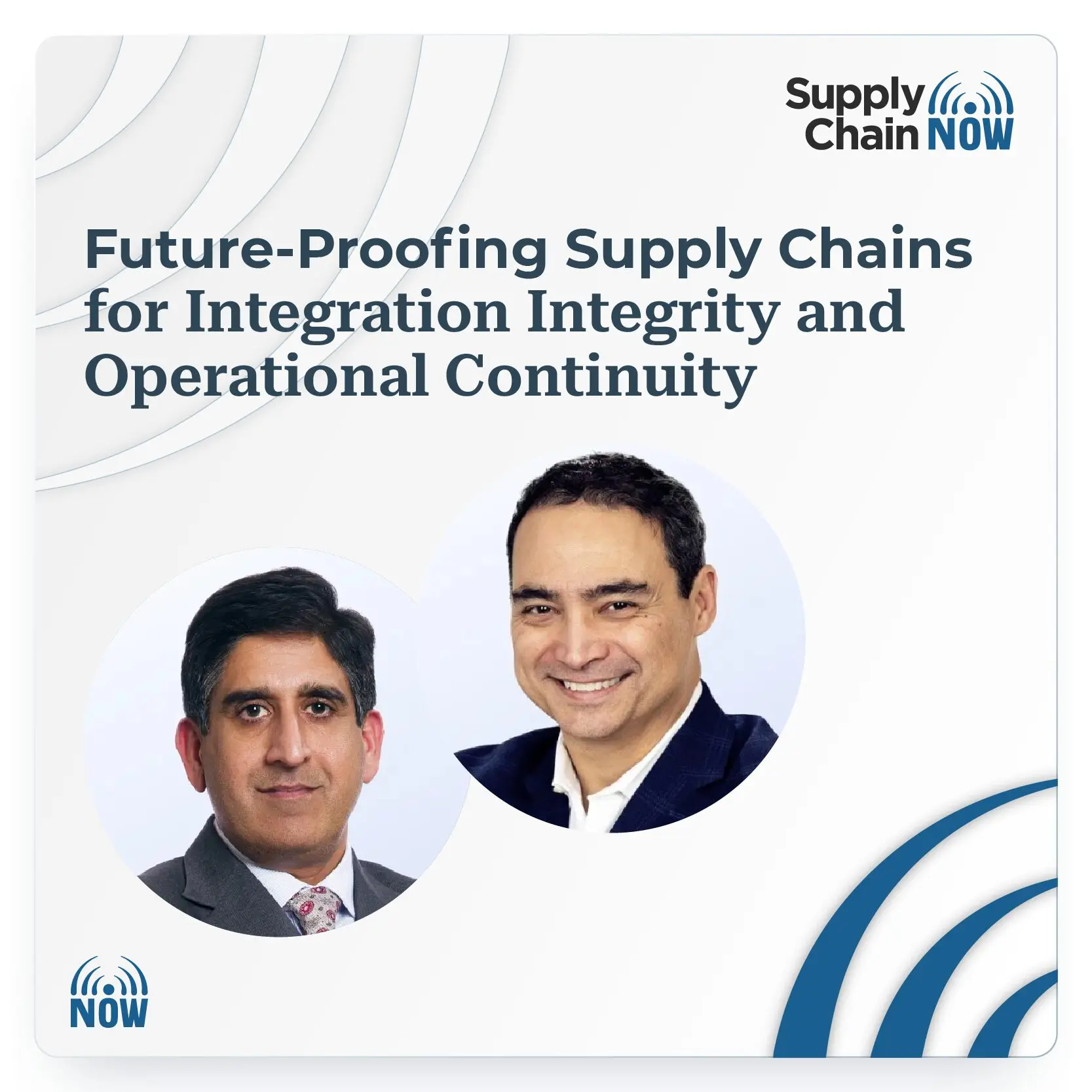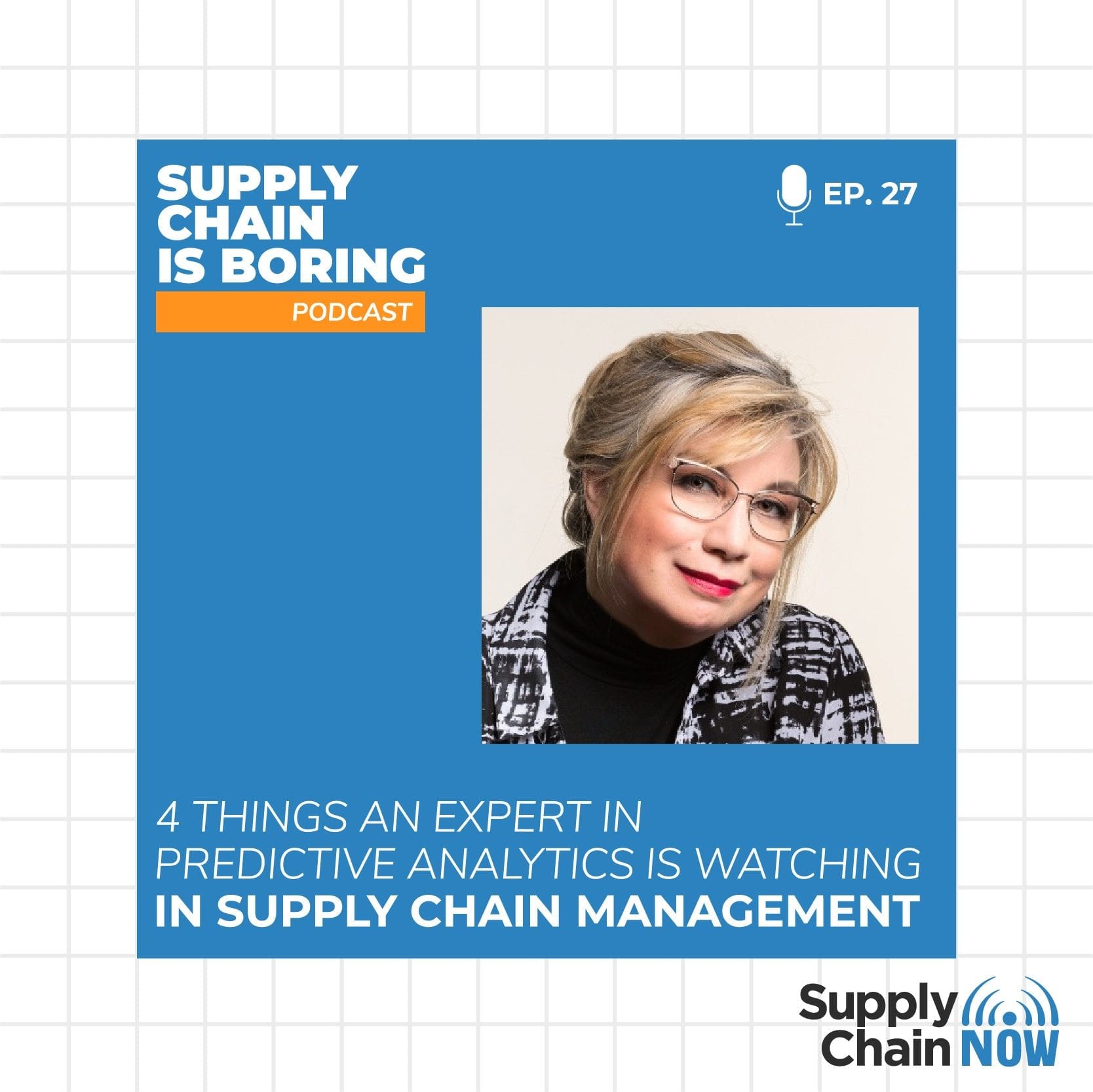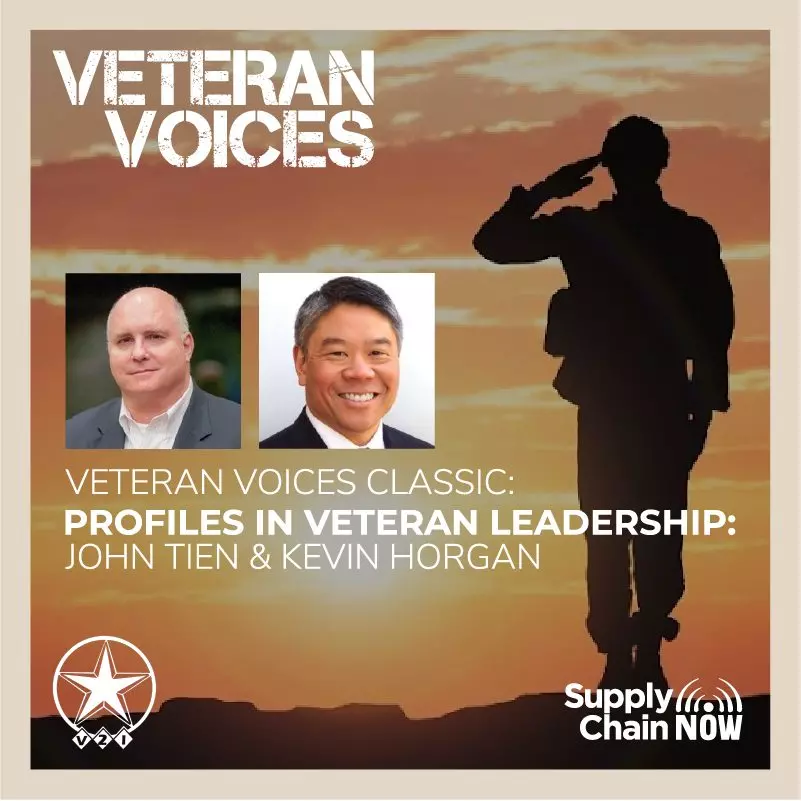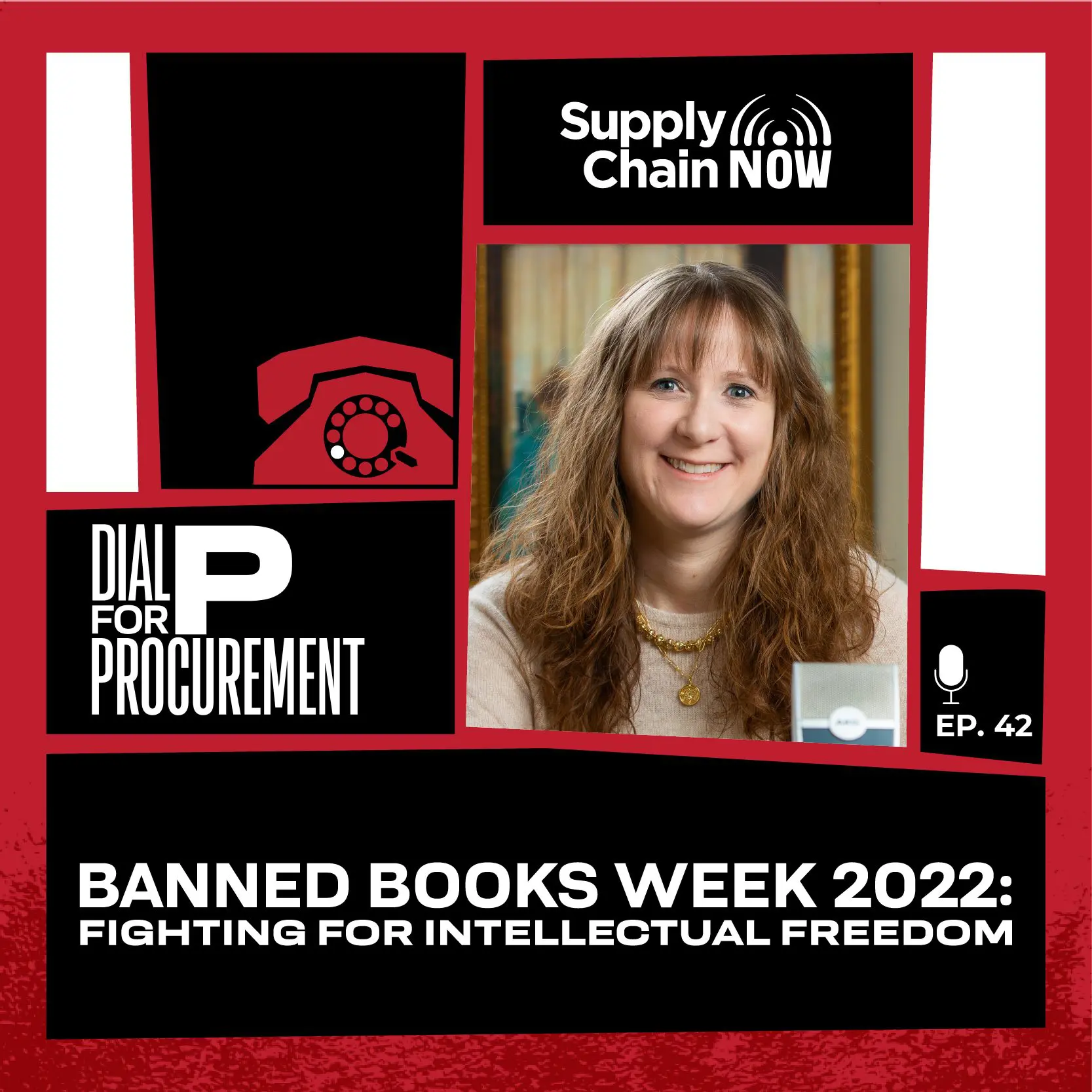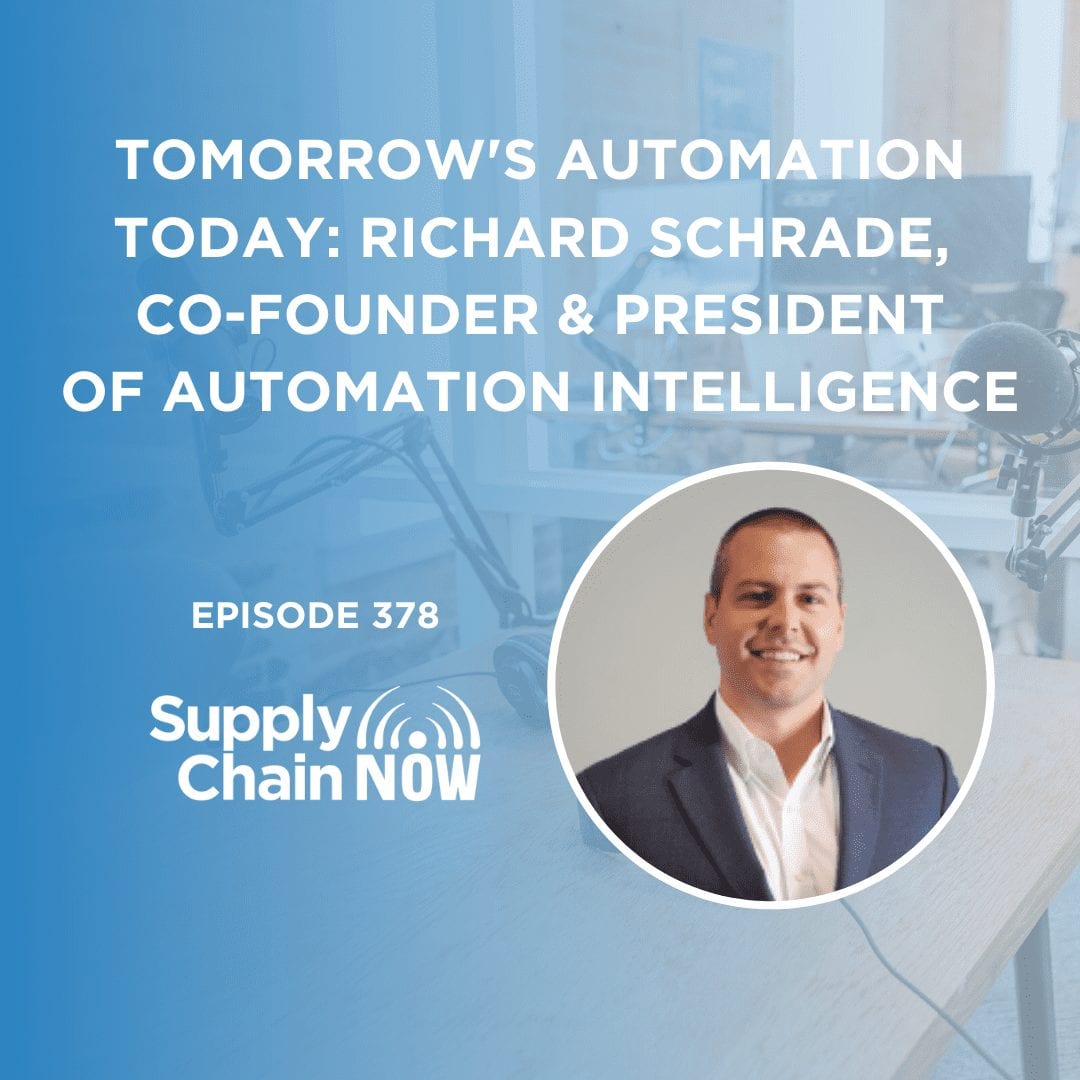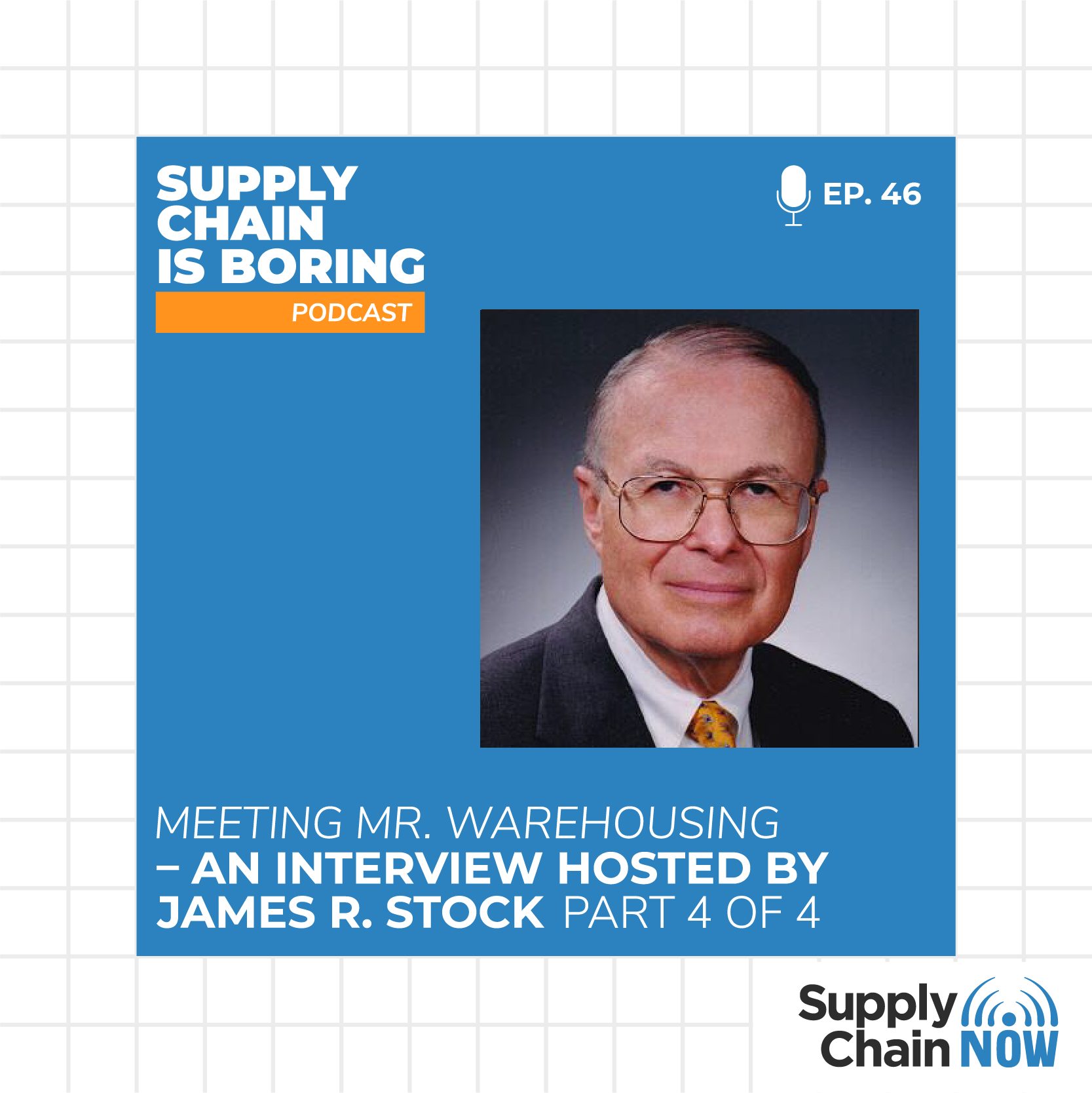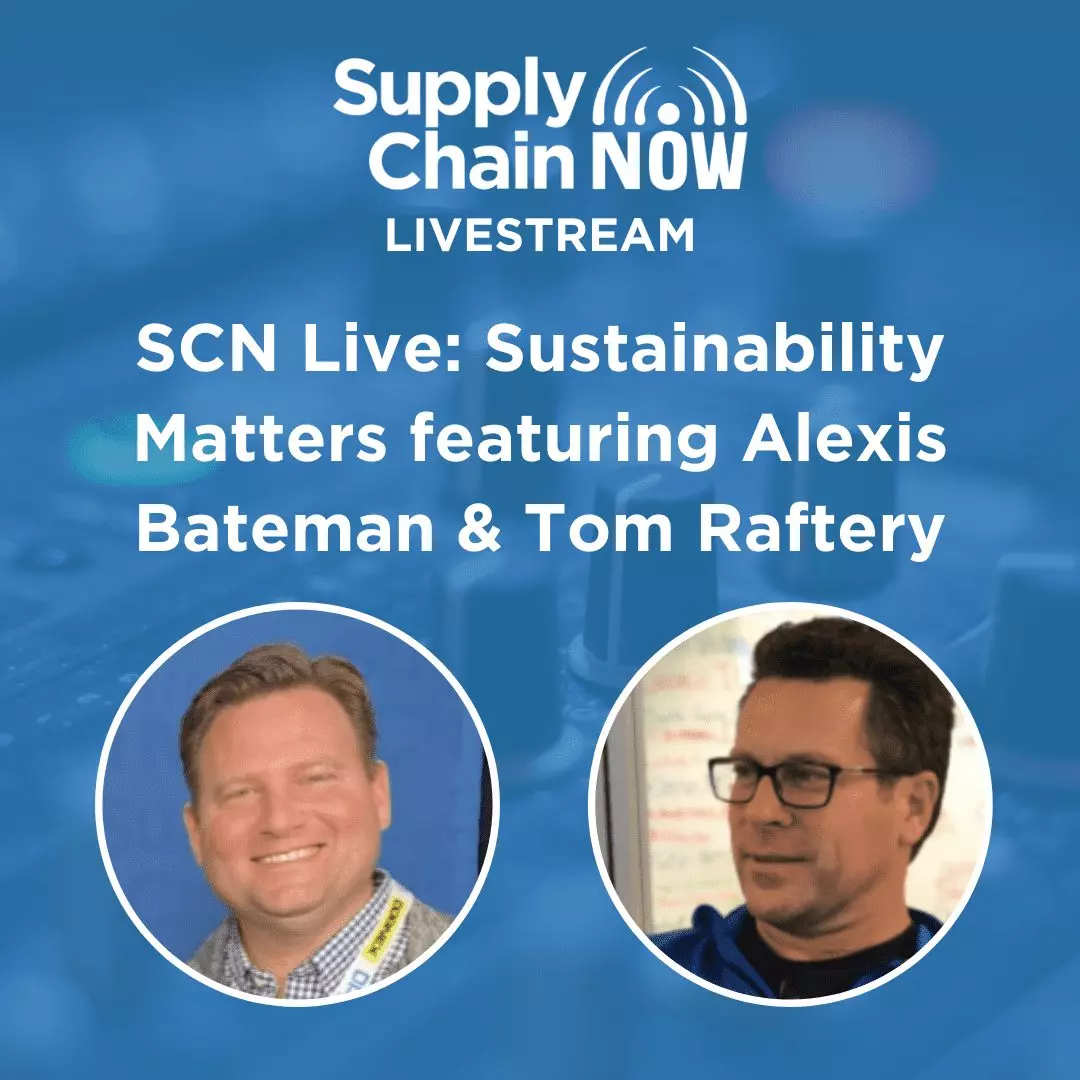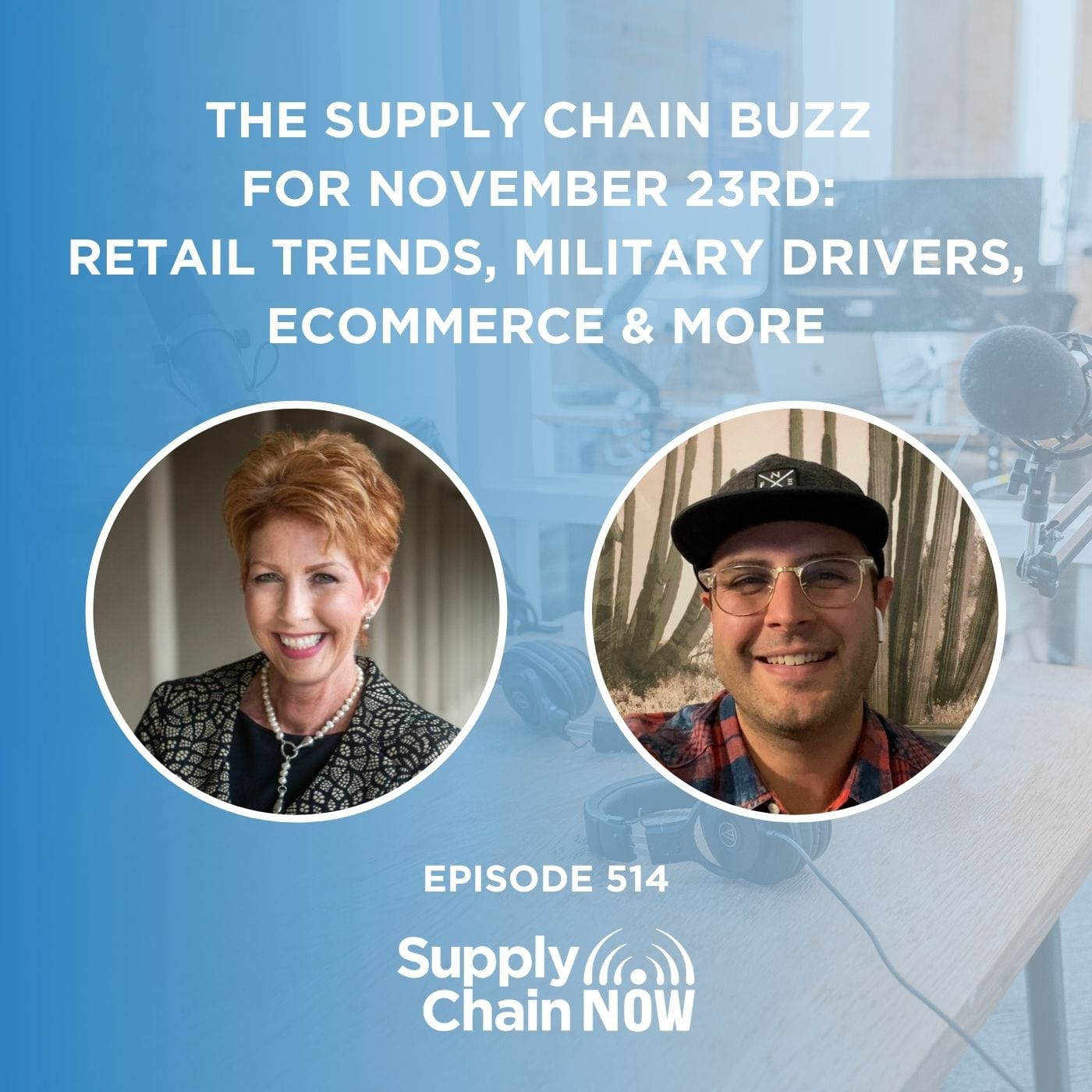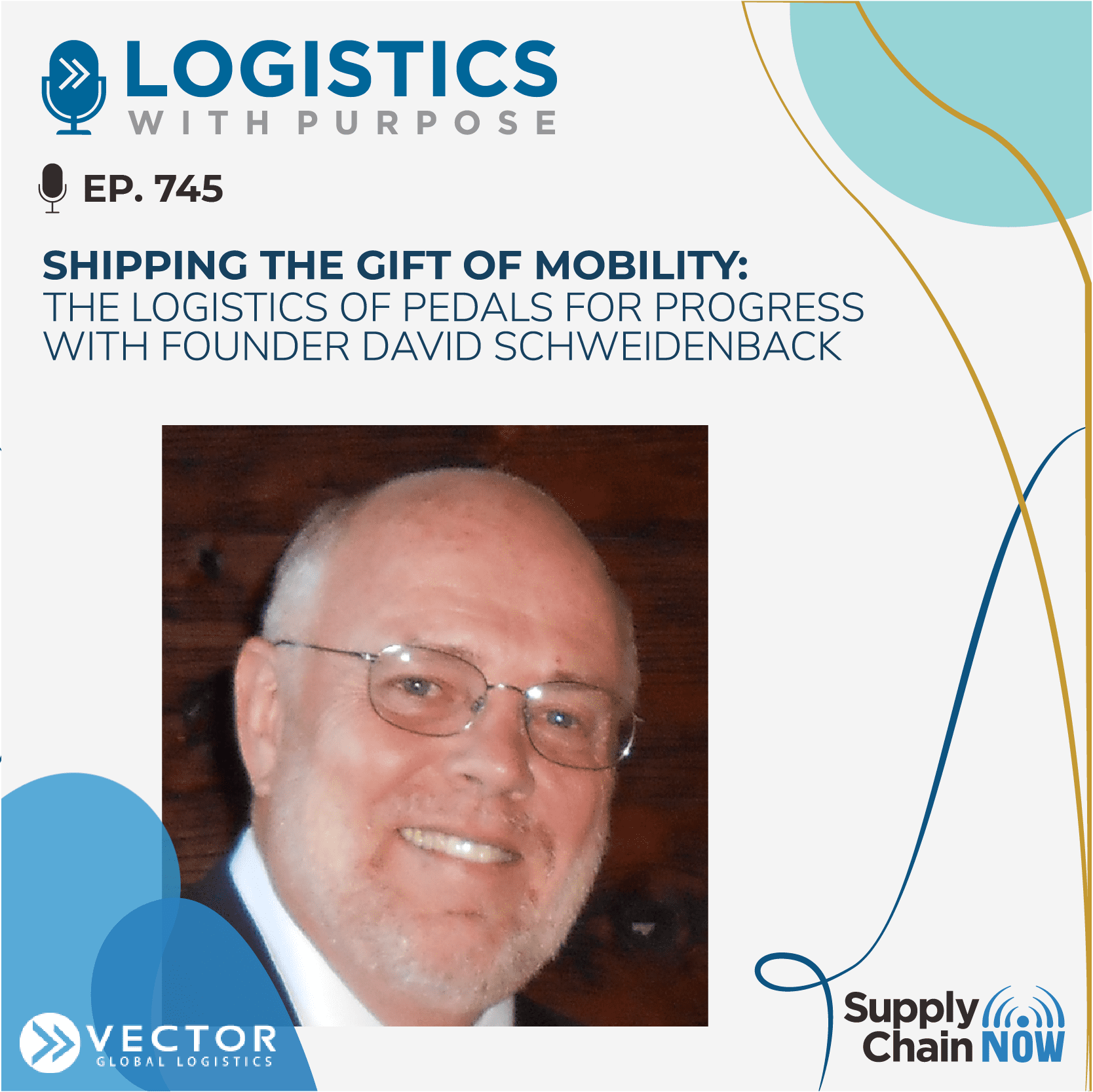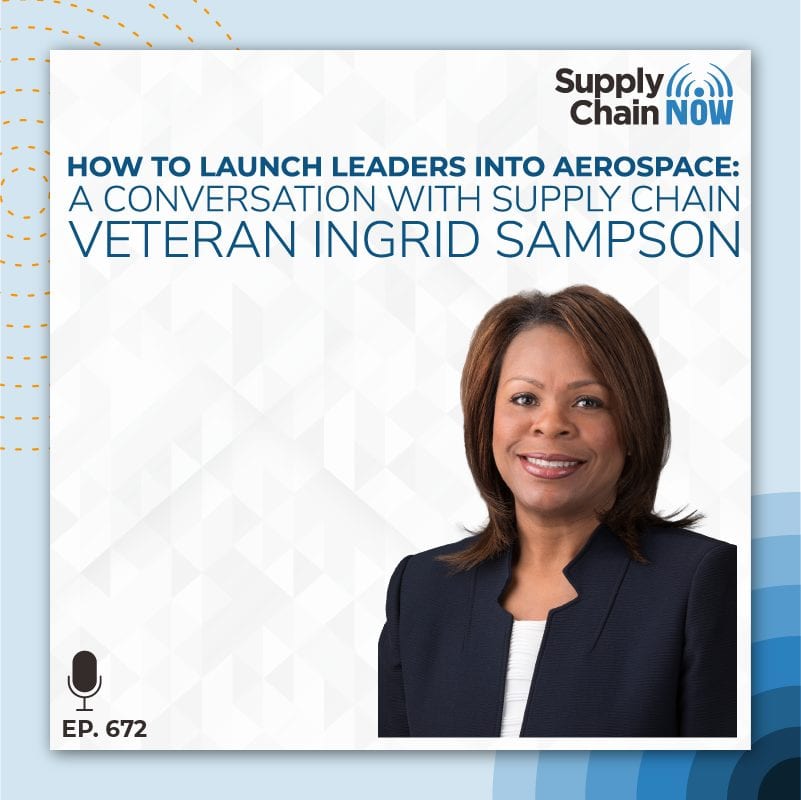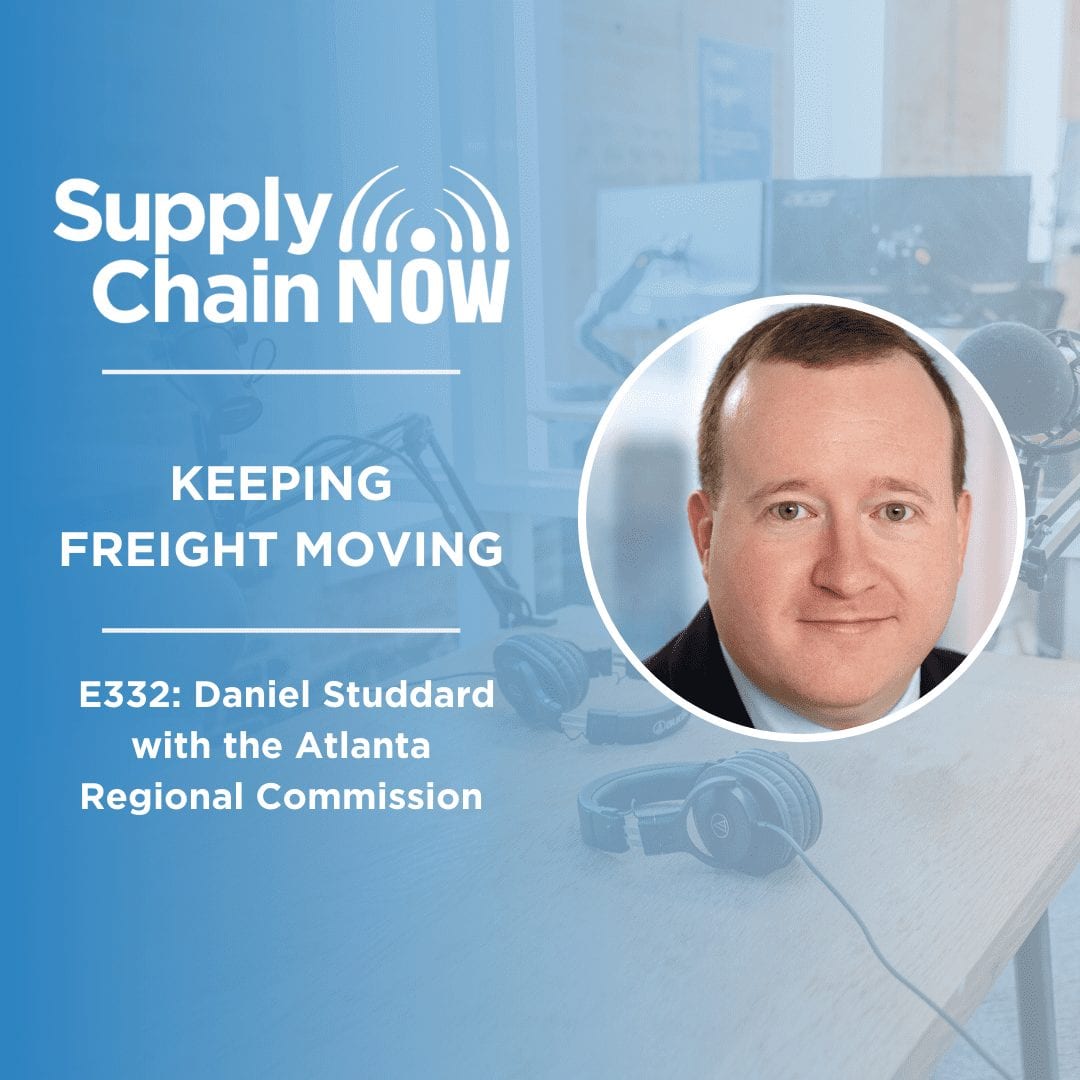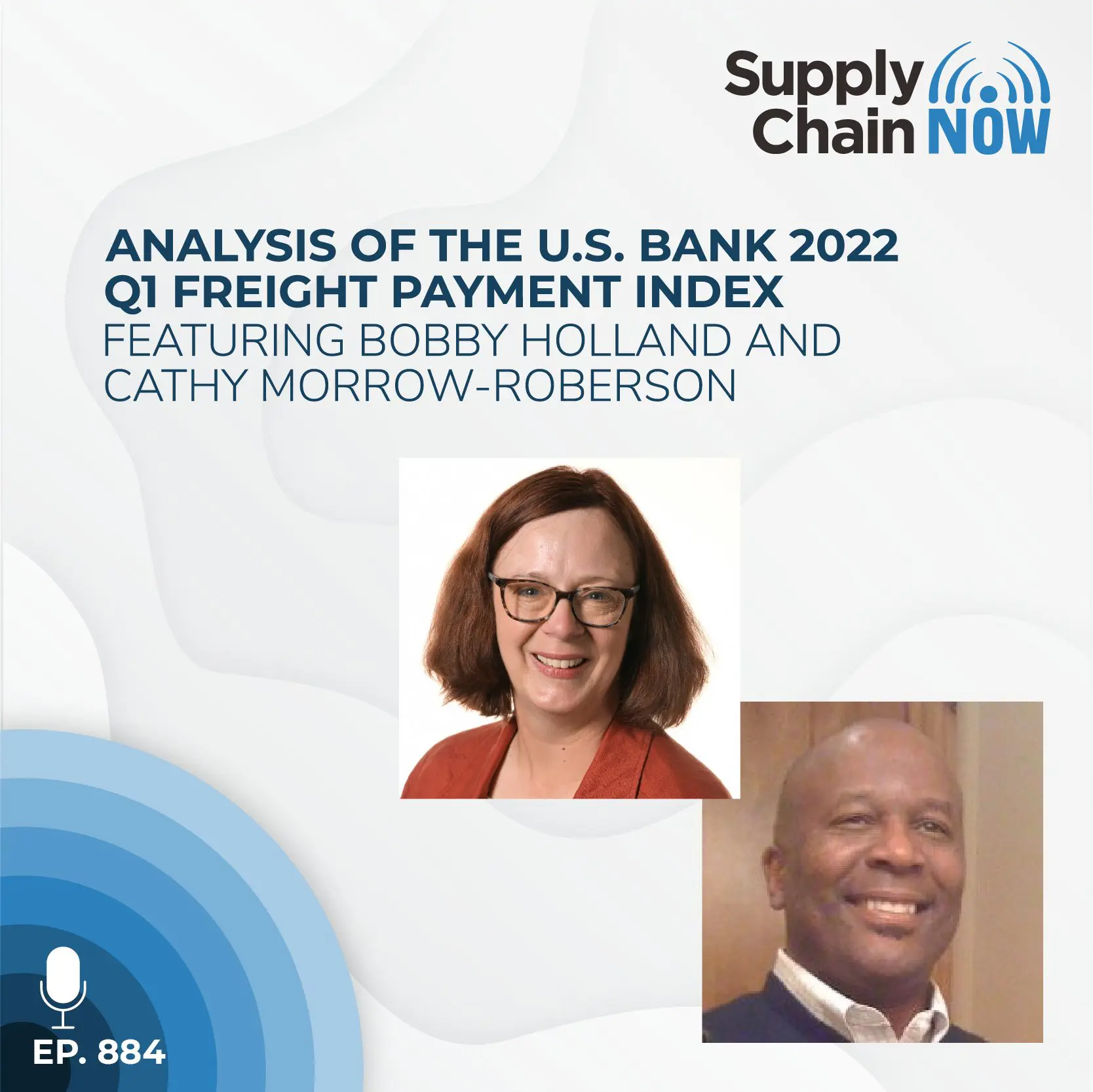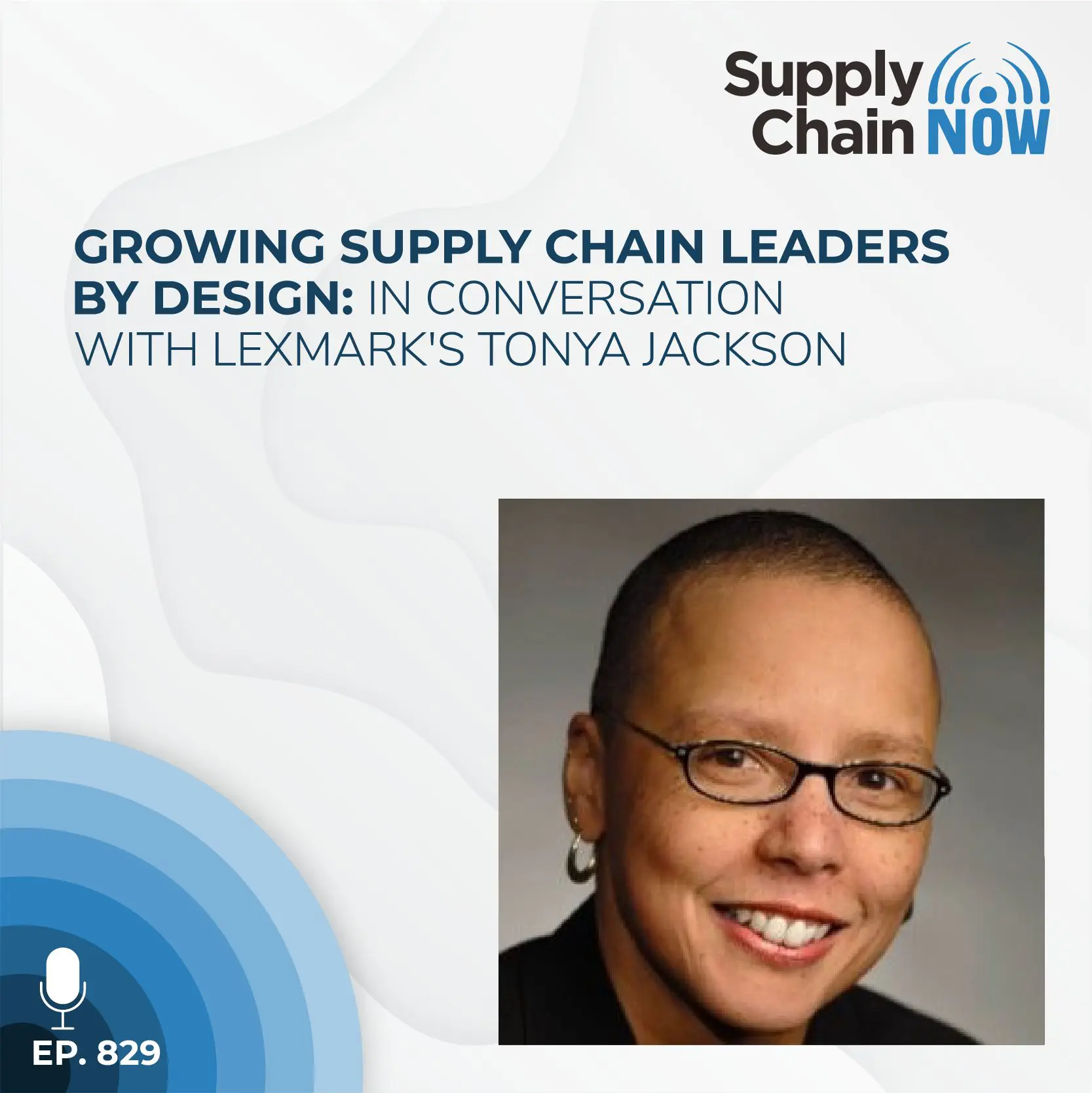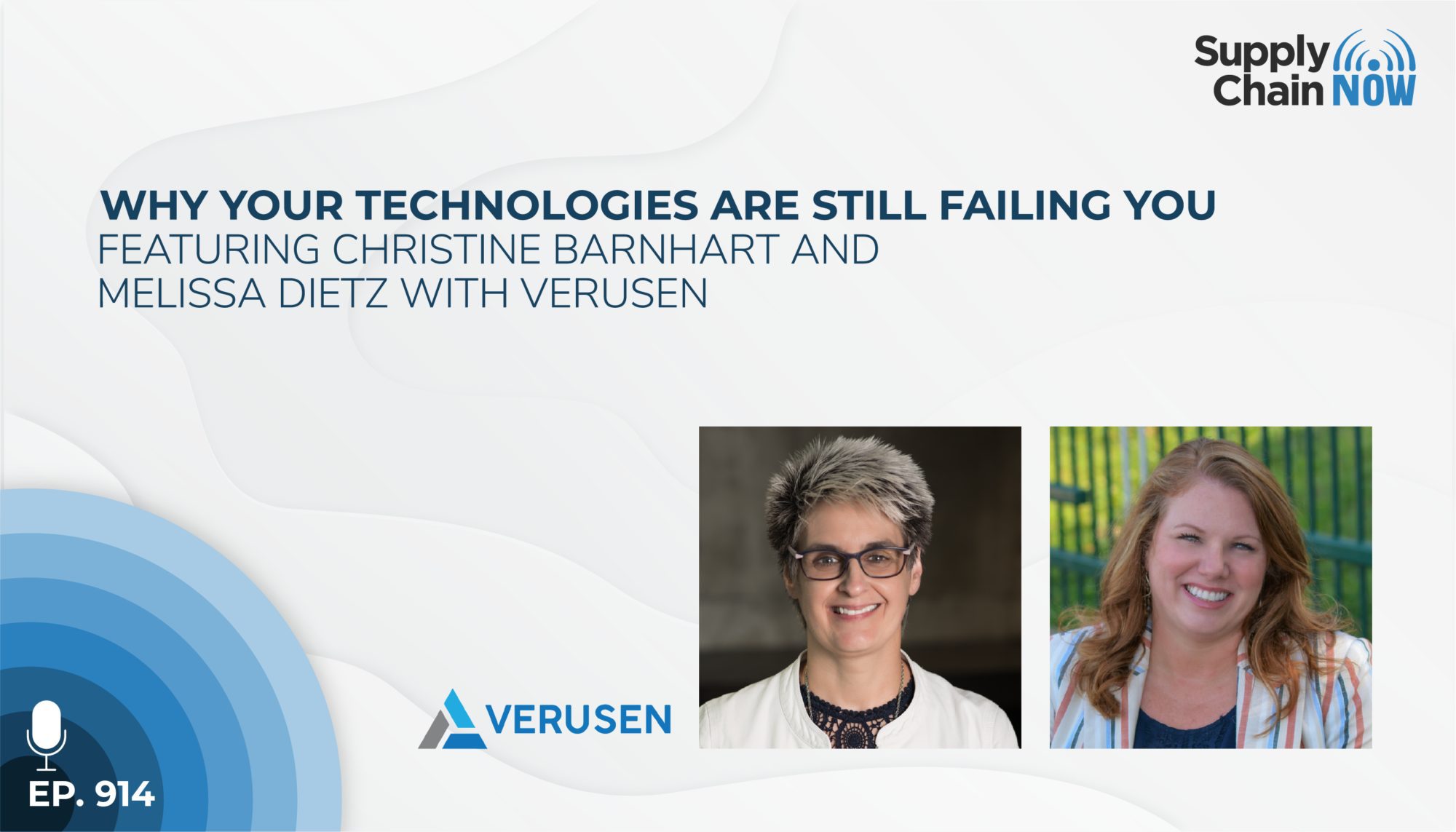
The customer experience is so important for any type of technology. If it's not intuitive and easy to use, quite frankly, we’ve found people just won't use it. So, then you spent money on a solution that sits on the shelf and people work around it.
-Melissa Dietz, Head of Customer Success at Verusen
Episode Summary
Supply chain professionals – Are you still manually manipulating and cleansing your data in outdated spreadsheets? Have you been burned by large-scale ‘digital transformation’ projects that took two or more years to implement/see any ROI?
Stop investing in traditional, outdated data cleanses and large teams of data scientists! Stop addressing your biggest challenges first. It’s time to integrate supply chain intelligence into your organization… and it is simple!
In this Supply Chain Now livestream, Christine Barnhart, VP of Product Strategy and Go-to-Market at Verusen, and Melissa Dietz, their Head of Customer Success, joined co-hosts Scott Luton and Greg White to discuss how Verusen’s supply chain intelligence platform is transforming supply and materials management:
• Through digitalization of the supply ecosystem that makes it possible to leverage data harmonization, advanced intelligence, and decision support
• By addressing MRO materials management through a digitization strategy that provides the fastest and least risky method for introducing supply chain intelligence into your organization.
• Ultimately making your supply chain organization more effective and efficient.
Episode Transcript
Intro/Outro (00:00:03):
Welcome to Supply Chain Now – The VOICE of Global Supply Chain. Supply Chain Now focuses on the best in the business for our worldwide audience, the people, the technologies, the best practices and today’s critical issues, the challenges and opportunities. Stay tuned to hear from those making global business happen right here on Supply Chain Now.
Scott Luton (00:00:32):
Hey, good morning. Scott Luton, Greg White with you here on Supply Chain Now. Welcome to today’s livestream. Greg, how you doing?
Greg White (00:00:38):
I’m doing very well, Scott. How are you doing?
Scott Luton (00:00:40):
Doing wonderful. I think we’ve got a incredible, intriguing, informative and fun conversation teed up here today. And we’re not going to waste much time. Yeah, you’re counting with me.
Greg White (00:00:49):
Yeah.
Scott Luton (00:00:51):
If you’re counting with me at home, those are four words that I rarely get right if I say I’m in order in the same sentence. So today, we nailed it. Greg, on today’s show, we’re going to be talking about how and why your technologies are still failing you. So, for so many, in global business and especially supply chain, that seems to be the ongoing case. Is that right, Greg?
Greg White (00:01:11):
Especially in supply chain. And the biggest reason is that, a lot of technology that has evolved into supply chain didn’t start as supply chain. ERPs are not supply chain solutions. They’re finance solutions with a supply chain module and sometimes they start as a very tightly defined module. Anyway, these ERP systems, first of all, they’re miles wide nowadays and an inch deep in so many areas except for finance, which is what they were built for.
Scott Luton (00:01:40):
Right.
Greg White (00:01:41):
They were built decades and decades and decades ago. Some of the most popular ones still have code snippets from the sixties, 1900s, 60s and 70s and they’re just not built for the robust data that exists out there today. They can’t store it. They can’t process it. They certainly can’t create it. And, you know, one of the other main flaws is because they were built so long ago, they were built to be customizable.
Greg White (00:02:06):
You get a little nugget of a solution and then – or a technology or a consulting firm has to build tens of millions of dollars’ worth of functionality around that. And that price is out a lot of companies and the advent of even just packaged software, but now, cloud technology gives you the power, the data processing and configurability that is equal to customizability, but it’s also very, very supportable. And that is kind of where things are going well – hell, it’s where things have been going for decades, right? But that is why so many companies are if not abandoning their technology – you talked about this today, Scott, on LinkedIn, if they’re not abandoning their technology, they’re layering these new technologies on top of the old, right, to – so that they don’t have these $40, $50, $200 million implementation bills, but they start to create that specialization in some of those areas like supply chain and specific areas of supply chain that really require it.
Scott Luton (00:03:10):
Yes. And they don’t lose all the time that comes with these implementations oftentimes. So –
Greg White (00:03:14):
People.
Scott Luton (00:03:15):
People. You name it.
Greg White (00:03:16):
Right.
Scott Luton (00:03:118):
And we’re going to get into some of this here today by folks that have been there and done that as Melissa Dietz and Christine Barnhart with Verusen joining us in just a second, right, Greg?
Greg White (00:03:27):
Little more in a second.
Scott Luton (00:03:28):
A little more in a second. All right. Well, hey, with that said, though, we want to hear from you, we want to hear from what you’re thinking as we navigate this conversation. I promise you, Christine is a repeat guest. We enjoy our conversations here. Melissa, it’d be the first time she’s joining us, but hey, her reputation precedes her. We were talking about that in the preship. So, stay tuned and get your voice and your POV ready. Now, Greg –
Greg White (00:03:49):
A supply chain practitioner who went to the tech side. That is incredibly valuable when you’re either choosing or implementing or deploying technology. That knowledge is critical.
Scott Luton (00:04:00):
Does that come with a Lightsaber if you move over to the tech side?
Greg White (00:04:04):
I bet. I know Melissa a little bit. I bet she has one.
Scott Luton (00:04:09):
We’ll dive into that topic maybe and if we try to –
Greg White (00:04:11):
Definitely not [inaudible].
Scott Luton (00:04:12):
Let’s say hello to a few folks across the global SCN fam, wherever you are. Dr. Rhonda is back with us. Of course, we know she’s in the Phoenix area, loved her content, loved her passion and her kindred spirit. So, Rhonda, hope this finds you well. Kenchen – Conchen tuned in from India via LinkedIn. Great to have you here today. If I get your name wrong, please let me know. It’s so important to get folks’ name wrong and – name, right, rather, Greg.
Greg White (00:04:40):
Both are important, Scott. One is not desirable, right? Right?
Scott Luton (00:04:44):
Well, regardless, welcome to the conversation and looking forward to your perspective here today. Get this picture that Catherine paints and Catherine, of course, big thanks to you and Amanda and Chantel and the production team, Catherine says, “Good morning from the sunny North Georgia Mountains.” I wanted to join in on that weather updates today, Greg.
Greg White (00:05:02):
Right. I expect we’ll be getting some shortly.
Scott Luton (00:05:05):
Absolutely.
Greg White (00:05:06):
If not already, right? Yeah.
Scott Luton (00:05:07):
So, it’s sunny and maybe not too humid or hot up there. What’s it like down in Hilton Head, Greg?
Greg White (00:05:13):
It is sunny and toasty in Hilton Head. I haven’t looked at the temperature, but I can tell you that it was actually pleasant to drink a cup of coffee early this morning.
Scott Luton (00:05:22):
Really? It is 137 degrees here in the Atlanta area. So –
Greg White (00:05:24):
Is it really?
Scott Luton (00:05:24):
And it’s still only 12:04. Christian is tuned in via LinkedIn from the Democratic Republic of Congo. So, welcome, Christian. Hope this finds you well. Sylvia Judy’s back with us. The supply chain super ambassador of the Charleston, South Carolina area.
Greg White (00:05:43):
Right.
Scott Luton (00:05:43):
She says, “Good afternoon, y’all. Power just came back on. Thank Lord for AC.” I love that.
Greg White (00:05:51):
I bet it’s toasty in Charleston as well.
Scott Luton (00:05:54):
Right. Just a little bit, right?
Greg White (00:05:55):
Yeah.
Scott Luton (00:05:56):
Let’s see here. Arebenda, I think I got close there. Welcome. Welcome from Bangladesh via LinkedIn. I look forward to your perspectives here today. Roet is back with us from India, from DHL in India via LinkedIn. Great to see you here, Roa. Natalie Christian’s back. Great to see you, Natalie. Letty Barrett. Letty, your ears may have been burning earlier, right, Greg?
Greg White (00:06:21):
It was all good, Letty. That’s all I can say. It was all good.
Scott Luton (00:06:24):
And finally, we know we can’t hit everybody this morning, but Dr. Rhonda has given us a weather update, sunny and expected to go up to 107 in Phoenix, Arizona. How about that, Greg?
Greg White (00:06:34):
Yeah. You have to do anything physical in Phoenix, except get in the pool before 6:00 AM. And then it’s only fit for pools at that point.
Scott Luton (00:06:44):
Oh, man.
Greg White (00:06:45):
Even the pools have sun shades in Phoenix. Just to give you an idea.
Scott Luton (00:06:48):
We got to work out a livestream application, a floating studio, as it were for swimming pools. We’ll work on that little later on. All right.
Greg White (00:06:57):
Well, I like that idea really.
Scott Luton (00:06:57):
Isn’t that a neat idea? Maybe even a few adult beverages because today is, you know, National Moonshine Day, but hey, we may touch on that a little later on. Okay. So, Greg, with no further ado, we’ve got a jam-packed conversation here today with our friends from Verusen. Let’s bring in Christine Barnhart, vice president of product strategy and go-to market. And Melissa Dietz, head of customer success, both with Verusen. Christine, how are you doing today?
Christine Barnhart (00:07:22):
I’m doing great. How about you?
Scott Luton (00:07:24):
Doing wonderful. And Melissa, welcome. Welcome.
Melissa Dietz (00:07:28):
Well, thank you. Good to be here. I do, in fact, have a lightsaber, in case you’re wondering.
Christine Barnhart (00:07:32):
Yeah. And you know, I made that transition in 2018 and nobody gave me a lightsaber. So, I feel like I’m missing out.
Scott Luton (00:07:40):
Well, you know, no one gave Darth Vader a lightsaber either. So, you already came, I think, with a utility belt and plenty of ammunition. So –
Greg White (00:07:50):
Are you saying she’s Darth Vader? I don’t – that’s not what he’s saying, Christine.
Scott Luton (00:07:54):
Oh, all in good fun. All in good fun. I could have made the same joke with Luke Skywalker or – who’s the guy that rescued –
Greg White (00:08:00):
I thought somebody did give them lightsabers?
Scott Luton (00:08:02):
Maybe so. Who knows? My son knows more about Star Wars than I do these days.
Greg White (00:08:06):
That’s good point. Yeah.
Scott Luton (00:08:07):
Well, Christine and Melissa, all kidding us aside –
Greg White (00:08:07):
[Inaudible].
Scott Luton (00:08:08):
– great to have you here. Well, Christine, you know, we love on our repeat guests. So, great to have you back. Enjoyed rubbing elbows with you down in Orlando at a conference down there. And Melissa, welcome in. I know we’ve got – we might have a cake later for you celebrating a really cool anniversary today. But Christine, let’s start with you for some – a handful of folks. We’ll call on, let’s say, it’s seven people that may have missed your last appearance. Tell us little about yourself and give us a fun fact that maybe some folks may not know about Christine Barnhart.
Christine Barnhart (00:08:40):
Sure. So, I am located in Evansville, Indiana. I affectionately call it Heavensville. So, right where Indiana, Illinois, Kentucky come together, really cut my teeth in manufacturing and engineering kind of here locally, was really lucky, spent 12 years with Whirlpool Corporation, about six with Mead Johnson Nutrition, which is where I discovered supply chain, which, you know, Mead Johnson in the news right now because they make infant formula. And then three years with Berry Global. So, before I left and I did join the dark side, if you will, in technology with Infor, so I think Melissa and I have that in common, the Koch companies, if you will, in our background. So, I love supply chain. In terms of a fun fact, we moved from the suburbs to downtown about a year ago. And now, I’m like integrated in the community. I love it. And I am participating with my tribe, Saturday as like marshals or leaders of a pride parade. And I just bought my free mom hug church wear for Saturday. So like, I’m pretty stoked about this. I’ll send pictures.
Scott Luton (00:09:57):
Please do.
Greg White (00:09:56):
Please do. Yeah.
Scott Luton (00:10:00):
Please do, Christine. That is awesome. And you know, I think when I heard you say the tech – going on the tech side, I think my brain went to where how Tony [inaudible] always talks about the reverse side as being the dark side. So, that’s why maybe Syth was involved in that comparison. I’m going to go with that.
Greg White (00:10:15):
Oh, got it.
Scott Luton (00:10:14):
But Christine, great to have you back and looking forward to getting more of your insights here today. All right. So, Melissa, let’s get to know you a little bit better, including a little fun fact about Melissa.
Melissa Dietz (00:10:28):
All right. Thank you, Scott.
Scott Luton (00:10:28):
Yeah.
Melissa Dietz (00:10:30):
So, Melissa Dietz. Professionally, I would say I spent most of my career in large companies. So, think about Exxon, GE. And then as Christina alluded to several years in Georgia Pacific and INVISTA with Koch. And I’ve managed – I think it touched just about every point in the supply chain. So, I started my career as the production process engineer then went on to lead North American Logistics and warehousing. I have done long-term planning, short-term planning, strategic sourcing and ended it all as leading in business for GP Recycling.
Scott Luton (00:11:03):
Wow.
Melissa Dietz (00:11:03):
So, I don’t know if I got everything, but I feel like I’m [inaudible], right? So –
Scott Luton (00:11:08):
No wonder you already had your lightsaber. Melissa, so give us a fun – tell us – give me a fun fact about Melissa Dietz.
Melissa Dietz (00:11:16):
You know, I’m going to go with the theme of Moonshine, which is not, you know, sadly not my jam, although I am native to the south now in Atlanta. But my favorite is Uncle Nearest Whiskey is what I’ve discovered.
Scott Luton (00:11:29):
Oh, yeah.
Melissa Dietz (00:11:28):
I absolutely adore it. Yeah.
Scott Luton (00:11:31):
Awesome. Well, hey Greg, I’ve got to give a quick plug to our friends. Tommy Frednam at Grandaddy Mimm’s, which is a growing business based right here in Georgia. And they make excellent product. We may have sampled a little bit over the weekend, but –
Greg White (00:11:47):
Well, only in the spirit of verification, Scott.
Christine Barnhart (00:11:51):
Melissa and I want to know how to get on this invite.
Scott Luton (00:11:54):
Okay.
Melissa Dietz (00:11:52):
I know, right. I feel like you need more help.
Scott Luton (00:11:55):
Hey, we’ll take –
Greg White (00:11:57):
They have 15 flavors, Christine. So, you’ve really got to commit.
Christine Barnhart (00:12:00):
I’m in. I’m committing.
Scott Luton (00:12:01):
All right. We’re taking the bus up to the North Georgia Mountains. Maybe we’ll grab Catherine too. But in the meantime, let me share a couple quick comments and then Greg, I’m going to throw it over to you. Let’s see here. Sanchit is with us from India. Great to have you, Sanchit. Looking forward to your perspective. Joseph’s tuned in via LinkedIn. Y’all let me know where you are tuned in from. We’d love to connect the dots. Roet says, “In India, the maximum temperature goes to 40 or 45.” Probably Celsius, I imagine. So, he doesn’t know how you guys live in the temperatures we were just talking about. Gene Pledger is back, the pride of North Alabama. Great to see you, Gene. And let’s see here. One more. Sylvia gave a shout out to Firefly, Moonshine, which is the distillery is right there in North Charleston. Oh, finally. Hey, y’all got some backup in Stomp Rockets. Crawford, Stomp Rockets, McCarty. Crawford, great to have you here. And Letty says on cue, “How long do you think until Crawford McCarty mentions stomp rockets?” So, love it. I love it. Okay. So Greg, we got to get to some heavier lifting. But hey, these two are doing some really cool things in supply chain. Where are we starting with Christina?
Greg White (00:13:15):
Well, I would say that the current state of supply chain would drive a lot of people to drink, probably has And I’m curious because you all have both been on the practitioner side and now the solution side. I’m curious what you’re seeing there over the last year or two, especially Melissa, last year. We’re going to let people know what that is all about. We want dates and years. We’re going to give it away slowly. So, Melissa – or Christine, why don’t you share with us kind of what you’ve seen over the last year or so?
Christine Barnhart (00:13:46):
Yeah. I mean, I think what we’re really seeing is that the disconnection and the number of disparate systems has really only grown with most companies. And I don’t think that trend is reversing and even the big ERPs, if you will, are now starting to really embrace micro applications and broader partner strategies, which on the surface kind of makes it worse because you have more things going on more systems. I think beyond that, we’ve seen that M and A has really recovered to pre pandemic levels. And again, at least in the short-term, what that generally means is more systems, more tools, more processes for people to try to manage. And these things are rarely connected. And so, I think, you know, one of the things that’s just naturally happening is that people are having to manually move data. And even if they have a robust integration strategy, the data they have is dirty and they’re kind of drowning in it, right. So, that’s where I always like to say, like, we didn’t build data lakes, we built data swamps, right? Like, we have a lot of data, but we don’t really know what to do with it. And so, that hasn’t – man, that hasn’t changed in the last three years, which I think is, you know, kind of depressing actually.
Greg White (00:15:09):
Well – and as you said, it’s got – actually gotten worse. Every time one company rolls another into their ecosystem, like you say, they wind up with an additional ERP or supply chain solution or data methodology, they wind up with what could be the very same items, but identified unidentifiably to – right. So, that it’s hard to determine that, hey, we already have that stuff. We don’t need more of it. So, there are all kinds of those things and you’re right. M and A is recovering. And especially considering valuations in the market today of companies, we can expect that to accelerate, which will only exacerbate the problem, right.
Christine Barnhart (00:15:50):
Yeah.
Scott Luton (00:15:51):
Melissa, tell us what you’re seeing.
Melissa Dietz (00:15:53):
Yeah. I’m going to take it from – I think Christina outlined it really well from the macro level. I think it may be down to the micro level at the sites. I think the challenge you have, not only do you have systems that don’t talk to one another, but when you go under the covers, the data is not always the same or similar, right. Even if I have the same ERP, it’ll be – it can be very different where sites will use columns or fields for something completely different than what they’re meant for, which means when you try to aggregate it, you get a really incomplete picture and inaccurate picture, right. And it’s really hard to get that overall view of what – well, how do I wrap my hands around what I’m trying to look at because my data itself isn’t good.
Greg White (00:16:33):
Yeah. And it becomes an indiscernible mess, right? I mean, they call it a bucket, you call it a pale, right. And you mentioned the data doesn’t talk to one another. A lot of times those sites, because they come from different companies, they don’t talk to one another. They don’t really have the opportunity to collaborate, to bring this solution – you know, bring any kind of solutions to bear. So, I’m curious what you’re seeing, Melissa, with companies that are actually tackling this successfully, what are you – I mean, what kind of solutions are they coming up with?
Melissa Dietz (00:17:07):
Well, it’s interesting, Scott, because I’m sure we’ve all lived that ability where, you know, you’ve tried to aggregate something and you go and say, “Hey, I have this really cool insight.” And somebody goes, “Well, no, not really because I think it’s not quite right.” But what ends up happening or what I’ve seen a lot is, people will go to good old Excel, right. So, 9 times out of 10, how are you tackling your challenge? Because I have systems in place, but they either don’t work well or they’re really cumbersome and hard to navigate. So, I go to my best friend Excel. And I would say, largely, that’s what people are doing. Another thing I’ve seen is folks trying to do their own AI or create their own programs, which, you know, had a couple in GP where we did that. And they have challenges as well I think when you try to do that from scratch.
Scott Luton (00:17:54):
A really quick break really quick.
Greg White (00:17:54):
Yeah.
Scott Luton (00:17:56):
Is it just me or should be there – should there be like a Scooby-Doo and the gang meme where they catch the super villain at the end, they take their mask off and it’s an Excel spreadsheet.
Greg White (00:18:07):
No kidding.
Scott Luton (00:18:08):
So, let’s get to work on that. But Greg, as you were going to say.
Greg White (00:18:11):
Yeah. Usually hidden in a dark corner or jumping out at you from a dark corner, right.
Scott Luton (00:18:16):
Right.
Greg White (00:18:17):
I mean, I don’t know if anyone’s ever been or ever encountered one of those supply chain or one of those Excel data wizards, but it’s frightening stuff. Christine, tell us a little bit about what you’re seeing from the challenges and possibly even how they’re tackling it.
Christine Barnhart (00:18:36):
Yeah. I mean, I think the – one of the other key things we’re really seeing is that, you know, there’s just a shortage of, like, the right people. And I know we’ve had some headlines recently where some of like startups and some of the bigger, you know, companies have done some right sizing, I’m going to say in terms of layoffs, but overall, there’s still a shortage of people, especially in supply chain. And so – and quite frankly, a lot of the seasoned supply chain people, the people that know, right, they can take a spreadsheet, they can actually get an insight out of it. They’re retiring at a record pace. And so, I think, you know, what we’re now starting to see is companies kind of scrambling a bit and really like trying to figure out, okay, how do I address this, right? Like, these people, they’re not coming back.
Christine Barnhart (00:19:22):
And the shortage of people is only going to get worse as we move forward. I think the upside to that is that, you know, when I was coming up in manufacturing and supply chain and you said AI or automation, it was like, “Oh, robots are going to replace us.” And I think, you know, everybody was kind of scared of the technology. And I think now we are seeing a bit of a shift in mindset where people are like, “Yeah, make my job easier, help me do more with less people.” And so, I think from my standpoint, that’s like actually a really exciting trend.
Scott Luton (00:20:01):
So, we’re going to talk more about – sorry. I didn’t mean to cut you off, Melissa. I’m going to share a couple quick comments. But we’re going to talk more about maybe some of the suggestions you’ll have for moving forward. But I want to make sure we get to the root cause of why so much of this stuff is not working and it’s failing these organizations. But before I throw that back, I want to share a couple quick comments. Jesse says, “Hey, y’all should plan the Dawsonville Mountain Moonshine Festival in October.” Jesse, it’s the done deal. We’re going to tee up the Supply Chain Now van. We’re going to add benches in there and have a whole game, just like Scooby Do gang. Let’s see here, Joseph –
Greg White (00:20:36):
First, we got to drop it and put new wheels on it, Scott, but, yeah.
Scott Luton (00:20:39):
Right. Joseph’s ready to compare notes with you there, Greg and Hilton Head. So, we’ll see if we can’t make that happen.
Greg White (00:20:45):
Yeah. No doubt.
Scott Luton (00:20:46):
Rhonda’s talking about we adapt, we adapt with time coping skills and maybe adult beverages when it comes to dealing with these, all the heat. Now, Shamone, goes back to something both Christine and Melissa, maybe Greg, all three of y’all are talking to. Shamone says, “Cannot agree more. We’re struggling to get started on a strategic network project with a client which is growing rapidly and are constantly acquiring newer partners, our challenges, the varied system and formats and aggregation, as Melissa mentioned a moment ago.” Let’s see here. A couple of comments. TSquared says, “Looks like master data management and siloization,” try to say that five times fast, “are the endemic issues here. And of course, disparate systems not being properly integrated.” And then one final note here, well, TSquared says, “Shamone you nailed it.” Jesse also says, “Change management from Excel is amazing in its longevity.” Excellent point there.
Greg White (00:21:46):
I hope he means out of Excel. I’m sure he does, right?
Scott Luton (00:21:49):
Yes.
Christine Barnhart (00:21:49):
Excel is the most widely used planning and analysis tool in the world.
Scott Luton (00:21:54):
Yes.
Christine Barnhart (00:21:55):
It’s crazy.
Scott Luton (00:21:56):
You can make –
Greg White (00:21:56):
[Inaudible]
Scott Luton (00:21:59):
There’s macros that make sandwiches, that tie shoes, that answer the doorbell for you these days, all powered by Excel. But let’s – if we can, both Christine and Melissa, y’all talking a moment ago about, you know, why some of these things are failing. We’ll give y’all one final word before we get into some of y’all’s suggestions. So, let’s hear – let’s go to you first, Christine, tell us why are these things not working what you’re seeing being done?
Christine Barnhart (00:22:23):
You know, I’m going to be honest. I think that just part of the problem is just the approach is wrong. We’re trying to solve these problems in really traditional ways, which are like these projects and projects have a beginning and they have an end. And to be honest, what we need are like living, breathing ecosystems and tools that learn and grow and adapt. Right? I think, you know, that what we, one of the things we saw in like the 22 predictions from Gartner was they said that like 92% of supply chain executives recognized how important it was to adapt these emerging technologies and these new business models but they were still relying on old technology and old techniques like spreadsheets and kind of these basic ERPs. And it just does not yield the results you need.
Scott Luton (00:23:21):
Excellent point, Christine. And we’re maybe taking a step further. It also could be contributing to the heightened turnover we’re seeing in supply chains many organizations have reported on and, you know, you don’t want to burn your people out. You want to level on ’em and give ’em what they need, empower.
Christine Barnhart (00:23:35):
Exactly. Exactly.
Scott Luton (00:23:36):
Melissa, what else would you add to why this stuff’s not working?
Melissa Dietz (00:23:38):
Yeah. I have a little bit nerdier answer if you will. But, you know, in my mind, what we’re trying to do is we’re trying to take linear solutions to a non-linear problem. Right? So, when I think about Excel, what does Excel do really well? It solves a heck out of linear problems. And, you know, I was thinking of one where we had an Excel spreadsheet, long story short, it was to do asset planning at one of our sites. And we had to – we had maxed out the capability of solver. We actually had to run it twice. And it would always – because we maxed it out, it would always break kind of halfway through. So ultimately it took like three days to run this guy every month to do our asset planning. It just, it’s – we’re trying to make, you know, equipment or tools do what would they’re really not designed to do anymore. Right?
Melissa Dietz (00:24:22):
And then I think the other thing that we touched on earlier is that change management piece. The native knowledge of people’s heads as it leaves, there’s no – I mean, Excel certainly does what it does, but there’s no change management piece with that. And it’s really complicated. And I think that’s another way that we’re failing. And the same actually with the large systems, as Greg alluded to before, we’re trying to make them do what they’re not designed to do and it ends up being expensive, it takes a lot of time, it takes a lot of manpower and it ends up just frustrating people at the end of the day.
Scott Luton (00:24:58):
Excellent point. And I got to bring in this. Sylvia says, “ERP, endless redundancies platform.” That’s a great acronym there. Jesse says, “Excellent point, Melissa, on that linear versus non-linear.” And then Natalie, “Living ecosystems. Love it. Supply chain tech needs to be adaptive for whatever situation is in front of us.” Greg, your quick response. And then we’re going to continue picking Christine and Melissa’s minds here.
Greg White (00:25:20):
Yeah. To Christine’s point, you’re not going to cease companies continuing to evolve, so the knowledge in your technology has to continue to evolve, and to Melissa’s point, it can’t in Excel. And it can’t in a lot of these old technologies, right? I mean, one of the biggest issues with Excel is lack of data accountability, manual errors in calculations and all of those sorts of things. And then, inconsistency or, frankly, in a lot of cases, it’s a relative amateur put in charge of a scientific project. And that creates a lot of dangers and misnomers. We replaced a system that when we started, my technology company, we replaced a system that took 70 people and 16 weeks down to just a handful of people in a day to do the same work and produce better accountable, adjustable results. So, I mean, the power is definitely there in technology.
Scott Luton (00:26:24):
But that shortens all the time. You know, you go from having probably good food and great wine, I don’t know, 37 nights to just one, Greg. Come on, man.
Greg White (00:26:35):
It saves a lot of shoe soles though, Scott. We had this thing we called Sneakernet where people would have to run back and forth to one another’s pods to –
Scott Luton (00:26:42):
Oh, love it.
Greg White (00:26:44):
To compare data.
Scott Luton (00:26:44):
Oh, the stories, Greg. I can’t wait. You got to write a book. Okay. So, let’s shift gears a bit. We’ve kind of, waddled, wadded, waddled in the mud a bit. I’m just going to skip right over that. We’re talking about the data swamp.
Christine Barnhart (00:27:02):
Wadded maybe? Wadded –
Scott Luton (00:27:02):
Yeah. I don’t know.
Melissa Dietz (00:27:04):
I like waddling through mud.
Scott Luton (00:27:06):
Yeah. Melissa, thank you for rescuing me. We’ve talked about the data swamp. We’ve talked about maybe about the tie fighters that are buried in the data swamp. Let’s shift gears over to what some of the things that companies and leaders should be doing. And, Melissa, what would be some of your recommendations? Let’s start with you.
Melissa Dietz (00:27:24):
Yeah. For me, I think as we – as you think about what you want to do going forward, it’s looking for applications that really target what you’re trying to solve. Right? So, again, the kind of counter to the one-size-fits-all, let’s look for an application that’s really targeted to your pain point and that it’s out of the box, right? So, in my head, what I’m thinking is, hey, look, if I have something that does what I want it to do, I can get it up and running quickly, that’s going to add more value and much more quickly than if I have to go and customize something and build it from scratch and hire consultants and do everything you need to do.
Scott Luton (00:28:02):
Excellent point there, Melissa. Christine, what else would you add when it comes to recommendations?
Christine Barnhart (00:28:08):
Yeah. I’m going to actually give what Melissa just described a term and we are going to call that purpose built. You really need to look for purpose-built technology, purpose-built solutions. And that’s where I think the phrase kind of micro apps comes in, right? So, it’s looking for the micro app where the company, your partner, really understands the challenge, the business problem you’re trying to solve. And then, those partners bring with them kind of a broad range of capabilities. You don’t want a one-trick pony, right? You want somebody that can do machine learning and they have multiple types of modeling and maybe some deep learning and natural language processing, and all of these kinds of modern tools that then allow a company, a partner, to actually leverage those in a way that it makes it easy and very quick for you to solve the problem that you’re trying to solve. And so, I think it’s, you know, not being a mile wide and an inch deep, but really focused in the space, really deep knowledge is really what allows us, I think, to move forward in a much more positive way in terms of solving supply chain problems.
Scott Luton (00:29:27):
Excellent point. All right. So, Greg, I’m going to toss it over to you in just a second. I got to share a couple of quick comments here. Jose, great to have you here. You touched on something we’re going to touch on in just a second. Jose is urgently doing his own AI on Excel, of course. He says, “And you’re all hitting on the right points, everyone.” Excellent point.
Greg White (00:29:43):
Actual intelligence, right? That’s not artificial.
Scott Luton (00:29:48):
Right.
Greg White (00:29:48):
Sometimes you forget that. Oh, it’s hard to impart that into Excel, right?
Scott Luton (00:29:52):
It really is. Although I’ve worked with some folks that were bound in term to do just that. All right. So, we’re really wallowing in the Excel. That was where I started [inaudible].
Greg White (00:30:02):
There it is.
Scott Luton (00:30:03):
Natalie says, “Good points. Those creating the new tech need to be talking with the current users more. I’m not an expert in AI, but I’m highly skilled in Excel. It’s a path of least resistance rather than learning something new.” That’s a great point. That’s a risk to somebody’s – yeah, go ahead.
Christine Barnhart (00:30:19):
I do think, Scott, though that’s a reason like when you look at a company like Verusen, you have two people like Melissa and I, right, on the leadership team that we’ve done the jobs. Like, we’ve lived it. We’ve had the late nights and the phone calls and the post-it notes and the emails and –
Greg White (00:30:36):
And wadding through Excel.
Christine Barnhart (00:30:37):
And we’ve wadded or waddled as it were.
Melissa Dietz (00:30:40):
I probably more waddled through it, but, yeah.
Scott Luton (00:30:43):
Yes.
Melissa Dietz (00:30:40):
I mean, we’ve definitely spent plenty of time there. Yeah.
Scott Luton (00:30:47):
All right. So, Greg?
Greg White (00:30:49):
Yeah. I just think – to that last point, I think it’s important to understand that yes, the knowledge that that people have of how they, of why they do things, not how they do things in Excel or how or why they do things in their current process. That’s critical. And I think where a lot of companies, when they engage technology providers or even other solution providers like consultants, they say, this is how we do it. And that doesn’t matter. It’s easy to wallow in how you do it. But the point is you want to get to why you do it. What’s the goal that we’re trying to accomplish? And if you can impart someone with the skills that Christine and Melissa have with the here’s we want to get to, let them figure out the how you get there. Some of it will align with the way you do things today. Some of it will diverge from the way you use things – you do things today. And some of it will impart some of the knowledge and the methodologies that you use to do things today.
Greg White (00:31:50):
And that’s a critical thing. So many companies, the reason that their technology fails them in so many cases is their own fault by buying a hundred million dollars’ worth of technology and trying to make do the process the way they’ve done it manually. And with – historical to Melissa’s point, historical considerations, this is the data we had when we bought this system. Now we have new data, we try to like jam this new data into an old process, and you really need to evolve the process with the presence of new data and new processes, and frankly new expectations in the marketplace. There’s no place for us to hide in supply chain anymore. So, we have to take greater responsibility and recognize the sort of higher purpose [inaudible].
Scott Luton (00:32:34):
Yes. I love that word purpose. I love that you mentioned it. I love that Christine’s mentioned. I think Melissa fitted in ‘cause that’s what it’s all about, and that’s what top talent wanting to be part of too. Right? A purpose-driven operation, a purpose-driven organization. Okay. So, speaking of, Greg, I want to shift gears over and we’re going to be talking about Verusen a little bit more to kind of maybe level set with folks. Where are we going next, Greg?
Greg White (00:32:58):
Well, okay, so first a disclaimer. I’m an investor and advisor to Verusen, but that was after I discovered miracles that this solution can provide. So, with that all said, I want everyone to understand these answers, these questions, I know the answers to and the answers are not for me. They’re for you out there in TV land.
Scott Luton (00:33:20):
Out there in TV land. I love it.
Melissa Dietz (00:33:22):
He’s going to correct us if Melissa and I –
Christine Barnhart (00:33:24):
That’s right.
Greg White (00:33:25):
Oh, I don’t if that [inaudible].
Melissa Dietz (00:33:26):
The pressure, the pressure. My goodness, Greg.
Greg White (00:33:29):
I don’t know what that [inaudible]. Advisor knows this much. You guys know it all the way down to the ground level. So, you are talking about materials, right, and the complexity in managing materials specific to MRO and indirect materials however people classify those. But you’re also, I hear you’re also investing in solutions for direct materials too. So what are the – what are the capabilities that are really required to tackle those various areas of the business? Sorry, let’s start with Melissa first. We’ll get the geeky answer first, Melissa.
Melissa Dietz (00:34:03):
All right. Yeah. Well, as a customer, I got to start with the UI UX, right? So, I think the customer experience is so important on any type of technology. If it’s not intuitive and easy to use, quite frankly, we found people just won’t use it. Right?
Greg White (00:34:17):
Yeah.
Melissa Dietz (00:34:17):
So then, you spent money on a solution that sits on the shelf and people work around it. So that to me is probably the top thing. Hey, it’s just got to be intuitive, friendly to use and people have to, well, I’m going to say enjoy, but, you know, like being, like working with a platform. The second thing that I think is really important with the pace of things that are changing, you have to have the ability to pull data in quickly, right? So that the dates of having quarterly updates in your data are gone. Monthly is probably the lowest bar that you could possibly live with and we got to shoot for faster. So that leads you more to, you know, cloud solutions where I can update data quickly. It can change with my business. I can get really fresh and good technical insights. I think that’s critical. And obviously, the security you get with the cloud is I’m going to add is key in that as well. It can be a whole nother show. Right? But –
Greg White (00:35:15):
Yeah. And I think that to that point, I don’t think people have necessarily understood cloud. I think they understand it a lot better than they did when we introduced it at our company in 2011. And they probably understand it better than I did then also, the power, the sheer power that that provides, right? Imagine instead of a server sitting in a dark office, in your office, you know, you have thousands, hundreds of thousands of computers that can process all this complex data using the techniques, ML, and AI that we’ve talked about. And until now, and that’s why a lot of today’s solutions haven’t been able to attack the problem is because of that, until now they operated on premise with as big of a whatever type mainframe or 400 people have mentioned here that you could afford. And that really limited your ability to do things right.
Melissa Dietz (00:36:10):
That’s right.
Greg White (00:36:11):
That’s great. Melissa, thank you. Christine, what do you think?
Christine Barnhart (00:36:14):
Yeah. I mean, I think there’s a couple of things fundamentally that you have to look for and it’s definitely things that we’ve kind of built into our application. And I think first and foremost, you got to give, you got to have visibility, right? Like just bring the data together, make it visible, break down those silos. And then, once you’ve made it visible, then I do think it’s applying those advanced technologies that we’ve talked about, so artificial intelligence. Maybe, you know, a lot of people start with rules-based modeling. We’ve actually advanced to probabilistic modeling, which is much more agile, flexible, provides better results. It’s optimization. It’s delivering insights contextually so that gets into why do you want a purpose-built solution, why do you want to make sure that that partner really understands your space, because they can’t provide context to the data if they don’t. Right?
Christine Barnhart (00:37:07):
I think the other, you know, kind of recommendation or capability that we think is really important is working with a partner that’s already made that data science investment. If you try to hire data scientists to do this, right, you’re looking, A, considerable amount of expense that are in high demand. Then, you have to train somebody in what it is you do, what’s important to your business. And then you’re still looking at months and months and months of collecting data, training models, trying to get, you know, kind of to the best, to the best place you can be. And then, you know, I think finally it’s – for us, yes, you want it to be configurable. But if it has to be customized, then we probably were too broad and we weren’t doing it right. Right? We should be able to deliver insights, have built-in reporting, built-in analytics, built-in dashboards. And that’s what really gives you that very, very fast time to value. We’re not talking a year, two years, right? We’re talking weeks and months.
Scott Luton (00:38:16):
Well said. Hey, Greg, before we move forward –
Greg White (00:38:18):
Yes, Scott.
Scott Luton (00:38:18):
With this conversation, we’ve had a flurry of comments and a lot of questions we’re not going to get to. But, hey, we’re going to try to, you know, host this conversation here today, maybe. I bet Christine Melissa love talking shop over a cup of coffee or a frosty beverage. Melissa, I can’t remember the name of the whiskey that you prefer. My apologies. But, hey –
Greg White (00:38:37):
Uncle Nearest.
Scott Luton (00:38:38):
Uncle Nearest. Thank you very much. So –
Greg White (00:38:41):
A lot of people prefer it. So, she’s going to get a lot of interest. I’m just saying.
Christine Barnhart (00:38:44):
A lot of good company.
Scott Luton (00:38:46):
The founder of National Supply Chain Day, Mary Kate Love, just joining in. And she says that this is a dream team on the livestream. Hey, how about that?
Greg White (00:38:55):
How about being called that by the founder of National Supply Chain Day, right?
Scott Luton (00:38:58):
That is right. Peter Bolle, all night and all day. Hey, Peter, I hope this finds you well. A livestream without you isn’t the same. Great to see you. Let’s see here. I want to also want to get to Michael Jones. Great to see, Michael. “The more you automate on bad processes, the faster you get in trouble.” How true.
Greg White (00:39:18):
To start swirling the drain faster and faster. Exactly.
Melissa Dietz (00:39:21):
Sounds like – [Inaudible] experience on that one.
Scott Luton (00:39:21):
Right, Melissa. And, Michael, we’ll let you do tell. TSquared says, “Definitely means UAT will be prevalent with new systems introduction.” And then finally from Jesse, “The current supply chain has been so reactive due to the market impacts that having updates even at a monthly basis puts a company at a disadvantage.”
Greg White (00:39:44):
True.
Scott Luton (00:39:44):
Lots of head nods there.
Christine Barnhart (00:39:46):
A hundred percent.
Scott Luton (00:39:47):
Okay. So, Greg, man, a lovely crowd here today, where are we going next with Christina and Melissa?
Greg White (00:39:54):
So, I can almost hear the discussion behind the scenes as people watch this. And they’re like, okay, well, you know, we built Excel to tackle this problem. Why couldn’t we build our own system to tackle this problem, right? The big trade off that I think functional and very focused technology solutions have always faced is the buy versus the build issues. So, I think that sounds great in practice. You both have addressed points that I think you could laser point at why you would or wouldn’t do that, but why can’t you, or maybe why shouldn’t you build a solution internally for your company? Christine, I’m going to just light the candle and let you take it from there.
Christine Barnhart (00:40:42):
Yeah. I mean, we talked about some of it already, which is just, if you are trying to build it internally, it’s super costly, very time consuming. And unfortunately, what we see is a lot of people will take a project approach. And like I said, projects have a beginning and an end. And then, so you kind of clean some stuff up, you’re moving in a more positive direction, but then everybody pulls off and things start to erode again. Right? So, I think that’s one thing. I definitely do not think you can take a project approach to solving these supply and material complexity issues. So, let’s say you try to actually build a platform similar to what we have, I mean, it’s a huge investment. And I think the issue with that is also is this, like, is this really where you want to make that investment? Right?
Christine Barnhart (00:41:31):
Like, we have a purpose-built solution. It solves this problem. If I was running a company and I was going to make this investment, I would put it into areas that really require a better, like an understanding of the intricacies of my business. And, generally that means the customer’s side, not the supply side. Right? You know, supply side is complicated ‘cause we don’t have the right tools. But in terms of the motion of, you know, understanding what you need and how you buy, we understand that. Consumer behavior is really, I think, a better place to make those kinds of big investments and then partnering with somebody like Verusen to solve this kind of purpose, functional area is a way to get that bang for your buck without the time commitment, the cost commitment, so on and so forth.
Greg White (00:42:25):
Two things are always true about internal builds. One, you get one company’s perspective and usually it’s focused on a problem that they want solved and it’s usually, as we talked about earlier, from the perspective of how that company has always solved it, just to Michael’s point taking that bad process and doing it faster. And secondarily, there is never a phase two. Right? Like you said, Christine, they build the core solution. They plan all this stuff for phase two. The first time I heard somebody say that when they were building an internal solution, they said, well, we’ll push this off to phase two. Somebody had the boldness to say in a meeting with all the executives, there is never a phase two. phase two will never happen.
Scott Luton (00:43:14):
Haven’t you seen this movie before? There are no second chapters.
Greg White (00:43:19):
Right, right. So, Melissa, I know you get to see this firsthand a lot both, right, from all the –
Melissa Dietz (00:43:19):
Yeah.
Greg White (00:43:26):
I know I can feel your pain as you’re discussing some of this. But now you’re solving those pains for people. So, give us an idea of kind of what you’re seeing from that standpoint. Why wouldn’t you just build it?
Melissa Dietz (00:43:37):
Yeah. That’s a great question actually. You know, I’m going to give, I’m going to go back to the nerdy side of the force here again and go it’s the data, right? It takes so much data to train the AI in a really meaningful way to give you those really cool insights. It’s impossible to get that at a corporate level, right? You have to be at an industry level. And the beauty of Verusen is not only do we give you your industry but we give you lots of under industry data as well. So now you have that network effect, is what we call it, right, of having the aggregated knowledge across all these different places that roll up that are under the covers, if you will, that are leading to the insights and your data. And I think that’s really the magic sauce. And not to mention, there are plenty of phase twos in our house, right? It’s constantly evolving platforms so it’s only going to get better. Yeah.
Scott Luton (00:44:28):
So, I’m going to stick with you here, Melissa, in just second. I want to add in a couple comments here. Rhonda says, “Hey, I feel like I need to ask my team about the continued process of developing technology platforms. We have several proprietary systems in place that are still working out the glitches.” Don’t we all, Dr. Rhonda? Don’t we all?
Greg White (00:44:45):
And those glitches keep you from ever really advancing the technology, right?
Scott Luton (00:44:50):
Yes. Well said. I love when Greg says I got two things. You better get your popcorn and diet Coke, folks, ‘cause it’s going to be good. Crawford says, “Phase two is 12 years later when they buy the tool they should have bought in phase one.”
Greg White (00:45:05):
Exactly.
Scott Luton (00:45:05):
Crawford, on the money, on the money. I wish I had a stop rocket icon I could drop into comments here. Okay. So, Melissa, nicknames are too fun and so much of a dad joke, but, hey, it’s true. It’s a lot of fun. All right. So, Melissa, let’s get, if you would, some practical examples of where Verusen – you’ve already – both of y’all have kind of alluded to it a couple times, mentioned a few things. But what else would you like to add when it comes of how Verusen’s helping customers out there?
Melissa Dietz (00:45:33):
Yeah. Thanks. If I don’t have an answer to this as head of customer, I probably should just leave the show now. Right? So –
Scott Luton (00:45:40):
Exit stage, right?
Melissa Dietz (00:45:41):
That’s right. You know, I’m going to highlight three areas I think I see that our customers gain a lot of value from the tool. The first is going back to the very beginning of the show when we talked about aggregating all that disparate data, having all that data together in one place where you can see it and wrap your arms around, hey, this is what I have is incredibly valuable, especially when you have a team that’s in charge of optimizing inventory, right? It sounds simple, but it’s actually not. And I’ve worked in several companies where I’m trying to pull data out of – I can think of at least five different systems to try to get myself that aggregate view and I would’ve been very grateful for a place where I could just click on a dashboard and see it all right there.
Melissa Dietz (00:46:24):
And then leading into that is having, I’m going to call it all the relevant information on one pane of glass. So, my life that I lived in both as an engineer and when I was in the planning teams were there’s that, I’m going to call it, that clash of incentives, right, or that natural friction. On that corporate level, I want to optimize and reduce my working capital. At the site level, I just want to keep my assets running. And I want to keep a million spare parts as long as my assets run. Right? And then, how do you get those two people aligned on the same page can be really difficult. And what we’ve found is by having, I’m going to say, trusted information, everything you need to make a decision and by everything I’m talking about, hey, what’s on hand, here are your stock levels, here’s what you’ve issued, here are your lead times, where everyone can go in and look at it and understand the same thing that leads to really quicker, faster, better decisions that are aligned across the company and that allows you to implement those recommendations at a much faster pace. An example author out there is we identified a hundred million dollars of optimization opportunities for one of our larger global companies and they were able to run through those in four months.
Scott Luton (00:47:42):
Four months.
Melissa Dietz (00:47:42):
So, when we say it’s a quick time to value – yeah. Yes. It’s amazingly fast when you have all the information in one place. And then the –
Scott Luton (00:47:50):
So, there’s still time to take action this year and –
Melissa Dietz (00:47:54):
Yes, there is.
Scott Luton (00:47:54):
Bottom line returns, right? Yeah. Let’s do it.
Melissa Dietz (00:47:57):
Yes, there is. It’s a very quick implementation and, yeah, very fast time to value.
Scott Luton (00:48:02):
So, you were going to add – sorry, I didn’t mean to cut you off there. We always love talking timeframes because I think some folks they can get caught up in some of the topics and themes and kind of nature situation and think, oh man, it’s a mountain too tall to climb. But this is a quick – this is quick. So, Melissa, you’re going to share one more thing there. I didn’t mean to cut you off.
Melissa Dietz (00:48:22):
Yeah. No worries, Scott. The last thing I was just going to say which has been really relevant in this time when most people are in an oversold situation is that, I’m going to call it, downtime insurance. So, we have a use case where one of our customers had an asset go down. They went into their store room, didn’t have the spare part, called the vendor several months of lead time before they could get another spare part, hopped into Verusen, did a quick search, found the same part at a sister location, overnighted it. The downtime was in a matter of hours versus a matter of weeks. Right? So, that’s so valuable in this time when people need to really have those robust supply chains.
Christine Barnhart (00:49:04):
And what Melissa didn’t mention is that they made phone calls to their sister facilities and their sister facilities said, “No, we don’t have that,” because they were looking like for the exact item. And that’s one of those, when we talk about natural language processing, natural language query, it’s that ability to kind of understand kind of at a fuzzy level, “Oh, that it kind of looks like this,” and then you bring that forward and a person gets to say, “Oh, yeah. You’re right. These are the same.” Right? And that is so lacking. Quite frankly, if you haven’t bought your solution in the last several years, it probably didn’t have that in it, you know, regardless of how much money you spent on it. I’m sorry to tell you that, but –
Scott Luton (00:49:52):
Well, you know –
Greg White (00:49:53):
Sorry not sorry.
Scott Luton (00:49:56):
So, you know, in my – you know, one of the phrases that you’re like talking about is the material truth. It’s like ding, ding, ding, title fight in this corner, it’s supply chain as usual. And in this corner, it’s the champion, the material truth. I can almost see it playing out, the title card, in my mind. Greg, I know you’re with me there.
Greg White (00:50:14):
That would make a great like silk, like fighting jacket.
Scott Luton (00:50:18):
Oh, yeah. Absolutely.
Greg White (00:50:19):
Yes.
Scott Luton (00:50:20):
Title belt holding –
Greg White (00:50:21):
Ideas, Christine. Ideas.
Christine Barnhart (00:50:23):
I know. We might have to put Scott on the marketing team. He’s got some good ideas there.
Scott Luton (00:50:28):
No, no. You know, we’ve known and have seen the Verusen team grow for quite some time. And I’ll tell you, to see the talent here and folks in the comments and just in general, it’s amazing the journey y’all have been on and the impact you’re having. With that said, Christine, I’ll give you a chance – any of the comments around some things you’re doing. Greg, I’m going to give you a chance to weigh in. And then we’re going to move to a couple quick resources as we come around the turn, come down to home stretch. Christine?
Christine Barnhart (00:50:53):
Yeah. I mean, I think it’s important to kind of highlight from the Verusen perspective. We really have kind of four key value drivers for our purpose-built supply chain intelligence platform. And the first is really enterprise sustainability. And that really is because we’re bringing all this data together, because we’re serving it up to you in a really easy to digest means, you can reduce risk, you can increase your operational resiliency. The second pillar is really around inventory optimization. So, now that I have all this data, I can apply these advanced techniques and I can start to make recommendations for, well, maybe based on, you know, what’s happening in your business, you should keep more of this and less of this, or maybe we might tell you that, oh, we identified that these two things were very similar and you only need to keep one of ’em.
Christine Barnhart (00:51:45):
I think the next part of that is really network optimization. It’s great to do that in a single facility, but when you can actually aggregate across all of your facilities, get that global search that Melissa was talking about and start to actually aggregate the spend, maybe make better choices about where you’re going to stock a key item and then, you know, kind of foundationally just the insights and the data management, procurement insights, supplier insights, you know, really bringing forward trends and letting you understand what’s happening with your data. Because, you know, I’ve worked in manufacturing for 20 years and if we were lucky, we did like a master data review once a year. And we would be like, oh, you mean the lead times no longer four weeks. It’s six weeks. Right? So, now we understood why we were always expediting that material. I think that’s the beauty of a solution like ours that, you know, builds that agility and is constantly looking at that data. You’re not sitting around waiting for there to be a problem.
Scott Luton (00:52:52):
Greg.
Greg White (00:52:53):
Yeah, preemptive, right? I mean, that’s the most important thing about this solution. I think the other is that it’s a low friction technology because you don’t have to do a data cleanse. You can say this equals that. Right? And you can do that intellectually or the technology can do that for you with artificial intelligence. Right? Because the technology is constantly learning that this is a derivative of that or it’s exactly the same thing, just with different names because we bought this company. We bought this plant from that company and that plant from this other company, but it’s exactly the same product. So, I think the huge hurdle that people, companies perceive in terms of data cleanse, which is a never-ending project, a never, almost, never a successful project, because it is so never ending, because this technology can, first of all, enable you to not need that and then continually learn to better and better classify items as similar, the same interchangeable, whatever, it just means that you – like Melissa is talking about, that’s why you can do this implementation in weeks or months, not years, and get the same and much better results much, much more quickly. So, there are some really cool technologies in here which is why investors are, and, of course, clients are really interested in this product. So, they completely have changed the perspective on how to tackle this problem.
Scott Luton (00:54:25):
Love it. Got a need for speed as the market is saying over and over again right this minute, even though the – well, I’ll save that Thunderbirds versus Blue Angels discussion for a later show with Kevin Jackson.
Greg White (00:54:39):
Yeah. Don’t do it. And don’t do while Kevin’s on the show ‘cause [inaudible]
Christine Barnhart (00:54:42):
POC for the Blue Angels when –
Scott Luton (00:54:44):
Really, Christine?
Christine Barnhart (00:54:45):
It came to Evansville. Yeah. I was on the board for the air show so I have a perspective on it.
Greg White (00:54:49):
We have to introduce you to Kevin Jackson then.
Scott Luton (00:54:52):
Yes. Right. We’re going to have to talk – Melissa and Christine, we’re going to have to talk a lot more about our military experiences, but let’s – we’re coming down to home stretch, beyond connecting with Christine, Melissa, which we’re going to touch on just a second. We’ve got a couple resources that the team’s going to drop in the comments. The first is really a simple comparison, kind of lays it out between legacy approaches and how Verusen does it. So, look for that link to be dropped here shortly. And then the second one, if I can tee this up with my best Motown voice here. Let me see if I can do it. So there’s white paper on elevating digital transformation because folks let’s face it, there truly ain’t no mountain high enough when it comes to elevating your digital transformation. Greg, back me up there. Can you sing it? Can you hear? Can you sing it?
Greg White (00:55:40):
I listened to it this weekend as a matter of fact, yes.
Scott Luton (00:55:42):
Ain’t no mountain. All right. I’ll leave it there. But y’all check out.
Greg White (00:55:47):
Maybe [inaudible] on Marvin Gay, of course.
Scott Luton (00:55:49):
But we got an image there. Christine or Melissa, maybe Christine, really quick, you know, this white paper is chalk full of fact toys from a variety of third parties. It also gives some more great recommendations. What’s one reason, Christine, folks should, you know, take a minute and download this white paper you think?
Christine Barnhart (00:56:09):
Well, I mean, I think the MRO space in general is kind of overlooked there. There hasn’t been a lot of innovation there. And so, we’re really saying, yes, you need to be on an intelligence journey. That’s how you’re going to mature your supply chain and kind of get to Nirvana. Right? But we recommend that you really start in experimenting in that MRO space because it’s a little less risky than starting kind of in the direct material space or in the customer space. So, there’s a lot of good reasons to start with MRO.
Scott Luton (00:56:42):
Excellent point. And I think I saw on social, Greg, everyone’s got a different starting point. It’s not like monopoly where everyone starts in the go square. Right? And I love how you got to kind of really assess where you are and find that really practical starting point. And I really appreciate the been there, done that perspective that Christine and Melissa both offer up here. Greg, before we make sure folks know how to connect with our esteemed panel or as Mary Kate Love, the one and only, says the dream team here, Greg, what else would you add when it comes to starting points and, you know, finding that footing and really, you know, it’s not about just one side as Christina and Melissa has spoken about, you know, improving how they do it. It’s that forced multiplier effect going across the enterprise, right?
Greg White (00:57:29):
Yeah. Yeah. I mean, there’s a lot more coming from Verusen, of course, in regards to trusted suppliers and entire networks, and we’ve talked a lot about supply as a network rather than a chain. These days there’s a lot more coming there, but I think what’s important about what we’re doing at Verusen is that the principles on which Verusen is founded are well-established in terms of finished goods. Finished goods have always worked for inventory optimizations. The margins have been low and the volumes have been low, and that requires a ton of science to be effective enough. And what they’re doing is they’re pushing those proven principles up the supply chain to direct and ultimately to MRO and everything by the way starts with MRO, which is another good reason to do it ‘cause it doesn’t matter what your direct materials are, which are the ingredients or whatever of your product, if you can’t build the damn things. So, you have to be able to build the stuff first. Right? And, I think when you start to apply those advanced principles to solutions like that and you do the data cleansing that we’re talking about and then you expand that to your supplier network, which we talk about all the time, it’s an incredibly valuable and impactful solution. And again, a very low lift, right?
Scott Luton (00:58:55):
Right. Right.
Greg White (00:58:55):
Just get started by get plowing that data in there.
Scott Luton (00:58:58):
You know, I spent – years ago I had a chance to spend three or four days with a MRO spares maintenance team with a regional airline, air carrier. And it’s fascinating just how much as an air traveler in that example that we all just take for granted, how much is our blind spot in terms of complexity, keep these aircraft up in the air safely with all, especially as we enter summer season. This is prime season, right?
Greg White (00:59:27):
And would we feel safe if we knew that all that was being managed on a spreadsheet.
Scott Luton (00:59:32):
Ooh, Greg, nice spiking the football, man. Okay. Well –
Greg White (00:59:36):
[Inaudible]
Scott Luton (00:59:37):
So, let’s make sure folks – I said football, Christine, of course, a huge, massive Cincinnati Bengals fan. I look forward to what the Bengals are going to be doing, coming up. Let’s make sure folks know how to connect with both you and Melissa, talk supply chain, talk football, you name it. Christine, how can folks connect with you?
Christine Barnhart (00:59:56):
I think the easiest way to connect with me is probably LinkedIn. I’m on it at least once a day. Happy to accept your invite, always happy to communicate, you know, via message and whatnot there.
Scott Luton (01:00:09):
Easiest. Just that easy. I think we got link to Christine’s LinkedIn profile in the comments along with Melissa’s. And, Melissa, how can folks connect with you?
Melissa Dietz (01:00:17):
Same, same. LinkedIn is probably the best way. I’m Atlanta Falcons fan. So, I probably prefer not to talk about football, but I will do it [inaudible].
Greg White (01:00:26):
And she’s going to have a lot of time on her hands during the playoffs.
Scott Luton (01:00:29):
Gosh.
Melissa Dietz (01:00:30):
Certainly, I’m not going to be busy during playoffs this year. No.
Scott Luton (01:00:32):
Well, you know, we talk a lot about, not in this conversation but other conversations, about supply chain, digital transformation and how it can take years on end. You know, a lot of companies talk about how much they can lose. Well, football transformation for the Atlanta Falcons, it might be a decade long proposition. I don’t know. I’m not a pessimistic by nature. But, Melissa, I feel you as a bandwagon Falcons fan. Okay. So, big thanks to Christine and Melissa with Verusen. Really appreciate y’all’s time here today. Greg, don’t go anywhere. We’re going to wrap in just a second. Greg, I’m going to give you the last word. But big thanks again, Christine Barnhart, Melissa Dietz, both with Verusen. Be sure to connect with LinkedIn. Greg, how great, how much fun was this conversation, including your football spike there at the end?
Greg White (01:01:16):
Well, it is good because, you know, I usually only get to see even this company at the very highest level. And it’s good to see these two ladies are the people with their hands in the mix, making sure that what we say in the ivory tower gets delivered on the desktop to the customers and it’s getting delivered in spades. I mean, the millions and tens of millions of dollars of value created by this product, well, that’s just per client, I mean, it’s way more than that, is really, really impressive and frankly why I got involved in it, Scott. You know, I’m very bored, easily bored, so it’s got to be something exciting and impactful for me to want to be involved in it. I see so much more that’s coming, but most importantly and, look, I would encourage you whether it’s Verusen, if you can’t get help with Verusen, get help somewhere.
Scott Luton (01:02:09):
Yes.
Greg White (01:02:09):
But I would encourage you whether it’s Verusen or somewhere else to stop thinking about replacing your ERP and start looking at targeted solutions. There is literally one out there for everything you want to do and you want something that is a low lift from a data and from a consumer or from a user, customer client and from an implementation standpoint because those solutions deliver, they deliver quickly and sustainably which is something – the sustainability of, or what should I say, the maintainability of the results you get from a home built or an Excel spreadsheet or even Google Docs or whatever the heck else [inaudible].
Scott Luton (01:02:53):
All those abilities.
Greg White (01:02:55):
Notes, if anyone remembers Lotus, right, that you get from that. They’re simply not maintainable. And we can’t afford in the practice in the craft of supply chain today to have something that doesn’t grow with the recognition of complexity that we have in the supply chain today because there is nowhere to hide. The consumers know whose fault it is that something didn’t get into their inbox, right into their mailbox, around their front step. So, there’s no place to hide. You can’t afford to lean on plausible deniability anymore. And this is exactly the kind of solution that allows you to enable your business to never have to.
Scott Luton (01:03:36):
Folks, there’s no hiding nor crying in global supply chain these days. And by the way, learn something new. Natalie’s a fellow Bengals fan. So, Natalie, you and Christine have to compare notes. Thanks to all the great comments. There’s so many we couldn’t get to in the sky boxes here today. Thanks for joining us here today. Big thanks to Christine and Melissa, the whole production team as well that makes it happen. Greg, always a pleasure to have these conversations with you. But, folks, whatever you do and however this hits you, whether it’s operationally, whether it’s in a more of a human fashion, society fashion, but whatever you do, hey, Scott Luton and Greg White challenging you to do good, to give forward, but be the change that’s needed. And on that note, see you next time right back here on Supply Chain Now. Thanks, everybody.
Intro/Outro (01:04:20):
Thanks for being a part of our Supply Chain Now Community. Check out all of our programming at supplychainnow.com and make sure you subscribe to Supply Chain Now anywhere you listen to podcasts and follow us on Facebook, LinkedIn, Twitter, and Instagram. See you next time on Supply Chain Now.
Featured Guests
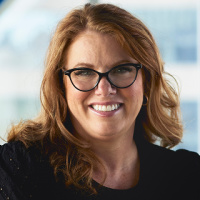
Christine Barnhart is the Chief Marketing and Industry Officer for Nulogy. In her role, Christine leverages her thought leadership and domain expertise to play a pivotal role in the way Nulogy speaks to the market and delivers customer value. Her extensive experience as a supply chain expert and seasoned software executive makes her uniquely positioned to incorporate sales, product, and customer success in the way marketing approaches its go-to-market, demand generation, and brand-building efforts. Under Christine’s guidance, Nulogy continues to shape and educate the market around the emerging space of Multi-Enterprise Collaboration. Christine’s previous roles include Vice President, Product Strategy and Go-To-Market at Verusen as well as Senior Director of Product and Industry Market Strategy for Infor. Christine holds a BSEE from the University of Evansville and an MBA from the University of Louisville. She is also an APICS-certified professional in Inventory and Production Management. Connect with Christine on LinkedIn.
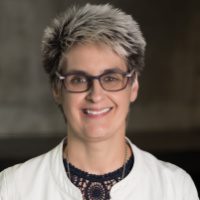
Melissa Dietz As Head of Customer Success for Verusen, an innovator in supply chain data, inventory and procurement technology, Melissa is responsible for building strategic relationships with customers and quarterbacking the customer onboarding process. Melissa has 15+ years of experience in innovation and account management across the supply chain industry. Her thought-leadership and creative problem-solving skills have helped her successfully build strong relationships with her teams and customers in each role she has held. Melissa graduated with Chemical Engineering from the University of Dayton and her MBA from Wharton Business School.Melissa serves as Treasurer of the Patron of the Arts Foundation at The Walker School and is a long-time volunteer at Good Mews cat shelter. She is extremely passionate about access to quality mental health resources for everyone. Connect with Melissa on LinkedIn.
